
CHICAGO’S FREE WEEKLY SINCE 1971 | FEBRUARY 6, 2020 How immigration policies and deportation fracture American families Clarissa Donnelly-DeRoven 12
FOOD & DRINK
04 Restaurant Review Julia Gham is the Powerhouse of West African cuisine.

NEWS & POLITICS
08 Joravsky | Politics Michael Bloomberg’s billions enabled him to buy his way into the Democratic presidential race.
ARTS & CULTURE
17 Lit Evanston native Elaine Kahn’s new book of poetry explores love, loss, and pain.
19 Visual Art An exhibit accompanying Theatre Y’s Juliet puts motherhood front and center.
20 Listings A celebration of polyamory, a photographic exploration of slashies, and more arts and culture happenings.
in the dark art of the deal in Labyrinth; and an “empathy coach” enters a workplace hornet’s nest in Do You Feel Anger?
CHICAGO READER | FEBRUARY 6, 2020 | VOLUME 49, NUMBER 18


TO CONTACT ANY READER EMPLOYEE, E-MAIL: (FIRST INITIAL)(LAST NAME) @CHICAGOREADER.COM
Chicago hip-hop series Blue Groove Lounge, in the words of the people who made it work.
Shows of note Kahil El’Zabar, Kembe X, Metronomy, and more
Early Warnings Bauhaus, Jumex, Midnight, and more justannounced concerts
Gossip Wolf Spektral Quartet bring a mind-expanding program (and Julia Holter) to the Music Box, the Synthesizer-Chili Cookoff signs off with its tenth installment, and
PUBLISHER TRACY BAIM
IN CHIEF SUJAY KUMAR, KAREN HAWKINS CREATIVE LEAD RACHEL HAWLEY
EDITOR PHILIP MONTORO THEATER AND DANCE EDITOR KERRY REID CULTURE EDITOR BRIANNA WELLEN ASSOCIATE EDITOR JAMIE LUDWIG
SENIOR WRITERS MAYA DUKMASOVA, LEOR GALIL, DEANNA ISAACS, BEN JORAVSKY, MIKE SULA EDITORIAL ASSOCIATE S. NICOLE LANE GRAPHIC DESIGNER AMBER HUFF
LISTINGS COORDINATOR SALEM COLLO-JULIN CONTRIBUTORS ED BLAIR, NOAH BERLATSKY, LUCA CIMARUSTI, MARISSA DE LA CERDA, MARI COHEN, JOSH FLANDERS, SHERI FLANDERS, JACK HELBIG, IRENE HSAIO, CATALINA MARIA JOHNSON, MONICA KENDRICK, STEVE KRAKOW, SUE KWONG, NOËLLE D. LILLEY, JAMIE LUDWIG, MAX MALLER, ADAM MULLINS-KHATIB, J.R. NELSON, JEFF NICHOLS, MARISSA OBERLANDER, MATTHEW SIGUR, CATEY SULLIVAN
FILM
28 Festival Reviewing while Black at Sundance
32 Small Screen BoJack Horseman’s penultimate episode secured its legacy.

THEATER

22 Preview Underscore’s sixth annual Chicago Musical Theatre Festival survives.
FEATURE
12 Separation This is how deportation fractures American families.

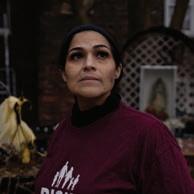
24 Review Tracy Letts’s Bug feels even more relevant nearly a quarter century later; Porchlight’s Sophisticated Ladies earns all the imperatives.

26 Plays of Note Desire and selfdefense clash in How to Defend Yourself; a banker gets trapped
33 Movies of note Honey Boy features a tour-de-force performance from Shia LaBeouf; 37 Seconds is a profoundly unique hidden gem from a Japanese filmmaker; and Dying to Survive is enjoyable, thought provoking, and hugely successful in China.
MUSIC & NIGHTLIFE
Galil | Feature The history of DJ Jesse de la Peña’s foundational
OPINION
Savage Love Dan Savage offers advice to a former sex worker whose 23-year-old daughter just came out as a cam girl.

CLASSIFIEDS
DIRECTOR OF DIGITAL JOHN DUNLEVY DIRECTOR OF PUBLIC ENGAGEMENT & PROGRAMS KRISTEN KAZA
SOCIAL MEDIA COORDINATOR JANAYA GREENE MEDIA PARTNERSHIPS COORDINATOR YAZMIN DOMINGUEZ
ADMINISTRATIVE ASSISTANT TARYN ALLEN
ADVERTISING 312-392-2970, DISPLAY-ADS@CHICAGOREADER.COM CLASSIFIEDS: TALLEN@CHICAGOREADER.COM
SALES DIRECTOR PATTI FLYNN
VICE PRESIDENT OF SALES AMY MATHENY CLIENT RELATIONSHIP MANAGER TED PIEKARZ SENIOR ACCOUNT REPRESENTATIVES LENI MANAA-HOPPENWORTH, LISA SOLOMON CLASSIFIED SALES MANAGER WILL ROGERS
NATIONAL ADVERTISING VOICE MEDIA GROUP 1-888-278-9866
VMGADVERTISING.COM
JOE LARKIN AND SUE BELAIR
DISTRIBUTION CONCERNS distributionissues@chicagoreader.com 312-392-2970

CHICAGO READER L3C BOARD PRESIDENT DOROTHY R. LEAVELL TREASURER EILEEN RHODES SECRETARY JESSICA STITES AT-LARGE SLADJANA VUCKOVIC
CONSULTANT CAROL E. BELL
READER
L3C 2930 S. MICHIGAN, SUITE
CHICAGO, IL 60616 312-392-2934, CHICAGOREADER.COM
COPYRIGHT


The fight to release Beto
A er ICE detained Beto on his drive home from camping, one family has banded together to challenge his detention and deportation.
Local
covering America
Coverage and awards send a disappointing— but not unexpected—message about whose stories really matter, writes Coya Paz Brownrigg.
Matches are back!
Let’s party like it’s 1999, back when the Reader was the place in Chicago to meet your match. Submit a free Matches ad by 11:59 PM CT on Friday, February 7, 2020 at chicagoreader.com/matches.

ALL
AT CHICAGO, IL
2 CHICAGO READER - FEBRUARY 6, 2020 ll
35
42
47
47
more.
48
50 Jobs 51 Marketplace 51 Real Estate
EDITORS
MUSIC
(ISSN 1096-6919) IS PUBLISHED WEEKLY BY CHICAGO READER
102
© 2020 CHICAGO READER PERIODICAL POSTAGE PAID
RIGHTS RESERVED. CHICAGO READER, READER, AND REVERSED R: REGISTERED TRADEMARKS ® THIS WEEK
IN THIS ISSUE
arts reviews, like Oscar nominations, aren’t
THIS WEEK ON CHICAGOREADER.COM

FEBRUARY 6, 2020 - CHICAGO READER 3
FOOD & DRINK
RESTAURANT REVIEW

Julia Gham is the Powerhouse of West African cuisine

Her spot near McCormick Place is the city’s only Cameroonian restaurant.
 By MIKE SULA
By MIKE SULA
Julia Gham was seven months pregnant, with a toddler and just $100 to her name in 2015 when the financing for her restaurant fell through. For ten years she’d had multiple jobs—slinging ice cream, working hotel gigs, driving a cab—preparing an ambitious business plan to open a spot specializing in the food of her native Cameroon. Just as she’d attracted enough backing to make it happen, an angry text from her jealous fiancé scared o her investors.
“Julia, you were so perfect,” her main backer told her. “We’d been looking for one thing that was going to take you down, and we just found it. How are you gonna pay all your investors back if you have an insecure man in your life that’s gonna send all your customers


out of your restaurant?”

Gham ditched the insecure man and sunk her savings into a West Rogers Park rental condo. “I had to start all over from the bottom up,” she says. When her daughter was born, she resorted to what she knew best. “I love cooking. If I’m not doing it, I’m not happy.”
Gham wasn’t always so desperate. She was born in the village of Jakiri and grew up in her mother’s restaurant in the northwestern city of Bamenda. The food of Cameroon, which is situated at the crossroads of west-central Africa, is among the continent’s most diverse, incorporating staples from various countries and influences from some 250 tribes, as well as colonizers from Portugal, Germany, Britain, and France.
4 CHICAGO READER - FEBRUARY 6, 2020 ll
Pounded yam fufu and egusi with goat and
fi
sh ANJALI PINTO FOR CHICAGO
READER Tied House 3157 N Southport Ave
At 19, Gham moved to Germany for five years and cooked in Turkish, Italian, and Chinese restaurants. “I learned a lot and I wanted to take that to my mom’s restaurant to make a few changes, and I thought it would be nice to have a Cameroonian restaurant out in the west.” She settled on Chicago for its diversity, and in 2005 got her first job stateside at Ghiradelli on the Mag Mile. She also started hosting house parties at her condo and cooking for homesick African friends—jollof rice, egusi soup, ndole.

Fast forward to 2015, which found her with two kids to feed and vanished investors. She

threw a few parties and saved enough for a $150 insulated food carrier and a Chevy Malibu she rented from a friend. Strapping the kids into car seats, she made the rounds of downtown cab stands selling prepackaged containers of rice, beans, plantains, and beef and fish stew. She knew operating outside the law was a precarious business model, and while she’d already applied for her food service manager’s certification, she was the beneficiary of both goodwill and hostility from her competitors. One of them o ered her a good deal on an idle food truck, but once she got that rolling, another called the cops on her.

FEBRUARY 6, 2020 - CHICAGO READER 5 FOOD & DRINK
Plantain and bobolo (on the plate) and crevette (in the bowl)
ANJALI PINTO FOR CHICAGO READER
“A police o cer did show up,” she says. “It was illegal for me to have my baby up front, and he was going to write me a citation. I said, ‘O cer, I am here trying to feed my family to make sure I secure a roof over my kid’s head and also try to build something good. I have registered to have a food truck license. I am in the process. I am raising money. I am putting it back to make sure I get this right. I am not robbing a bank. I am not shooting anybody.’ He looked at me and smiled and said, ‘You know what? I am so proud of you. Make sure you get the license real quick.’”
Julia’s Afri-Cuisine food truck was licensed, branded, and rolling between O’Hare and downtown cab stands in short order, and Gham began working toward a brick and mortar location. Last winter she got a lead on a restaurant near McCormick Place in a neighborhood she’d been scouting since the beginning. In April 2019 she opened the Powerhouse Restaurant, a bright storefront on State
Street she’d outfitted with plush lemon-lime high back chairs, and a broad menu encompassing western breakfast plates, fresh juices, burgers and sandwiches, grilled “aphrodisiac” proteins, and a deep selection of West African dishes prepared the Cameroonian way.
Gham’s mom joined her in the U.S. in 2017 after violent unrest made things unsafe back home, and they cook everything to-order, from scratch, including khati khati, a grilled and baked chicken dish seasoned with sharp pebbe , aka African nutmeg, and finished in a bit of palm oil, a specialty of her own Nso tribe. This is served with a spicy side of njama njama, typically the sautéed leaves of the garden huckleberry. Sometimes that’s di cult to get when sources from Atlanta or Minnesota are depleted, so she subs a combination of spinach and bitterleaf, another foundational green that finds its way into the common West African egusi soup, thickened with ground melon seeds, and its Cameroonian cousin
ndole, based on ground peanut, and served with a choice of protein (particularly good with shrimp, aka ndole crevette).
Many of these stewy dishes are served with some form of fufu, which in Cameroon doesn’t just mean doughy orbs of elastic pummeled yam, but any kind of pounded starch—corn, cassava, cocoyam, even oatmeal. Gham knows precisely which variety goes with which dish (corn with ndole, yam with egusi), and every month or so she hosts pounding parties where folks gather to thrash these starches into their simultaneously hearty but buoyant textures.

She’ll usually serve a variety of saucy offmenu things with these, such as achu, a vivid yellow soup made with a mysterious spice blend that includes dried plantain peels and ground limestone (served with taro fufu), or mbongo tchobi , a dark tomato-based stew, blackened with the bark of the mbongo tree, and seasoned with pebbe, alligator pepper, a nutty spice known as njangsa , and grains of
paradise.
If you’re new to Cameroonian food, there’s a lot to discover on Gham’s menu. She named her restaurant Powerhouse because she has a lot going on. She’s a presenter on a weekend talk show on the pan-African station WGHC (98.3 FM), she runs a multimedia company based in Ghana, and has worked as a talent scout and party promoter for Cameroonian artists. A movie she produced, Saving Mbango, just premiered in Cameroon, and it’ll get its turn in D.C. in March and at the restaurant in April.
She also just founded the nonprofit Powerhouse Educate Orphans, with the aim of taking in at-risk kids and offering them job training. “I’ve had a judge ask me why I wasn’t a lawyer,” she says. “I’ve had a doctor ask me why I wasn’t in the medical field. I’m very versatile. I’m a solutionist.” v
@MikeSula
6 CHICAGO READER - FEBRUARY 6, 2020 ll
FOOD & DRINK
Pounded yam fufu and egusi (center) with goat and fi sh; around the center clockwise: corn fufu , plantain and bobolo, jollof rice, crevette, and khati khati ANJALI PINTO FOR CHICAGO READER
R THE POWERHOUSE RESTAURANT | $$ 2113 S. State 312 285 2890 thepowerhouseil.com
The Chicago Reader is community-centered and community-supported.






CHICAGO FOR CHICAGOANS
You are at the heart of this newspaper. Founded in 1971, we have always been free, and have always centered Chicago. Help us to continue to curate coverage of the diverse and creative communities of this fabulous city.




Your donation keeps the presses rolling.
IN HERE: www.chicagoreader.com/members
FEBRUARY 6, 2020 - CHICAGO READER 21
CHIP
WANT TO DONATE VIA CHECK? Make checks payable to “Chicago Reader” and mail to Chicago Reader, Suite 102, 2930 S. Michigan Avenue, Chicago, IL 60616. Include your mailing address, phone, and email—and please indicate if you are okay with us thanking you by name in the paper.
NEWS & POLITICS


 By BEN JORAVSKY
By BEN JORAVSKY


Ican think of at least 60 billion reasons why the Democrats changed the rules to allow Michael Bloomberg a spot at future presidential debates.

Those reasons would be, of course, the $60 billion Bloomberg is worth—a nice chunk of which he’s pledged to spend on commercials promoting himself and, if all else fails, ripping Donald Trump.
Bloomberg’s voluminous pocketbook was on display during the Super Bowl, when the former New York City mayor was the only Democrat with the cash to run a spot against the one Trump aired in which the president promoted himself as, of all things, a friend to Black people. I guess truth really is the first casualty in war and politics.
Back to the rules change. Democratic candidates will be allowed on the debate stage if they reach a threshold in national polls—but there will be no threshold requirement for the number of contributors to a campaign.

Previously, a Democratic candidate needed to have drawn contributions from hundreds of thousands of donors.
But Bloomberg has only one donor: himself.
It sort of reminds me of that old Joey Bishop joke about the tire salesman. You can either make a million dollars selling 100,000 tires for $10 apiece. Or you can sell one tire for a million. Ah, it was funnier when Joey told it.

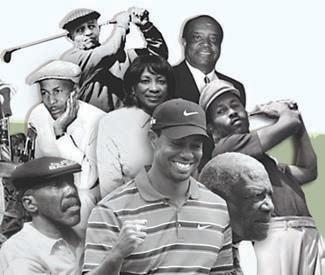
You’re going to hear a lot about the debate rules change in the coming weeks from all sorts of politicians—including Trump.
Donny and the MAGA hat crew will be crying their crocodile tears about the process being rigged against Bernie and Bernie bros getting screwed—when, in fact, they care about Bernie bros almost as little as they care about Black people.
Actually, Trump probably cares a teensy bit more about Bernie bros cause there’s a longshot chance that a few Bernie bros might be dumb enough to actually vote for Trump.
8 CHICAGO READER - FEBRUARY 6, 2020 ll
POLITICS 60 billion reasons Michael Bloomberg’s billions have enabled him to buy his way onto the Democratic debate stage.
FEBRUARY 19,2020 Malcolm X College | 1900 W. Jackson Blvd. | 10 am - 2 pm CITY OF CHICAGO CONSTRUCTION SUMMIT 2020 Come out and receive details about upcoming construction contracting opportunities and employment resources! City of Chicago Cook County State of Illinois City Sister Agencies SPEAK TO KEY STAFF FROM: REGISTER NOW AT WWW.CHICAGO.GOV/CONSTRUCTION ChicagoDPS DE PAR TMENT O F PROCUREMENT SERVICES CITY OF CH CAG O Assist Agencies Support Organizations Employment & Labor DuSable Museum of African American History Illinois Black Legislator’s Auditorium | 740 E. 56th Place, Chicago, IL 60637 Wednesday, February 12, 2020 | 6:00 PM to 8:30 PM For Additional Information: 773-358-1315 or info@jpgachicago.com or jpgachicago.com The Jackson Park Golf Association is a 501(c)3 organization which serves Chicagoland area leagues and clubs to bring the community together through golf. The JPGA and its membership are dedicated to strengthening the community by committing ourselves to the life lessons, opportunities, and excellence provided by the game. Lite refreshments catered by Bon Manger Catering. Panelists for the event are relatives, historians, and strong advocates for minority inclusion in golf: Peggy Rhodes-White Tiffany White Andre Stephens, Sr. Dr. Michael Cooper Ron Skubisz On display will be golf artifacts shared by individuals and members of Chicago’s golf leagues and clubs! Plus a screening of Uneven Fairways: The Story of the Negro Leagues of Golf by Pete McDaniel and Dr. Calvin Sinnette. Directed by Dan Levinson. The Jackson Park Golf Association presents a celebration of African American golf history and future goals to ensure inclusion of underrepresented individuals in the multi-billion dollar golf industry From Exclusion to Inclusion: Celebrating African American Golf Pioneers and Charting a More Diverse Future
Other than money, Michael Bloomberg has one major asset: he’s
Prove me wrong, Bernie bros!
As much as I dislike it when the powers that be change the rules to help other powers that be, I actually welcome Bloomberg to the race—if for no other reason than his presence is driving Trump bonkers. Always an entertaining diversion.
Still, I understand why some Democrats may be irritated. Bloomberg is essentially buying his way into the election as a way of avoiding all the hard work being done by party activists like Maggie Wunderly, a Sanders supporter from Aurora.
For the last few years, Wunderly has been actively engaged in the rulemaking proceedings, attending many meetings in windowless rooms filled with partisans from rival campaigns, endlessly reviewing the minutiae of rules and regulations governing the presidential nominating process.
The purpose of these meetings is to settle on a relatively painless process that will enable the Democrats to show up for their convention this summer in Milwaukee more or less united behind one candidate who cleanly and fairly won the nomination.
Thus, the Democrats can spare the toothand-claw spectacle of 2016, in which many Sanders supporters—unknowingly egged on by Russian operatives who hacked into Democratic computers—heckled Clinton operatives for stealing the nomination.
If only my Democrats fought Republicans as hard as they fight themselves.
Wunderly probably knows as much about the delegation selection process as anyone in the state. As such, she can tell you there are 18 congressional districts in Illinois. Each district is apportioned a number of delegates according to the turnout in the last Democratic primary— the more Democratic voters in the last primary, the more delegates it gets.
For instance, the First congressional district on the south side has eight Democratic delegates. The 15th district, in Trump country in southern Illinois, has three.
To assemble their delegates, the Sanders campaign made sure each slate was ethnically and generationally balanced. “We have a full slate in every district,” says Wunderly.
Aside from Sanders, only Elizabeth Warren can make that claim (Joe Biden comes very
NEWS & POLITICS
close). Pete Buttigieg, for instance, has five delegates running on his behalf in the upscale Ninth district that runs on the north shore. But he has no delegate candidates running in the First—which sort of says it all about Mayor Pete’s feeble outreach to Black voters.
Still, Mayor Pete has more delegate candidates on the ballot throughout the state than Bloomberg—who has none.
That’s right, I have as many delegates as Mayor Mike. And I’m not even running.
In defense of Bloomberg—who needs delegates when you’ve got 60 billion bucks?



In all seriousness, the best argument for putting together delegate slates is that the delegates will campaign door-to-door on your behalf—as Wunderly says she’ll do for Sanders with her neighbors in Aurora.
But even if Bloomberg has no delegates running under his name, he can still have delegates from Illinois representing him at the convention. They would be awarded to him according to how many votes he wins in each congressional district.
So, if Bloomberg wins 50 percent of the votes in the First district—as hard as that is to imagine—he’d get four delegates. And so on.
I figure Bloomberg will win some votes in Illinois if for no other reason than by the March 17 primary he’ll have spent untold millions on commercials. So even if he won’t have activists like Wunderly reaching out to their neighbors, he’ll have commercials running around the clock.
In some ways, Bloomberg’s strategy is similar to the one employed by Governor Pritzker in 2018, when he outspent all of his Democratic rivals put together.
True, Pritzker also built a base of support throughout the state. But Bloomberg’s got even more money. Apparently base-building is overrated.
Most Bernie backers I know don’t seem too upset about having Bloomberg on the ballot— or on the debate stage. After all, Bloomberg takes votes from centrists like Biden.
In fact, my hunch is Democratic chieftains made the debate change because they worried that Biden wasn’t strong enough to beat Bernie.
As I said—if the Democrats fought Republicans as hard as they fight themselves, they never would have lost to Trump in the first place. v
FEBRUARY 6, 2020 - CHICAGO READER 9
@joravben
driving Trump bonkers. BLOOMBERG PHILANTHROPIES 100+ VENDORS 75+ SPEAKERS THE LARGEST CANNABIS CONVENTION FOCUSED ON ILLINOIS! necann.com/2020-illinois Contact ads@chicagoreader.com or call 312-392-2934 APRIL 3-4, 2020 THE CHICAGO HILTON, IL I C C LLINOIS ANNABIS ONVENTION THE
Important Facts About DOVATO
This is only a brief summary of important information about DOVATO and does not replace talking to your healthcare provider about your condition and treatment.
What is the Most Important Information I Should Know about DOVATO?
If you have both human immunodeficiency virus-1 (HIV-1) and hepatitis B virus (HBV) infection, DOVATO can cause serious side effects, including:
• Resistant HBV infection. Your healthcare provider will test you for HBV infection before you start treatment with DOVATO. If you have HIV-1 and hepatitis B, the hepatitis B virus can change (mutate) during your treatment with DOVATO and become harder to treat (resistant). It is not known if DOVATO is safe and effective in people who have HIV-1 and HBV infection.
• Worsening of HBV infection. If you have HIV-1 and HBV infection, your HBV may get worse (flare-up) if you stop taking DOVATO. A “flare-up” is when your HBV infection suddenly returns in a worse way than before. Worsening liver disease can be serious and may lead to death.
° Do not run out of DOVATO. Refill your prescription or talk to your healthcare provider before your DOVATO is all gone.
° Do not stop DOVATO without first talking to your healthcare provider. If you stop taking DOVATO, your healthcare provider will need to check your health often and do blood tests regularly for several months to check your liver.
What is DOVATO?
DOVATO is a prescription medicine that is used without other antiretroviral medicines to treat HIV-1 infection in adults who have not received antiretroviral medicines in the past, and without known resistance to the medicines dolutegravir or lamivudine. HIV-1 is the virus that causes Acquired Immune Deficiency Syndrome (AIDS). It is not known if DOVATO is safe and effective in children.
Who should not take DOVATO?
Do Not Take DOVATO if You:
• have ever had an allergic reaction to a medicine that contains dolutegravir or lamivudine.
• take dofetilide.
What should I tell my healthcare provider before using DOVATO?
Tell your healthcare provider about all of your medical conditions, including if you:
• have or have had liver problems, including hepatitis B or C infection.
• have kidney problems.
• are pregnant or plan to become pregnant. One of the medicines in DOVATO (dolutegravir) may harm your unborn baby.
° Your healthcare provider may prescribe a different medicine than DOVATO if you are planning to become pregnant or if pregnancy is confirmed in the first 12 weeks of pregnancy.
° If you can become pregnant, your healthcare provider will perform a pregnancy test before you start treatment with DOVATO.
° If you can become pregnant, you should consistently use effective birth control (contraception) during treatment with DOVATO.
° Tell your healthcare provider right away if you are planning to become pregnant, you become pregnant, or think you may be pregnant during treatment with DOVATO.
• are breastfeeding or plan to breastfeed. Do not breastfeed if you take DOVATO.
° You should not breastfeed if you have HIV-1 because of the risk of passing HIV-1 to your baby.
° One of the medicines in DOVATO (lamivudine) passes into your breastmilk.

° Talk with your healthcare provider about the best way to feed your baby.
Tell your healthcare provider about all the medicines you take, including prescription and over-the-counter medicines, vitamins, and herbal supplements. Some medicines interact with DOVATO. Keep a list of your medicines and show it to your healthcare provider and pharmacist when you get a new medicine.
• You can ask your healthcare provider or pharmacist for a list of medicines that interact with DOVATO.
• Do not start taking a new medicine without telling your healthcare provider. Your healthcare provider can tell you if it is safe to take DOVATO with other medicines.
What are Possible Side Effects of DOVATO?
DOVATO can cause serious side effects, including:
• Those in the “What is the Most Important Information I Should Know about DOVATO?” section.

• Allergic reactions. Call your healthcare provider right away if you develop a rash with DOVATO. Stop taking DOVATO and get medical help right away if you develop a rash with any of the following signs or symptoms: fever; generally ill feeling; tiredness; muscle or joint aches; blisters or sores in mouth; blisters or peeling of the skin; redness or swelling of the eyes; swelling of the mouth, face, lips, or tongue; problems breathing.
• Liver problems. People with a history of hepatitis B or C virus may have an increased risk of developing new or worsening changes in certain liver tests during treatment with DOVATO. Liver problems, including liver failure, have also happened in people without a history of liver disease or other risk factors. Your healthcare provider may do blood tests to check your liver.
Tell your healthcare provider right away if you get any of the following signs or symptoms of liver problems: your skin or the white part of your eyes turns yellow (jaundice); dark or “tea-colored” urine; light-colored stools (bowel movements); nausea or vomiting; loss of appetite; and/or pain, aching, or tenderness on the right side of your stomach area.
• Too much lactic acid in your blood (lactic acidosis). Lactic acidosis is a serious medical emergency that can lead to death. Tell your healthcare provider right away if you get any of the following symptoms that could be signs of lactic acidosis: feel very weak or tired; unusual (not normal) muscle pain; trouble breathing; stomach pain with nausea and vomiting; feel cold, especially in your arms and legs; feel dizzy or lightheaded; and/or a fast or irregular heartbeat.
• Lactic acidosis can also lead to severe liver problems, which can lead to death. Your liver may become large (hepatomegaly) and you may develop fat in your liver (steatosis).
Tell your healthcare provider right away if you get any of the signs or symptoms of liver problems which are listed above under “Liver problems.” You may be more likely to get lactic acidosis or severe liver problems if you are female or very overweight (obese).
10 CHICAGO READER - FEBRUARY 6, 2020 ll
©2020 ViiV Healthcare or licensor. DLLADVT190033 January 2020 Produced in USA. Learn more about Alphonso and DOVATO at DOVATO.com
MUCH GOES INTO WHO
Reasons to ask your doctor about DOVATO:
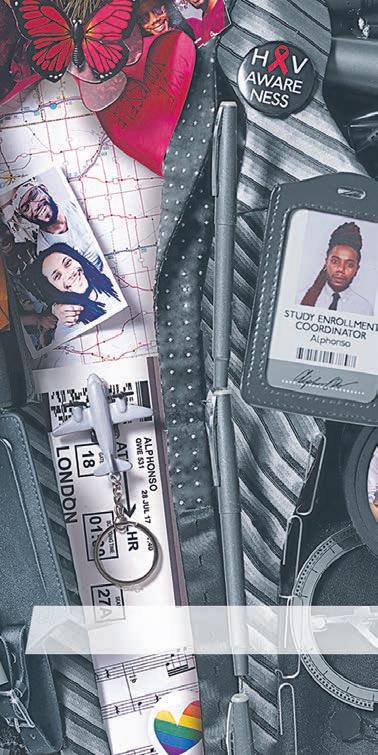
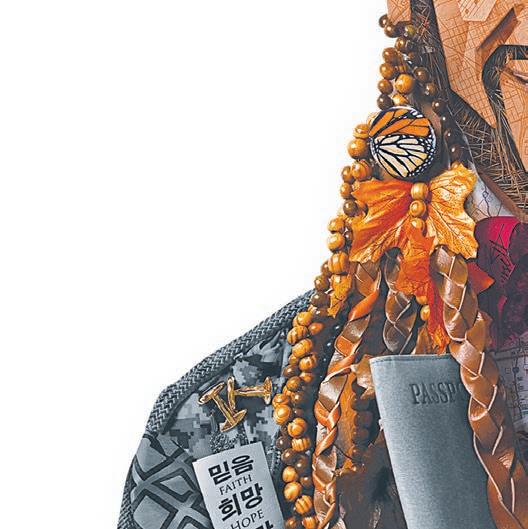
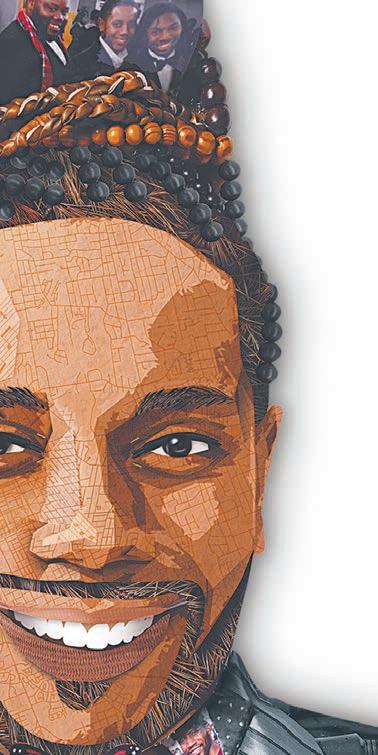

DOVATO can help you reach and then stay undetectable* with just 2 medicines in 1 pill. That means fewer medicines† in your body while taking DOVATO
You can take it any time of day with or without food (around the same time each day)—giving you flexibility
DOVATO is a once-a-day complete treatment for adults who are new to HIV-1 medicine.
Results may vary.
*Undetectable means reducing the HIV in your blood to very low levels (less than 50 copies per mL).
† As compared with 3-drug regimens.
What are Possible Side Effects of DOVATO (cont’d)?




• Changes in your immune system (Immune Reconstitution Syndrome) can happen when you start taking HIV-1 medicines. Your immune system may get stronger and begin to fight infections that have been hidden in your body for a long time. Tell your healthcare provider right away if you start having new symptoms after you start taking DOVATO.
• The most common side effects of DOVATO include: headache; diarrhea; nausea; trouble sleeping; and tiredness.
These are not all the possible side effects of DOVATO. Call your doctor for medical advice about side effects. You are encouraged to report negative side effects of prescription drugs to the FDA. Visit www.fda.gov/medwatch, or call 1-800-FDA-1088.
Where Can I Find More Information?

• Talk to your healthcare provider or pharmacist.
• Go to DOVATO.com or call 1-877-844-8872, where you can also get FDA-approved labeling.
October 2019 DVT:2PI-2PIL

Trademark is owned by or licensed to the ViiV Healthcare group of companies.

FEBRUARY 6, 2020 - CHICAGO READER 11ll
‡Compensated by ViiV Healthcare Could DOVATO be right for you? Ask your doctor today.
SO
I AM HIV MEDICINE IS ONE PART OF IT.
This is how
fractures American families deportation
By CLARISSA DONNELLY-DEROVEN
On November 15 Dariana Ruiz woke before dawn to find an Immigration and Customs Enforcement agent standing over her bed and shining a flashlight in her face. The ICE officer guided the 18-year-old into the kitchen of the suburban Elmhurst home where she lived with her mom, Carla, her dad, Kikin, and her eight-year-old sister, Viviana. Her dad sat at the table across from a cup of hot coffee and a slice of bread, his hands cu ed behind his back and another ICE agent by his side. Her mother, she was told, had been arrested during a traffic stop and was in a van outside.
Just hours earlier Ruiz’s family had been sitting there, eating a special home-cooked
2018fried chicken dinner. Nights like that were increasingly rare: Ruiz was in her first semester at the College of DuPage and picked up shifts at Taco Bell; Kikin worked at a factory that coated metals with zinc, Carla at a factory that manufactured envelopes. Ruiz liked to think she would’ve remembered this night, even if it hadn’t been their last meal together in America.
She looked toward the rooms where her family had once gathered, where they’d made enchiladas and spaghetti, danced to salsa music, and watched movies. As hulking ICE o cers milled around the dark living room, Ruiz withered. What was once her home now felt like an abandoned house, still full of furniture and the ghostly energy of those who had lived there. It felt like a bad dream.
An ICE o cer told Ruiz what she already knew: her parents were in the United States without proper documentation and so they
were being put into deportation proceedings. Carla and Kikin had both crossed from Mexico without inspection; Carla 22 years ago, when she was 15. Kikin came 25 years ago, when he was 17.
When agents escorted her dad out of the house, Ruiz stopped them. She still had questions. Ruiz has pretty, plump features— cherubic cheeks and lips and big brown eyes. Though she’s short and often soft-spoken, that night she demanded answers. She translated the quick English conversation for her father in snippets.
Where are you taking them? They’ll be transferred between immigration detention centers, then deported to Mexico. Will they have a lawyer? Your parents will be allowed to fi ght their case, but they will not be provided with a public defender. Your parents will be given a list of low-cost attorneys but must contact them on their own. Can I visit
them? Yes, during visiting hours.
Ruiz said the agents asked her if she was a U.S. citizen. (In what are known as “collateral arrests,” the agency often takes undocumented people into custody during raids even if they aren’t the intended target.)
She said she was born here. When they asked her to prove it, she went to her bedroom for her driver’s license and grabbed a sweater for her dad. The officers looked at her ID approvingly.
ICE’s Detained Parents Directive, which details what agents should do when they fi nd young citizen children during immigration arrests, says agents “should accommodate .
. . [a parent’s] efforts to make alternative care arrangements for his or her minor child(ren),” and that ICE should record the transfer of the child’s custody. In a statement, an ICE spokesperson wrote that Carla “gave verbal permission” for agents to leave
12 CHICAGO READER - FEBRUARY 6, 2020 ll
A story of what happens when the undocumented parents and spouses of U.S. citizens are “kidnapped by ICE”
Viviana in her older sister’s care.
Ruiz went to her father and slipped the sweater over his head. No te preocupes. Don’t worry. Voy a tratar de ser todo lo posible para ayudarlos. I’m going to try my best to help you both. Te quiero mucho a ti y a mamá. I love you and mom so much. Then he was taken away.
In October 2017, border agents began separating children from their parents.
The Trump Administration denied the existence of this practice until April 2018 when Je Sessions, the attorney general at the time, announced the “zero tolerance” policy: every adult crossing the border illegally would be criminally prosecuted. Family separation was inevitable because children couldn’t be detained with their parents as their cases were processed. Sessions justified the policy using the Bible and claimed that noncitizen parents at the border “are the ones who broke the law.” Quinnipiac and CNN polls found that nearly 70 percent of voters opposed the policy. In June, one Texas Republican lawmaker said matter-of-factly, “Nobody understands why you would take children out of their parents’ hands.” The international human rights organization Genocide Watch issued a scathing statement, writing that “family separation is one of the most common genocidal patterns, occurring in almost all historical cases of genocide.”
After receiving strong criticism across the political spectrum, Trump signed an executive order to end the policy less than three months after its official launch. A federal judge later ordered the government to reunite separated children with their parents. Nearly a year later, though, the administration admitted in court filings that border agents had continued to separate children from their parents. An investigation by NBC and a report from the O ce of Inspector General found that the Department of Homeland Security failed to implement any tracking mechanisms that could have streamlined the reunification of separated children with their parents. While it’s unclear if the government continues to separate families at the border, what’s certain is that a quieter form of family separation has persisted across the country for years.
The idea that parents have children in the U.S.—whom Donald Trump and others have pejoratively called “anchor babies”—to secure their own status has no basis in
immigration law. Still, the administration recently announced it would block visas for pregnant women traveling to the U.S. if State Department officials believed the woman was coming to the country to give birth. Merely having a citizen child does not make a parent a citizen, nor does it put a parent on a pathway towards citizenship. An American citizen over the age of 21 can sponsor their parents for a green card by fi ling an I-130 petition. Right now, the government estimates that the wait is between 12 and 16 months for this application to be processed.
From 2013 to 2017 the United States deported more than 150,000 parents of children who are U.S. citizens. ICE only started collecting and releasing this data after a 2009 congressional order. ICE hasn’t yet responded to FOIA requests for its 2018 and 2019 data. The publicly available numbers show that during Obama’s last year in o ce his administration deported almost 2,000 more parents than the Trump administration did during its fi rst year.
The parents I spoke to for this story feared that contact with any government agency could lead to contact with ICE. One family said they kept the undocumented father’s name off their children’s birth certificates and refused to list him as an emergency contact at school. Ramped-up immigration enforcement under Obama and now under Trump has demonstrated that even the most cautious can still be swept up.
After a deportation, parents must decide if their children will stay in the United States, or join them in their native country. For many, the circumstances that led them to leave their homes—violence, political corruption, lack of jobs—haven’t changed, and raising a child in such a place feels untenable. So they arrange for their children to stay in the United States with other caregivers and try to keep their relationships alive through regular Skype calls and the occasional, often expensive, visit. Many of the people I encountered while reporting this story said they hope that maybe one day the U.S.’s immigration laws will change and they’ll be able to reunite with their families. But the indefi nite timeline, the distance, and loneliness can be crippling. They bring their children to the country they once called home and hope to shield them from the things they fled. Ruiz’s family chose both paths.
After the agents left, Ruiz had a to-do list that felt strangely mundane: call tías and tell them that parents are being deported, e-mail professors and say parents were arrested by ICE so I won’t be in today, call Viviana’s school and explain our immigration situation, find free lawyer.
Ruiz scooped Viviana out of bed, put her in the back seat of the car, and drove 15 minutes to her Aunt Veronica’s grey-blue home in Addison. Veronica had been woken up by a phone call that morning from her sister Carla, Ruiz’s mother. “It’s me,” Carla had said in Spanish. “The police have me, or immigration, I don’t know. They detained me and I don’t know what’s going to happen. Please take care of my daughters.” (Ruiz would soon break her family’s lease, throw away most of their possessions, and move into a cramped room with her young sister in the house.)
For Ruiz, deciding what to tell Viviana was a reminder of her own experience. Ten years earlier, when she herself was eight years old, her father was deported for the first time. She remembers her mom was deeply depressed, so much so that Ruiz was sent to stay with her aunt for a few weeks. “I was very innocent,” she said. “I did not know what was going on. I just knew that my dad wasn’t around.”
Soon after, Ruiz and her mother drove more than 2,300 miles south to Acapulco, to live with Kikin. But violence from Mexico’s drug war had begun to spill over into the city. “Not to be, like, too graphic or anything but there were times we would be driving around or something and you would just see bodies on the side of the road,” Ruiz remembered. “I would see drive-by [shootings] in our little town.” After two years, the family returned to the Chicago suburbs.
Because Ruiz wanted to protect Viviana from the same trauma she’d experienced as a child, she lied to her about the disappearance of their parents. She told her that they were working long hours and that she wouldn’t see them for a while. After a few weeks, Ruiz updated the story: their parents had moved to Mexico to go to school and make more money. Viviana was told that she and her sister would soon visit.
2018Ruiz and her aunt searched for a lawyer, but were told by attorney after attorney that Carla and Kikin didn’t have a case. Guiding their fate, in large part, was the 1996 Illegal Immigration Reform and Immigrant Responsibility Act, signed into law by President Bill Clinton, which experts say criminalized undocumented immigration. The law stipulates that when someone enters the country without proper inspection or documentation and then stays unlawfully for longer than a year, they will be subject to deportation and barred from reentering the U.S. for a period between three years and the rest of their life if they are caught.
The only way Carla and Kikin could avoid deportation and the ban on reentry would be by demonstrating that deportation would cause “extreme hardship” to a “qualifying relative” who is a citizen or green card holder. However, unlike spouses and parents, citizen children do not count. Even if citizen children were considered qualifying relatives, in most cases separating a parent from a child does not meet the standard of an extreme hardship. Caveats do exist: in situations where a child of any age su ers from health issues or has a disability, the separation of a parent from that child would likely qualify. But the immigration legal system sees family separation as a “common result” of deportation. It’s considered the same as the separation a child might experience in divorce, or if one parent moves to a di erent state. Sad, sure, but ordinary.
2012 On an October night Cecilia Garcia expected her husband Hugo Velasco to return to their home on the southwest side at 6 PM. When he still hadn’t arrived four hours later, she told herself he must be drinking with friends. The phone rang at midnight. She felt relieved that the caller ID read “Evergreen Police.” She thought she could pick him up, pay a fine for what he was arrested for, and then he’d be free.
“I’m going to get deported,” her husband said on the phone.
Velasco had been driving home from work in a 14-year-old red Chevrolet with expired plates. He was pulled over in Evergreen Park, a suburb south of Chicago, without a driver’s license or insurance. When the o cer ran his
FEBRUARY 6, 2020 - CHICAGO READER 13
name through the National Crime Information Center database, he found that ICE had issued a deportation order for Velasco.
Velasco had left Mexico for the U.S. with his brother in 1986, when he was 14 years old. His dad had died and the brothers wanted to make money to send back to their mother. Ten years later, Velasco met Garcia, who has chiseled cheekbones and long black hair that falls down her back in tendrils. Garcia, who was on her way to becoming a nun, told Velasco he should take Catholicism more seriously (he only went to church on Christmas and Easter). One day she got him to come to church and as they sat through the service, she realized she’d rather marry him than God. “I was like, oh, he’s the one, you know? He’s actually following and he’s listening,” Garcia said. “And then I thought maybe that’s something. Maybe God sent him to me.”
In 1998, Velasco was deported after he was found with drugs during a tra c stop. The couple had a one-year-old son and Garcia was eight months pregnant with their second child. She went into labor three weeks early.
“I really remember giving birth and I cried because I’m thinking he’s dead,” she said.
Garcia blamed the stress caused by the deportation for the early birth of her daughter, Zilagi. A few days later, she heard a knock at the door. On the other side was her husband. He’d found his way back into the country. (“It was easier back then,” Garcia said.) Velasco was in a long-term relationship with Garcia, who is a U.S. citizen, and he had two citizen children. But immigration attorneys said that with a deportation and now an unauthorized reentry on Velasco’s record, little could be done. His deportation had come with a ten-year ban on reentry. Without a clear legal path forward, the family decided to avoid contact with immigration and to limit any documentation of Velasco’s presence in the country.
On that October 2012 night, Garcia arrived at the Evergreen police station close to 1 AM. She told officers that she and her husband had been together for 16 years and they had five children. She was asked if they were married. Legally, they were not because getting
married meant leaving a paper trail. And even if they were married, it wouldn’t have guaranteed Velasco any relief. When a couple gets married and petitions to change one partner’s immigration status, that partner usually needs to return to their home country to interview at the consulate and receive a medical exam. But, if the partner has been living in the U.S. undocumented for longer than one year, an exit triggers a ban on reentry. Velasco was transferred to ICE custody 16 hours after his arrest. He thought his only option was to sign a voluntary departure. He was deported. As Garcia went through the trauma of deportation for a second time, she wondered if God was punishing her and Velasco for living together and having children without being married.
Garcia worked as a medical assistant and wanted to get her nursing degree. But after the deportation, going to school was out of the question. She took shifts to make up for Velasco’s lost wages, but it left her less time to parent her five children. One son already struggled with bipolar disorder,
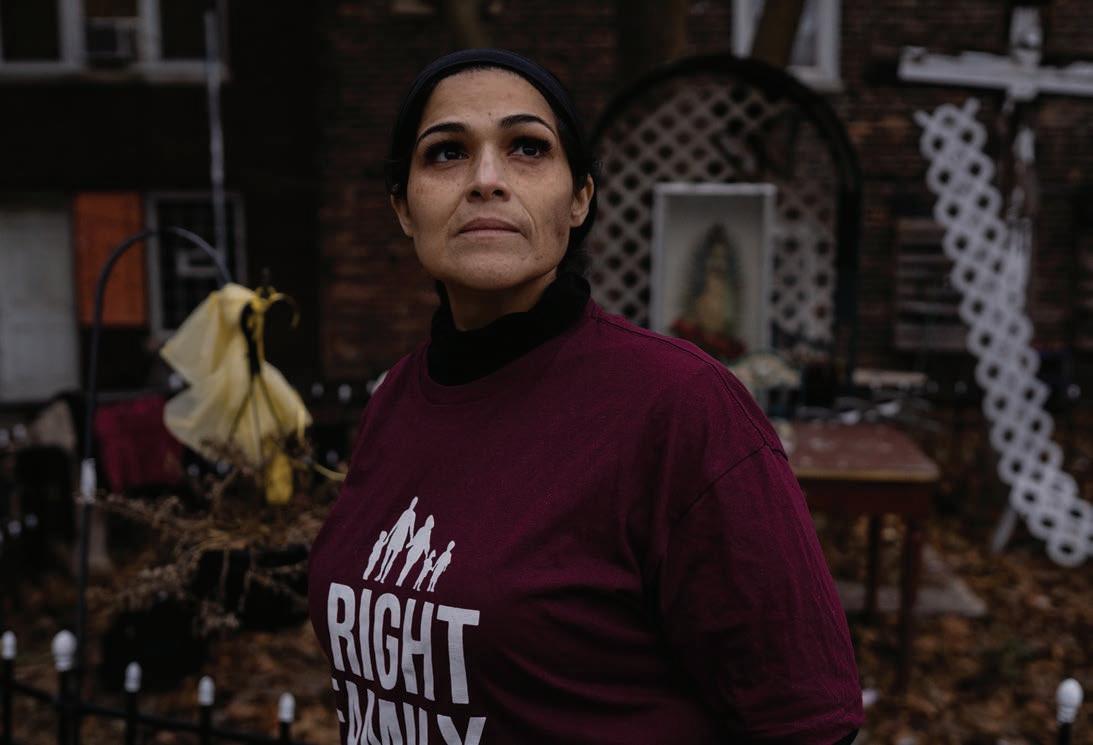
and a daughter battled depression. Velasco’s deportation exacerbated these existing problems; Garcia said another daughter felt suicidal, and another started cutting herself.
A fi ght between two of the children left one with a black eye. The school alerted DCFS, and when a social worker visited the family to investigate, Garcia lost her temper. DCFS took her children away temporarily. “I had everything bottled up,” Garcia said. “I was obviously mad, and I was always on the o ensive, not realizing it. So, yeah. I would snap.”
Since his deportation, Velasco has tried to cross the border several times. For each failed attempt, Garcia imagines how it might’ve gone di erently. The fi rst time, he crossed with a group that was abandoned by a coyote in the desert and was arrested by Border Patrol. “You guys should’ve said you were camping and you got lost!” The second time his group went to eat at a restaurant in San Diego, where they spoke Spanish and were covered in mud. Someone called immigration. “Why didn’t you guys go through the drive-thru?” The last time, he hid in the trunk of a car, but was found when agents searched the vehicle. “What did you say? Boo?”
Over the years Garcia and Velasco have wrestled with whether the family should move to Mexico or wait until 2022 when Velasco’s ban on reentering will expire. They’ve lived apart for seven years, and their relationship subsists on dinner dates over Skype, phone calls, and sporadic visits. Garcia said trips to Mexico are like mini vacations, or honeymoons. “And then I think [on] the third [or] fourth day [he] starts raising questions, When are you coming over here to live? ”
She continued. “I’m one person who’s very stubborn, very relentless. And I could conform and be like, You know what? Okay, I’ll go over there. Wait for the ten years. But why should I have to do that? I have every right to be with the person I love, and that person whom I love has every right to stay here with his family, his children.”
14 CHICAGO READER - FEBRUARY 6, 2020 ll
“I have every right to be with the person I love, and that person whom I love has every right to stay here with his family, his children,” says Garcia. PAT NABONG FOR CHICAGO READER
ICE held Ruiz’s parents for three weeks. They spent most of their time at the Pulaski County Detention Center in Ullin, Illinois. Pulaski is both a county jail and immigrant detention facility. It sits five hours southwest of Elmhurst, just east of the Missouri state line, in a town of 779 people. Ruiz video chatted with her mom 15 times in 16 days (it cost 25 cents a minute) and they spoke more on the phone. She loaded $55 into each commissary account. Her parents sent letters too. One week after he was detained, Kikin wrote a letter addressed to “ Viviana la mas bonita,” Viviana the most beautiful. “Pase lo que pase, siempre estaré a tu lado.” Whatever happens, I’ll always be by your side. Along the bottom of the page he drew himself, his wife, their two daughters, and their kitten holding hands.
As Carla and Kikin remained confined, Ruiz experienced depression and anxiety. She had a few sessions with therapists, but she felt like a burden on counselors. She didn’t know anyone else who’d experienced a deportation. She felt alone. Clanking around in her head were more cruel perspectives. You know, they deserve it because they’re illegal. They deserve to be deported. “It messes with my head,” she said. “And I just feel like I don’t need to talk to anyone about it because it’s so normal now.”
Ruiz would sometimes feel suicidal. The thought of spending ten years away from her parents, while also being the primary caretaker for her sister, was unbearable. She spent most days in bed and withdrew from college. Viviana spent four months out of school while her sister and aunt considered sending her to a school closer to the house. Ruiz would take Viviana to Byron Park, where she and her dad played soccer games. They also walked around the mall or went to McDonald’s for ice cream. Anything was a welcome distraction.
Veronica and her husband Jose soon took a day o work, booked a hotel room for the night, and drove the sisters to visit their parents. Though Veronica came on the trip, she couldn’t actually enter the jail. (Visitors have to show ID to enter, and Veronica is undocumented.) Jose has a green card, so he escorted Ruiz and Viviana inside. The family had 90 minutes with each parent. In separate
visitations, Carla and Kikin sat on one side of a glass and spoke through phones, which timed out at half-hour intervals.
Ruiz’s parents, who were held in di erent parts of the jail, told her about the conditions: they slept in bunk beds, people threatened and extorted each other for things like co ee and shampoo, and the guards seemed to arbitrarily deny phone calls. “My mom’s eyes were extremely swollen because of how much she’d been crying,” Ruiz said. “And my dad was so skinny because of the food that they were given there. He said it was like worse than dog food. And he would not eat it because he felt like he was going to get sick.”
ICE did not respond to multiple requests for comment about Carla and Kikin’s description of the conditions inside Pulaski. A representative from the jail said she’s not able to comment on ICE.
Ruiz told her parents that deportation was almost certain. The only place the family could live together was Mexico. So the family made a bitter decision: that summer, Ruiz would bring Viviana to live with Carla and Kikin in Mexico. Ruiz would then return to Chicago. In America, she could make more money and live with Jose and Veronica. She would be without her parents and her sister, but the city was her home.
O2012n the night of her husband’s deportation, Garcia took a du e bag full of his possessions and went to the jail.
O cers led her to a room where her husband stood holding a file of paperwork. She said she was told not to touch her husband. They exchanged items and said “I love you,” and then she left.
In the parking lot she saw people praying near a van. She presumed the van held men who, like her husband, were about to be deported. The group had come from St. Rita’s, a church just a few miles away from her home on Chicago’s southwest side. They invited her to join them for services.
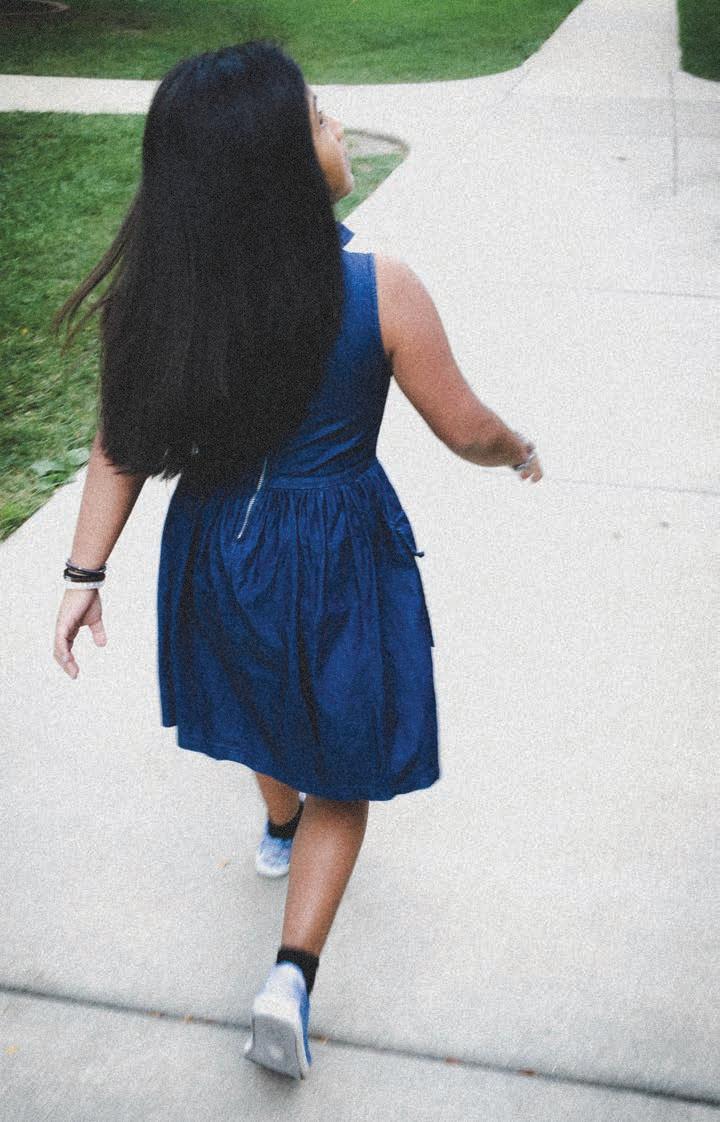
Garcia spent a few years as a member of St. Rita’s. She prayed over vans of people about to be deported. She found the work meaningful, but she also felt like she kept coming up against structural limitations of the Catholic Church. “With the Catholic Church, they
never like to get politically involved, which I don’t think is right,” she said. “You know, yeah there is religion, it’s separate, but it’s not. Because the community is being a ected by [this] loss.”
She soon came across the story of Elvira
COURTESY DARIANA RUIZ
Ruiz wanted to protect her sister from the same trauma she’d experienced as a child, so she lied to her about the disappearance of their parents.
Arellano, an undocumented woman from Mexico who’d lived in the U.S. for decades. Arellano has a U.S. citizen son and sought sanctuary in Adalberto United Methodist Church in Humboldt Park after receiving a deportation order. Arellano was deported
FEBRUARY 6, 2020 - CHICAGO READER 15 2018
in 2007, without her son, but returned to the border seven years later to seek asylum. At the time, asylum seekers were allowed to wait in the U.S. while their cases processed in immigration court. So, Arellano made her way back to Chicago, this time to Lincoln United Methodist Church.
Garcia reached out to Arellano and was invited to come to the church. “To make a long story short,” Garcia said, “I haven’t left since.”
Since her husband’s deportation, Garcia has amassed over 4,000 followers on Facebook. She publishes upwards of 30 times each day, posting links to news coverage about immigration raids and violence in Mexico, triaging for immigrant families in crisis, and livestreaming the work her fellow activists do at the church. On trips to Washington, D.C., she and her children take photos with elected representatives and tell the story of Velasco’s deportation.
In 2018, Garcia’s youngest daughter Mahalea testified at a Chicago City Council hearing that called on Congress to pass legislation that would provide protection and legal status to the undocumented parents of U.S. citizen and DACA-eligible children. Garcia is forceful when she speaks, but Mahalea can be even punchier. “My father didn’t abandon us,” the 12-year-old said. “He was kidnapped by ICE.”
Garcia is also active in Facebook groups for the spouses of deportees, most of them named some variation of “Deportee Wives/ Esposas Del Deportados.” In February 2018, a woman named Katrina Jabbi found one such group after her husband Buba was taken into ICE custody and deported to the Gambia. Jabbi spoke on the phone with Garcia and Jasmine Mendoza, who’d moved to Mexico with her kids after her undocumented husband was deported. “I was just so grateful,” Jabbi said. “Like oh my gosh, like this is possible. People are actually doing this. And there are women going through the same thing I am. I was just so grateful to fi nd a group of women to talk to. And just to cry to.”
Katrina moved with her children to the Gambia to live with her husband. Before leaving, she sat on the couch in her father’s massive cabin-style home in rural Wisconsin, rocking her sleeping baby in her arms. “I wish I would have known about them a long time ago, when I was going through all the paperwork and the process itself. Because I was trying to—” she paused. “I always felt
On a frigid and windy day in February
I arrived at Lincoln United Methodist Church in Pilsen just before services ended. The red brick colonial style building has stained glass portraits in gable-shaped windows, but is otherwise unassuming. It sits on a tra c-heavy strip of Damen, two blocks south of Cermak. Some of the letters on its sign have cracked o . A small, tattered Mexican flag was hung from the fence and whipped in the wind.
Garcia’s days are busy: she’s designed her life this way. “Knowing that my situation is not going to change, I’ll go crazy,” she said. She wore thick black eyeliner and a black hat, and greeted those who came her way with a “Hi sweetie” or “Hola mija,” followed by a hug and a kiss on the cheek.
Before afternoon services finished, some people left the upstairs sanctuary and walked down the winding staircase, and propped up plastic tables and black chairs in front of a wall of floor-to-ceiling mirrors. An attorney, a nurse, and other volunteers sat at the tables, armed with pens and stacks of paper, and prepared to o er a DACA clinic, a knowyour-rights workshop, health checkups, and free legal advice.
Garcia stood in front of a line that waited for legal advice. She explained the di erence between a warrant signed by an immigration judge and a warrant issued by ICE. This activism, she told me, helps her. “Fighting for the people, bringing that advocacy, and teaching them what their rights are—that’s been therapeutic for me.”
Garcia is skilled at weaving her own narrative into a call for policy reform on immigration. “I sound like a broken record. And sometimes I’m like, well, I just hope the message [gets out]. And then people call me a publicity hog. Like, they think I love doing this. And it’s not—it’s just like, nobody else wants to talk. And I’d rather someone say something versus someone saying nothing.”
That morning, an 18-year-old woman had messaged Garcia on Facebook asking for help because her parents had been deported three months earlier. A friend of a friend had told the woman that the lawyer who gave
2019free legal advice in this church helped fi x her status. Garcia told her to come to the church and have a free consultation with a volunteer attorney. Dariana Ruiz and her Aunt Veronica drove 22 miles from their home in Addison to Lincoln United Methodist.
Garcia introduced me and Ruiz, and we walked up to the quiet sanctuary to talk. Ruiz wore big glasses that sat just under her bangs. She was polite and clutched a yellow folder. Ruiz spoke about her parent’s absence in a dissociated way. She talked about them only as they related to her younger sister, Viviana: “her” parents were deported, she’d say. “If I say our parents I start feeling very bad because I’m now realizing, like, hey those are my parents as well,” she told me. “So when I say her parents it’s like a coping mechanism basically. It’s bad but, you know, it helps. Kind of.” This sort of dissociation is a common response to trauma; psychologists describe it as one of the ingenious ways the mind protects itself.
Ruiz and I spoke for an hour and then made our way back down the stairs, where Garcia sat with Veronica. “I was telling your aunt that maybe we can appeal that debt?” she said, referring to the money Ruiz still owed her college. “It was something that was out of your control.” The women made plans to discuss possible options. As Ruiz and her aunt began to leave, Garcia gave Ruiz a big hug. “You’re an inspiration,” she said, rubbing Ruiz’s back. “You’re so young and you’re so strong.”
By July Ruiz had enough money saved from her job at an auto body shop that she could take Viviana to Tijuana, where her parents had settled. She bought plane tickets to San Diego, where a woman her mother knew would pick them up from the airport and drive them to the border crossing. On the flight Viviana could hardly contain herself. She asked Ruiz every few minutes if they’d arrived yet. “As soon as we landed, she’s like, ‘Oh, my God, are we here? Is this Mexico?’” Ruiz said, laughing. “And I’m like, ‘No, it’s still California. We have an hour and a half left.’”
The two deplaned and hopped into a car with a woman they called Doña Mary. They got out of the car before getting stuck in traffic and walked for 20 minutes to the pedestrian border crossing. Even with the sun high in the sky, it was breezy outside. Ruiz took Viviana and their suitcases and joined the long line of people waiting to cross. As the line
moved them closer to border agents, Ruiz’s anxiety took over. “A bunch of things started popping in my head because I was like, ‘Wow, we’re literally ten minutes away from seeing our parents,’” she said. “But what if they fi nd an excuse to not let us in?”
She would spend three days in Mexico. Her family went out to eat, painted, and laid in the park under the sun. Ruiz saw her grandmother for the fi rst time in a decade, and her grandmother fi nally met Viviana. On the day Ruiz left, her family woke up before dawn to say goodbye. “It was the most depressing thing ever,” Ruiz said. “I knew for sure that [now] I was on my own without my family.” She cried on the flight back. When she returned to her aunt’s and saw Viviana’s toys on the ground she cried again.
Coming back from Mexico alone, she said, was more painful than the night her parents were taken. It felt worse than the time ten years ago when her father was deported. The separation was permanent.
Again, Ruiz fell into a deep depression. But this time, even with her family far away, something changed. In the months after her parents were deported, she’d met others who’d lived through the same thing, who had validated her pain, who had confirmed she wasn’t the only one su ering. She found a therapist, was prescribed medication, and went to group sessions where she met others struggling with depression and anxiety. Ruiz had saved enough to live on her own, so she moved out of her aunt’s house. She then lost her job and in December moved to a town near Fort Hood, Texas, where she has more family. She hasn’t seen her parents since July.
She plays the memory over and over again. She and Viviana pass through the checkpoint easily and walk into Mexico, down a long and winding pedestrian bridge that looks like an empty highway. After 15 minutes, familiar voices call their names. “The moment I saw them I just couldn’t stop crying,” Ruiz remembers. “It’s not like a feeling that you feel every single day, or like once a month or anything like that. They’re my parents, they’re my world. And having them being taken from me and my sister for eight months. It’s so painful. My heart just felt kind of empty.” She felt excited “but at the same time, it was just really sad. It’s just sad that we don’t even have the right to be a family, to be happy as a family.” v
16 CHICAGO READER - FEBRUARY 6, 2020 ll
like nobody really understood.”
@plz_CLARify
ARTS & CULTURE
LIT
Elaine Kahn’s words cut like a knife
The Evanston native’s new book of poetry explores love, loss, and pain.
 By KERRY CARDOZA
By KERRY CARDOZA
In the world of Elaine Kahn’s poetry, the truth is never stable. Lovers perform quotidian acts, married people devour one another, unspeakable things happen, and someone’s own story no longer feels like their own. Narrators are unreliable, assuredly telling their side of the story and theirs alone.
One claims not to care what life means while ostensibly writing it all down in order to find some sort of meaning.
In Kahn’s latest book, Romance or The End (Soft Skull Press), romantic tropes are put through the meat grinder. She writes:
I have heard it said that love turns people soft but I have never been more brutal
Her words are strong and purposeful, her lines stark. Many poems are mere fragments on the page. The book reads almost like one cohesive narrative, taking the reader from the early
stages of love to betrayal and pain, leaving us to ponder what was true, or what might possibly follow.
“I wanted to try to add a clear narrative structure to something that I experience as being very confusing and in fact hard to connect to,” she says. “This book, it really is me trying to make sense of something that didn’t make sense to me.”
Kahn wrote the book during a particularly hard time in her life. She was grieving the deaths of loved ones, including friends lost in the December 2016 Ghost Ship warehouse fire in Oakland. Trump had just been elected. “I had gotten to a point where I could no longer relate to my own life; its narrative had become disfigured beyond recognition,” she tells me over e-mail.
Her writing approach was more tactile than previous e orts (this is her second poetry book and she’s also published several chapbooks) as she had a hard time engaging with works in progress. Kahn’s usual writing method is to compile her filled notebooks and compose pieces by working through the text. This time around she printed out all of the text she planned to include, cut the lines up into strips,
and physically arranged them to create poems.
“I think that helped me at once get closer to the text but also feel a little more distance. It felt more like I was really assembling something. I was able to be more objective with it,” she says.
The writing method comes through in poems like “I Stand Here in my Poodle Skirt and Ask for Everything I Can Think of,” the entirety of which is:
was my sex my only magic?
I took a picture of the moon.
The cut-up technique works well with Kahn’s usual mode of writing: accruing text and taking inspiration from language in everyday life.
“I’ll write poems while half paying attention to TV. I will get language from advertisements, from receipts,” she says. She’ll then compile the text and look for themes or information that resonates. “Then, I try to figure out what story they’re telling. My poems don’t have a very conventional narrative, but to me there’s a trajectory of meaning. And it’s mostly about trying to learn more than report I think, trying to come
to an understanding through my data sets or whatever, the language I’ve acquired.”
Kahn wrote her first poems as an adolescent. Though she moved to Los Angeles in 2016, she was born in Evanston, raised in the nearby suburb Northfield. She describes herself as a “weird little kid.” Reading was her main means of escaping the tiny suburb.
“I definitely spent a lot of my life imagining leaving the little town I was in,” she says, though she has only proud feelings about being from the midwest. As a teenager, she would borrow her family’s car and drive to Lake Michigan to write. “That’s where so many of my early poems were written, just sitting in the car at Lake Michigan, in the middle of winter I would go. I still love Lake Michigan, especially in winter, nobody was around.”
Though in many ways Chicago felt inaccessible at the time, just being aware of the city’s arts community, the possibility there, was formative. “That was something that I think really did inspire me when I was young,” she says. “I knew that close by there was just this whole other world.”

FEBRUARY 6, 2020 - CHICAGO READER 17
Elaine Kahn
SOPHIE APPEL
ARTS & CULTURE

Much of Romance or The End was written in Los Angeles at the home of Kahn’s longtime friend and mentor, Kim Gordon, where she went to regroup while grieving. Gordon also designed the book’s cover. One of the artists’ signature word paintings—the title and author’s name are scrawled in dripping black ink—the artwork perfectly encapsulates the book’s tone: unsentimental and unpretty. It’s easy to see how Gordon and Kahn came to be kindred spirits—both frequently probe themes of power and desire, sometimes through opaque imagery, sometimes with an unmistakable bluntness.

The most startling work in Romance or The End, “All I Have Ever Wanted is to be Sweet,” almost perfectly bisects the book. It also serves as a turning point in both narration and tone; love’s commercial is long gone. On the poem’s first page (out of two), the lines are repetitive and grow increasingly frantic. At first, the reader is unsure what sort of scene they’re entering. It begins:
I watch his arms his face is not thinking of his face his body is what is the fear can you believe in fuck I let him watch.
It is the “fear” and the “fuck” that raises our alertness; something is not right. The pacing and wordplay deftly translates trauma onto the page.


The second page makes the situation more plain, with rhyming couplets. The narrator is now “unfastened by my fail so low to speak,” their body “split to hell so quick.” Kahn’s lines are so sharp they threaten to cut you, as brutal as a knife held against your throat.
This quality, of not holding anything back, is one she tries to instill in her poetry students. “Something I say to my students a lot is don’t be afraid to be great. And by that I mean that it can be really easy to try to get yourself to say something in a way that’s lighter or smaller or not want to make claims, not want to make statements. Because you’re afraid of like, well do I have the right? Do I have the right to speak?” she says. “That’s a really critical thing to do as an artist, is to not hedge. I think you have to give everything you have to your work, and the stakes have to be very high in order for it to be really meaningful.”
She began o ering poetry workshops in late 2016 through her “Poetry Field School,” which she runs out of her apartment in Los Angeles. The classes mostly take place online and are
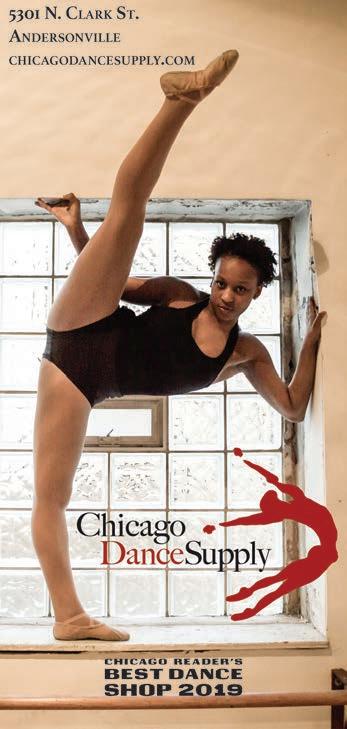

inherently political. She gives discounts for low-income folks and people of color, and recently o ered discounts to people who canvassed for Senator Bernie Sanders’s presidential campaign.
Kahn doesn’t shy away from politics, nor does she see art as some entity that exists outside of reality. Though she doesn’t consider her writing a form of direct political action, she does try to do her part in other ways (hence the Bernie discount). Similarly, during the 2018 wildfires in California, Kahn raised money for those a ected by selling handwritten poems. She very much believes everyone has skills that can be harnessed for the greater good. “Art is part of what makes life worth fighting for,” she says.
The poet certainly took her own advice with this book—Romance or The End doesn’t hold anything back. And for all its fragmentation, it doesn’t leave things without a conclusion. There is a series of poems called “Romance” which pop up throughout the book and serve as a sort of pulse. Usually brief, they are matter-of-fact but elusive, and seem to come the closest to resolution for the book’s first-person narrator. One near the end reads:
When I tell myself a story I decide the end.
On the next page is the title poem, the last before a stunning epilogue. The poem is a series of contradictory proclamations: “There is no such thing as a true story and so there are no stories in this book”; “Everything is a story. Even the truth.”
It is the closing line that will ring with clarity for anyone who has loved and lost: “There is nothing truer in this world than the lie of love.” Here Kahn lays everything she’s learned on the table. There is no such thing as a reliable narrator. Even the stories we tell ourselves are inherently skewed. We place importance on certain events in our lives and not others, picking and choosing what elements make the most sense in the personal narrative we’re constantly constructing. When that narrative falls apart, because of tragedy or trauma or some other huge life event, disillusionment takes hold. For Kahn, the breakdown she was experiencing while putting this book together was a kind of separation between one’s self and one’s story.
“Writing this book was a way to remedy that,” she says. “I just wanted to get my story back, even if it ended up being a sad one.” v
18 CHICAGO READER - FEBRUARY 6, 2020 ll
@booksnotboys NOW OPEN 7 DAYS A WEEK! MON-SAT: 11-7 | SUN: 11-5 5405 N. Clark Street, Chicago 773-944-0188 Rattleback RECORDS ANDERSONVILLE'S FULL SERVICE RECORD STORE LOOKING FOR THE BEST ALBUMS OF THE PAST DECADE OR ANY DECADE? RATTLEBACK RECORDS HAS YOU COVERED. www.rattlebackrecords.com 50s 60s 70s 80s 90s AND MORE GetYourSwag! www.chicagoreader.com/shop
Art expands the world of Juliet
An exhibit accompanying Theatre Y’s latest production puts motherhood front and center.
 By KAYLEN RALPH
By KAYLEN RALPH
In Theatre Y’s most recent production of Juliet —the company’s third time putting up Hungarian-Romanian playwright András Visky’s familial autobiographical work in the past ten years—the theater itself is a womb.
“We call it the red room of the soul,” says Melissa Lorraine, Theatre Y’s cofounding artistic director, who portrays the titular character in the play. “It’s not a womb in the safe way, it’s a womb in the essential way, so we tried to make the lobby a safer kind of womb space to hold the audience before they entered this harder space.”
An essential detail of this ancillary womb space is an accompanying six-person art show, curated with the overarching theme of motherhood in mind. The show features artwork by six local artists: Elise Glickman, Erin O’Neill, Tracy Marie Taylor, Keila Strong, Sophie Peterson, and Mary Hazboun. Lorraine put out the call for art and personally sorted through the submissions. Collectively, the work has a tonal range that feels natural considering the ways in which the broad theme of motherhood hits for di erent people, and the mix of media employed by the di erent artists o er a visceral reminder of this as well.
“I ended up choosing works that I somehow felt were extraordinarily related to the show,”
Lorraine says. “I had enough submissions to be able to really select specific works that I felt, ‘Wow, did they read the play before they made this? Because this is so related.’”
In 1959, András Visky was barely two years old when he, along with his six siblings and his mother, Júlia (i.e. Juliet) were arrested and deported to the Romanian wilderness as part of the ruling Communist party’s infamous Bărăgan deportations. For six years, Júlia and her children faced constant threat of torture and execution before finally being released in 1964. Juliet is the story of that time in the Visky family’s history, as imagined through Júlia’s eyes, delivered in monologue.
The director of this production of Juliet , Kevin V. Smith, felt very strongly about putting the subject of motherhood center stage this time around, Lorraine says, as he was recently reunited with his own birth mother. In addition to Lorraine’s compelling performance, the show includes a chorus of mothers and their children. Their presence throughout Juliet’s delivery of her harrowing experience of deportation underlines this theme as the production’s core.
“Motherhood is kind of universal. If we’re not mothers, we all have moms, and I think there’s a lot going on in the art world right now
centering around mother artists,” says O’Neill, referencing exhibits on art and motherhood currently taking place in London at the Foundling Museum with Portraying Pregnancy: From Holbein to Social Media and Nashville, where the creator of a podcast that examines the artist/mother identity, Kaylan Buteyn, has curated Mother or (K)not, her first group showaround the exploration of that dual identity.
O’Neill’s contributions to the group show are various watercolor explorations of her daughter’s form and identity.
“I was intrigued by how di erent the form of a small child was to that of the adult figures I was accustomed to referencing,” O’Neill writes in an artist statement that accompanies her work. “It was not only in her anatomy but in her gestures and stances as she was learning how to use her body, all while I was relearning how to be an artist.”
While there are other themes that vie for dominance in Juliet, like faith and spousal love, “all of those things somehow came to a critical juncture in Juliet’s life when she thought she was going to have to watch her children die in front of her,” Lorraine says.
The timing of this production of Juliet and its accompanying art show is poignant on two levels, allowing for rich, guided discourse amongst the audience after each performance. There is, of course, the continued practice of family separation and deportation at the U.S. border in an increasingly hostile political climate. Chicago-based Palestinian artist Mary Hazboun’s contributions to the group show— and her lived experiences—in particular speak to this angle. She was born and raised in Bethlehem and lived under Israeli military occupation. In 2004, at the age of 21, she migrated to the U.S. with her family.
One of Hazboun’s contributions to the show, Collective Trauma , is an ink drawing portraying an intertwined pile of seven people, an eerie, unplanned homage to Juliet’s seven children in the show. Throughout one of the earliest performances of the play, Hazboun watched from the audience, quietly writing and sketching throughout.
“Because I’ve lived in a very particular place and circumstances, I try as hard as I can [in my art] to challenge the fixed narrative we have about war zones, because people’s stories are di erent and their experiences are di erent,” she says. “It’s important to add context in order for us not to create that monolithic narrative that women are just victims.” v
@KaylenRalph

FEBRUARY 6, 2020 - CHICAGO READER 19
VISUAL ARTS
ARTS & CULTURE
Things to do
COMEDY
Funny Little Liars
Comics tell two truths and a lie on stage and it’s up to the audience to decide what’s what. If they’re wrong, the stand-up will make up an embarassing lie about that audience member. This month’s guests include Taneshia Rice, Marz Timms, and Amber Autry. Sun 2/9, 9 PM, Laugh Factory, 3175 N. Broadway, laughfactory.com. F
Poly-Poly Comedy

KJ Whitehead hosts a night of all polyamorous and nonmonogamous stand-ups featuring Yaz Bat, Skitz M. Jones, and Shannon Smith. Wed 2/12, 10 PM, the Crowd Theater, 3935 N. Broadway, thecrowdtheater.com, $10.
DANCE



Riverdance


The 25th anniversary tour of the show that began as an “interval act” at the 1994 Eurovision song contest touches down in Chicago, featuring a fusion of traditional Irish step dancing and other international influences. Original creators (composer Bill Whelan, producer Moya Doherty, and director John McColgan) have overhauled the original hit production for this tour. Through 2/9, Wed 2 and 7:30 PM, Thu-Fri 7:30 PM, Sat 2 and 8 PM, Sun 2 PM, Cadillac Palace Theatre, 151 W. Randolph, broadwayinchicago, $32-$90.
LIT

Plexiglas #5


Poet Callie Garnett reads alongside a presentation of work by Cathy Hsiao. Pizza and refreshments will be served. Fri 2/7, 6 PM, Gray Center for Arts and Inquiry,
929 E. 60th, graycenter.uchicago.edu. F
Ela Przybylo
The author celebrates the release of her book looking at asexuality, Asexual Erotics, with a reading and discussion. Fri 2/7, 7 PM, Women & Children First, 5233 N. Clark, womenandchildrenfirst.com. F


avery r. young
In neckbone: visual verses, avery r. young’s poetic text details the Black experience and the gospel between poetry, art, and music. There will be a Q+A and book signing a er the discussion. Wed 2/12, 6 PM, Seminary Co-op, 5751 S. Woodlawn, semcoop.com. F
MARKETS

Forget Me Not Shop pop-up market
A pop-up market featuring artists, makers, vintage vendors, vegan food by The Spread, complimentary drinks for those 21 and up, and more, organized by No Requests. Cash donations benefit Chicago Period Project. Vendors include No Requests, Feeltrip Records, Ace High Vintage, Wood & Wax Co., and Dispencer Handpoke. Sat 2/8, 2-8 PM, Smashed Plastic Record Pressing, 2833 N. Tripp, facebook.com/norequestschi. F
Handmade Market Chicago
An indoor market with more than 30 artists and vendors; children accompanied by their parent or guardian are welcome. Sat 2/8, noon-4 PM, the Empty Bottle, 1035 N. Western, emptybottle.com. F
VISUAL ARTS
“BIG PART small whole”
Marie Baldwin and Allan J. Masterson’s work will be exhibited in this show curated by Lindsay Hutchens. Opening reception Sat 2/8, 6-9 PM. 2/7-2/29, Wed-Sat, noon-4 PM, ACRE Projects, 1345 W. 19th, acreresidency. org. F
“CA$H ONLY”
In his first solo exhibition, Jacob King exhibits his 35mm photography of the personalities and faces of the people who visit Rite Liquors, half bar/half liquor store. Opening reception Fri 2/7, 6-9 PM. 2/7-2/29, daily 11 AM-5 PM, AdventureLand Gallery, 1513 N. Western, adventurelandgallery.info. F
“Outsider Art: The Collection of Victor F. Keen”
More than 40 works of art from the most well-known outsider artists from the collection of Victor F. Keen are on display. 2/6-9/7, Tue-Fri and Sat, 11 AM-6 PM, Thu 11 AM-7 PM, Sun noon-5 PM, Intuit: The Center for Intuitive and Outsider Art, 756 N. Milwaukee, art.org, $5. v

20 CHICAGO READER - FEBRUARY 6, 2020 ll ARTS & CULTURE
THE TIMES ARE RACING INCLUDING TONY AWARD®-WINNER JUSTIN PECK’S ELECTRIFYING SNEAKER BALLET TICKETS START AT $35 NOW–FEBRUARY 23 JOFFREY.ORG | 312.386.8905 GROUPS OF 10+ CALL 312.386.8937 Joffrey Company Artists Dylan Gutierrez and Jeraldine Mendoza. Photo by Cheryl Mann. 50 E. Ida B. Wells Dr. Chicago, IL PERFORMS AT:2019–2020 SEASON SPONSORS THE FLORIAN FUND “Outsider Art: The Collection of Victor F. Keen" COURTESY INTUIT: THE CENTER FOR INTUITIVE AND OUTSIDER ART
The Chicago Reader is community-centered and community-supported.






CHICAGO FOR CHICAGOANS
You are at the heart of this newspaper. Founded in 1971, we have always been free, and have always centered Chicago. Help us to continue to curate coverage of the diverse and creative communities of this fabulous city.




Your donation keeps the presses rolling.
IN HERE: www.chicagoreader.com/members
FEBRUARY 6, 2020 - CHICAGO READER 21
CHIP
WANT TO DONATE VIA CHECK? Make checks payable to “Chicago Reader” and mail to Chicago Reader, Suite 102, 2930 S. Michigan Avenue, Chicago, IL 60616. Include your mailing address, phone, and email—and please indicate if you are okay with us thanking you by name in the paper.
There’s no need to fear—Underscore is here
The company’s sixth annual Chicago
By CATEY SULLIVAN
New musicals are inherently fragile. Festivals devoted to them, exponentially more so. Chicago has seen ambitious fests showcasing new tuners come and go: The Musical Theatre Writers Workshop, Midwest New Musicals and . . . New Tuners—all shone brightly and went dark. The latest casualty in the field is the New York Musical Festival, where Next to Normal and [title of show] (among others), got early productions. NYMF shuttered suddenly in January, leaving 2020’s festival entrants with little but feedback from the selection committee.
Which brings us to Underscore Theatre’s Chicago Musical Theatre Festival, running

survives where others have failed.
February 3-23 at the Edge Theater’s two spaces. Showcasing eight new musicals, several staged readings, and a program of ten-minute shows, the fest is one of the last of its kind in the nation. The challenges of keeping it solvent aren’t lost on Rachel Elise Johnson, festival producer and Underscore’s executive director. But as a tenured professor of mathematics, Johnson thrives on di cult equations. She believes she’s found a formula that’ll make Underscore’s fest viable for years to come.
“It’s very hard to mount a show that won’t take a hit,” Johnson says of the costly task of getting musicals on their feet. “But we’ve got a festival model that’s financially
self-sustaining.”
It sounds like magic, but it’s actually math.
The shows selected for the sixth annual UCMTF each get a minimum of five performances. Underscore provides marketing, performance space, box office, light and soundboards, and board operators. It also manages a massive open-call audition where out-of-towners can cast from local talent and provides visiting artists with a database of Chicago-based designers and recommendations on who to hire.
Ticket sales ($10-$25) are split between Underscore and the musicals’ “producers,” usually the creators of the new shows, John-
son says. A panel of judges hands out awards at the fest’s culmination. Half the gate plus participation fees ($1,400 for each of the eight musicals, less for the ten-minute shows and staged readings) is enough to keep the festival funded and cover expenses for much of Underscore’s season, Johnson says.
“Most of the entrants are artists, not necessarily producers,” she adds. “We want to help them with that, however we can. Give them the tools to get the show up with the intent and the integrity they envision. We try to help them keep their entire budget under $7,000. We’ve had some spend up to $12,000, but there’ve been shows done for $3,000 that
22 CHICAGO READER - FEBRUARY 6, 2020 ll
PREVIEW
Musical Theatre Festival
SIXTH ANNUAL CHICAGO MUSICAL THEATRE FESTIVAL Through 2/23 : for complete schedule, see website. The Edge Theater (5451 N. Broadway) and the Edge Theater Off-Broadway ( 1133 W. Catalpa), cmtf.org, $10 -$25, $175 for festival pass.
THEATER
have won. It’s not about having a lavish set or costumes. It’s about having a developed plot, complicated characters, and a good story.
“For the most part, a few sold-out performances should make (entrants) back their money. Our idea is everyone should break even or come out ahead,” she says.
In the two months between being selected for the fest and mounting their show, some producers turn to crowdfunding. That’s the route Deepak Kumar, a doctoral candidate finishing up his computer science dissertation at the University of Illinois Urbana-Champaign, and Jordan Liu, a San Francisco-based Google software engineer, took when they learned their show Baked! had been selected for both Underscore’s fest and the New York Musical Festival. The latter’s sudden end barely fazed them.
“In December, the NYMF artistic director emailed—‘Look, I don’t want to alarm you,

but I’ve quit,’” Liu recalls. “The next day they declared bankruptcy. We’re treating it as a positive thing. I mean, I’m already in negative vacation days just with Chicago. And obviously we now have more money for Chicago.”
Baked! raised almost $8,000 via Indiegogo. It will cover the show’s all-Asian American ensemble, which Liu and Kumar cast locally. Liu is paying for a $7-a-night Airbnb out of pocket. Kumar’s commuting from Champaign several times a week. They describe Baked! as an Asian American high school story that upends the cliches of both high school and Asian American teens.
“Other high school stories we saw on stage—Dear Evan Hansen, Heathers, Be More Chill—they didn’t feel that honest to our experiences,” says Liu.
“For us, high school wasn’t like a John Hughes movie,” he adds. “The popular kids were popular because they were really nice and really smart. There’s no rampant bullying or drug use. And our parents weren’t putting tons of pressure on us. We knew our parents
would love us no matter what. We put the pressure on ourselves.”
“The main question we want to ask in Baked! is why do we put so much pressure on ourselves? And what happens when we lie because of that pressure?” Kumar says.

Verve takes on pressure of a di erent kind. The musical, featuring Chicagoan Fran Zell’s book and lyrics and a score composed by the late Karena Mendoza, is rooted in Zell’s experiences at a Curves gym. “I almost didn’t have to read the local newspaper because I got all the news from women chatting at Curves. I mostly just listened,” Zell recalls. Musical theater luminary Joan Mazzonelli will direct a five-woman cast that ranges in age from teen to grandmother. Mazzonelli has a long history of putting new works on their feet: She logged 24 years (1985-2009) as the executive director of Theatre Building Chicago (now Stage 773), in an era when the venue was the city’s premiere spot for brand-new musicals.
Zell describes the show as a celebration of community, flaws and all. “You can celebrate
the importance of community without idealizing or romanticizing it. There are always going to be issues,” Zell says. “I’m not saying there aren’t laughs in the show, but we don’t trivialize things. It isn’t necessarily built for laughs, like a sitcom. I consider myself a feminist. I think it’s important for women to have the opportunity to be seen and heard on stage.”
While Underscore’s fest is in its sixth year, Johnson’s been helming it for three. She expects 2021 could bring a spike in entrants.
“I think with the closing of NYMF we’re one of the last festivals devoted to new musicals left in the country. That will probably impact our submissions,” she says. For artists, the benefits are tough to calculate.

Johnson sums it up: “You can be the first person to play a role, to really help something great come to life. You don’t know—you could be working on the next Hamilton. You’re part of something bigger than you.” v
@CateySullivan
FEBRUARY 6, 2020 - CHICAGO READER 23
THEATER
Verve
SOPHIA SINSHEIMER
The mind-bending cult classic By ensemble member TRACY LETTS Directed by DAVID CROMER Tickets start at $20 steppenwolf.org 312-335-1650 Due to popular demand–now extended through MARCH 15
Paranoia will destroy ya
Tracy Letts’s Bug feels even more relevant nearly a quarter century later.
By KAYLEN RALPH
The lobby of Steppenwolf Theatre should have been filled with the pings and dings of Iowa caucus results as audience members exited the theater Monday night. The opening performance of Steppenwolf’s premiere of Tracy Letts’s Bug, directed by David Cromer, coincided with the very beginning of the Democratic primary season, after all. (The
play premiered in London in 1996, starring Shannon Cochran and Michael Shannon, and made its local debut at A Red Orchid Theatre in 2001, starring Kate Buddeke and Shannon.)
But there were no results, only disputed claims of election hacks and digital interference.
Coincidence? Bug’s Peter Evans (Steppen-
wolf ensemble member Namir Smallwood) would think not.
It’s hard to believe in coincidences when you’re living in a widespread, government-backed conspiracy theory. When Peter meets Agnes (Steppenwolf ensemble member Carrie Coon) at the seamy motel she calls home on the outskirts of Oklahoma City, he’s

an obvious drifter with a mysterious past. After being introduced to Agnes by R.C. (Jennifer Engstrom), Peter ends up ditching a party to spend time with Agnes instead.
They hang out, smoke crack, drink vodka and Cokes, and—“Did you hear that?”—go hunting for a cricket that turns out to be not a cricket at all, but rather Agnes’s dying smoke detector. After Peter sends the device careening off the wall of scenic designer Takeshi Kata’s perfect set, he encourages her to get rid of the thing immediately.
“Why?” Agnes asks.
“They’re dangerous. They’ve got americium-241 in them. More radioactive than plutonium,” Peter says.
“Holy shit. No wonder I feel so lousy,” Agnes responds.
Agnes feels lousy for several reasons: Her ex-husband is out of jail early, and his reentry into her life floats above her head with impending doom; she smokes a lot of crack and she drinks a lot, too. She hasn’t seen her son since he vanished from her shopping cart at a grocery store almost ten years ago, a painful truth she shares with Peter shortly after they bond over the dangers of that americium in the smoke detector.
Once Agnes invites Peter to sleep on the floor of her hotel room, the two become inseparable, their blossoming friendship stoked into a love story by the flames of Peter’s emergent paranoia, and Agnes’s willingness to believe or smoke anything that makes her feel alive.
Peter’s paranoia exhibits as a multilayered theory about the millions of militarized bugs he believes his body fell prey to after a state-sanctioned experiment on citizen surveillance went wrong. A former soldier, Peter’s PTSD is palpable and raw. As originally written by Letts, Agnes is 17 years Peter’s senior. She takes him to bed, but their relationship isn’t overtly sexual. They bond over the chips stacked against him and the ways the world has wronged them. While Agnes doesn’t initially exhibit any signs of her own mental illness, she is easily caught up in Peter’s panic. Her cultural contagion feels just as applicable today as it did nearly 25 years ago in a political climate where polarization works. We’re all just trying to survive. v
24 CHICAGO READER - FEBRUARY 6, 2020 ll THEATER REVIEW
@kaylenralph
Bug MICHAEL BROSILOW
R BUG Through 3/ 15 : Tue 7: 30 PM, Wed 2 and 7: 30 PM, Thu-Fri 7: 30 PM, Sat-Sun 3 and 7: 30 PM; see website for complete schedule, Steppenwolf Theatre, 1650 N. Halsted, 312 335 1650, steppenwolf. org, $20 -$122
THEATER
Get ducats for the Duke—now
Porchlight’s Sophisticated Ladies earns all the imperatives.
By CATEY SULLIVAN
I’m no fan of imperatives, but on occasion one simply must make an exception. To wit: Stop reading this. Not kidding. Cease immediately and go get tickets to Porchlight Music Theatre’s Sophisticated Ladies. Directed and choreographed by Brenda Didier and Florence Walker Harris with music direction by Jermaine Hill, it is to jukebox musicals as the Grand Canyon is to sinkholes.
The revue of more than two dozen Duke Ellington songs (concept by Donald McKayle) begins with Hill’s seven-piece orchestra unleashing an incandescent
overture that sounds like a this-cannot-possibly-be-topped-finale. Then, it just keeps getting better. Sophisticated Ladies is the sound of glory, amplified by sublime dancing.
Let’s start with Donica Lynn, whose midfirst act “It Don’t Mean a Thing” is accompanied by a sparkly corps of snazzy chorines. You know how extraordinary feats of gymnastics are named for their creators, such as the double-double beam dismount known as the Biles? Lynn’s molten vocals should be likewise codified. Nobody in musical theater out-Donicas Donica, and she is at her Doni-
ca-est here. Tens across the board. And we’re not even halfway to intermission.
The choreography is fire, as is immediately apparent in “The Mooche,” which showcases a corps of Josephine Baker-fine dancers outfitted in elaborate palm-leaf scanties that evoke Baker’s iconic banana leaf costume. (Theresa Ham’s designs deserve a runway.) The sizzler is so unabashedly sensual if feels like you could get pregnant just watching it. Opening night, there was a wig mishap that turned into a scene of pure inspiration during “Mooche.” May we all handle whatever obstacles life throws our way with the unflappable, authoritative beauty of Teri K. Woodall schooling that rogue hair pile. Woodall gets
R SOPHISTICATED LADIES
Through 3/6 : Thu 7: 30 PM, Fri 8 PM, Sat 3: 30 and 8 PM, Sun 2 PM; also Tue-Wed 3/3-3/4, 7: 30 PM; Thu 2/6 and 2/ 13, 1: 30 PM only, Ruth Page Center for the Arts, 1016 N. Dearborn, 773 777 9884, porchlightmusictheatre.org, $ 51-$ 56

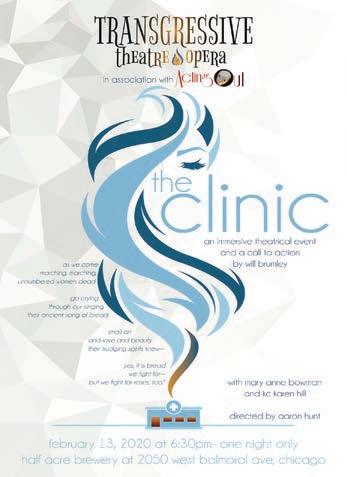
a solo dance later with “Solitude” (sung by Lydia Burke with the intensity of a thousand breaking hearts). It’s a breathtaking celebration of muscle, blood and bone, and physical power. This is what Walt Whitman was talking about when he sang the body electric.
Every song in the revue tells an elaborate story rich in detailed characters, the transitions between songs adding layers on layers. Some are entire scenes, such as “KoKo” which features an edge-of-your-seat poker game where the mighty Lorenzo Rush Jr. eventually swaggers o with the loot. As is only fi tting, because when Rush scats, it’s pure money.
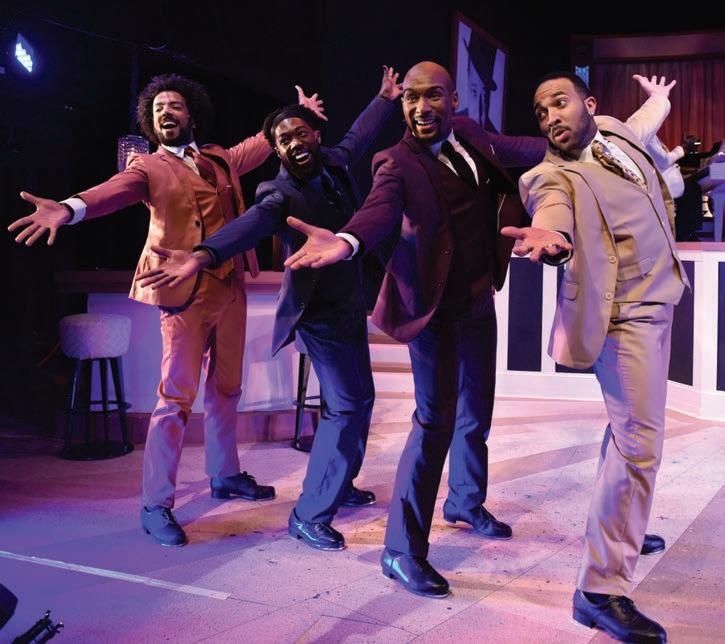
Speaking of: Joey Stone. Although Stone looks nothing like Ben Vereen, his dance— particularly his jazz and tap—evokes the great song-and-dance man at the height of his powers. Stone’s line is Grecian-graceful and his footwork looks so effortless it’s like he’s saying, “Oh, this old backward double-time-step-buffalo-shuffle-pirouette-split-leap-Arabian thing? Just pulled it out of the hamper ’cause everything else was in the wash.” Shut. Up.
If you have a pulse, Sophisticated Ladies will fill you with joy. Why are you still here? v
@CateySullivan
FEBRUARY 6, 2020 - CHICAGO READER 25
REVIEW
Sophisticated Ladies MICHAEL COURIER
THEATER
OPENING
R Words fail
An “empathy coach” enters a workplace hornet’s nest. Jess McLeod directs the Chicago premiere of Do You Feel Anger?, Mara Nelson-Greenberg’s trenchant 2018 satire of office and gender politics. Empathy coach Sofia (Emjoy Gavino) walks into a hornet’s nest of toxic misunderstanding and abuse when she’s hired to help a debt collection company get their act together. From the cheerful yet traumatized Eva (Sadieh Rifai) to the friendly but clueless boss, Jon (Lawrence Grimm), and alternately horrifying duo of Jordan (Bernard Gilbert) and Howie (Levi Holloway), Sofia’s got a whale of a job on her hands.

It is an environment in which basic communication has broken down on a word-to-word level. Men, women, insiders, and outsiders all have their own languages and can barely understand one another across their differences. It grinds the bubbly Sofia down to the point that by the end she has taken on the devolved argot of the horrific workplace she’d been tasked to fix. But the more we learn of her own backstory, the more evident it becomes that Sofia may not have been the ideal choice to remedy what seem like intractable problems.

From the ugly geometric set (designed by Jeff Kmiec) to Mike Durst’s cold fluorescent lighting to the pitch-perfect portrayals of an unbalanced set of people, this is a scary-accurate take on our current situation. Paul Dillon as the Old Man nearly steals the show in his cameo, but it’s Nelson-Greenberg’s funny/horrible words which are the clear stars. She makes us empathize with this flawed bunch in a way Sofia could only dream of. —DMITRY SAMAROV DO YOU FEEL ANGER? Through 3/15: Thu-Fri 7:30 PM, Sat 3 and 7:30 PM, Sun 3 PM, A Red Orchid Theatre, 1531 N. Wells, 312-943-8722, aredorchidtheatre.org, $30 Thu, $35 Fri and Sat matinee, $40 Sat evening and Sun matinee.
How a play falters
Steven Dietz’s family drama lacks high stakes.
Nothing is as it seems to be in How a Boy Falls, Steven Dietz’s family drama receiving its world premiere production here at Northlight, and that’s a problem. If one person had a dark secret, or hidden past, in this tale of a family shaken by the perhaps accidental death of a young boy, it might have made for a great drama—or at least an interesting one. But Dietz piles on one secret a er another, until we come to believe nothing in the play is certain, and then we stop caring.
To be fair, there are a lot of reasons we don’t care about Dietz’s story. For one, Dietz, a seasoned and accomplished playwright, has chosen this time around to treat his characters like mere pieces in a very complicated game, with the result that Dietz’s characters talk a lot, do a lot, but rarely say or do anything that makes us want to know about who they are, or why they do what they do.
This may be one reason why the current production is so cold; there just are no relatable characters to draw us in. I suspect there are many factors in the show’s lack of warmth, and plenty of blame to go around. For one, Dietz’s story is not particularly well structured. There are lots of big reveals in his tale, moments when, in a better-told story, we might gasp in surprise, or smile in recognition, but here only remind us that in Dietz’s universe anything can happen, and does, and so what.
The show’s director, Halena Kays, seems utterly unable to find any drama in this drama. Nor do her actors; in the hands of this cast Dietz’s words are rarely anything more than a 75-minute acting exercise. Of the five members of this ensemble, only Cassidy Slaughter-Mason is able to give her character—a shady, negligent au pair—the illusion of depth. The rest of the cast could be played by puppets, and nothing would be lost. In fact, this play might work better with puppets. On second thought: no, it wouldn’t.
—JACK HELBIG HOW A BOY FALLS Through 2/29: Wed 1 and 7:30 PM, Thu 7:30 PM, Fri 8 PM, Sat 2:30 and 8 PM, Sun 2:30 PM; also Sun 2/23, 7 PM; Wed 2/19, 7:30 PM only, North Shore Center for the Performing Arts, 9501 Skokie Blvd., Skokie, 847-673-6300, northlight.org, $30-$89, $15 students.


26 CHICAGO READER - FEBRUARY 6, 2020 ll
R The laws of attraction Desire and self-defense clash in How to AtTheMAC.org 630.942.4000 McAninch Arts Center 425 Fawell Blvd, Glen Ellyn Buffalo Theat e En em le P e ent THE CAKE By Be ah B un Di ected y Ste JAN 30 - MAR 1 Written by one of the former writers and current producer of NBC’s hit show This Is Us. How to Defend Yourself
LIZ LAUREN
Defend Yourself






Last summer, Selina Fillinger’s drama Something Clean asked us to consider the a ermath of a campus rape from the point of view of the perpetrator’s parents. Now in Liliana Padilla’s How to Defend Yourself (presented at Victory Gardens in a co-world premiere with Actors Theatre of Louisville), we meet a group of college students who are wrestling (literally) with what to do a er a sorority sister is raped by two young men at a frat party. Guilt, defiance, desire, and cultural as well as gender differences all break out in a series of self-defense classes, conducted by Brandi (Anna Crivelli), a Type-A whose bossiness hides her remorse at not doing more to protect her “little sister,” and Kara (Netta Walker), whose defiant proclamations about enjoying the messier edges of sex eventually reveal her own insecurities.
Their students include gun enthusiast Diana (an endearing Isa Arciniegas), who is attracted to her best friend, Mojdeh (Ariana Mahallati), who in turn harbors a crush on an older guy in her biology class. Painfully shy Nikki (Andrea San Miguel) and the well-meaning-butout-of-their-depth male duo of Andy (Ryan McBride) and Eggo (Jayson Lee) round out the class.

What Padilla’s play—directed with pinpoint precision and plenty of startling wit by Marti Lyons—asks us to consider is how defending our lives can so o en clash with living our lives. As we teach young women “how to avoid being raped,” do we spend as much time teaching young men (even the “good” ones, like Andy and Eggo) how to avoid staying silent in the face of rape culture?
At the very time that young people should be exploring their sexual identities, we remind them that their joy in their powers of attraction can’t always save them from a world where conquest remains a dominant driver in human interactions.













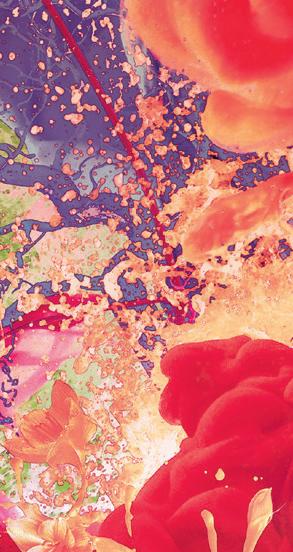









—KERRY REID HOW TO DEFEND YOURSELF Through 2/23: Tue-Fri 7:30 PM, Sat 3 and 7:30 PM, Sun 3 PM, Victory Gardens Theater, 2433 N. Lincoln, 773-871-3000, victorygardens.org, $31-$65.










R House of cards
A banker gets trapped in the dark art of the deal.

You’d think by now we’d need no more convincing: bankers are crooks, the financial system is a top-heavy house of cards, and Brooks Brothers is for assholes.
Enter Broken Nose Theatre’s Labyrinth. A riveting drama—and compelling primer on how U.S. loans fucked over Latin American countries back in the 70s and 80s— the story dissects economic corruption at a subjective level. As director Spenser Davis points out in his program notes, Labyrinth is about “the people getting the deals done.” It’s not about taking out the economy’s transmission and explaining each of the parts; it’s about understanding the emotions and histories that drive people to insatiable greed and its inevitable fallout.
Beth Steel’s play begins with John Anderson (William Anthony Sebastian Rose II), a scrappy young banker, at an interview for his first big job. It’s 1978. WIthout an



















Ivy League education and moneyed pedigree, John has clawed his way up and will stop at nothing to avoid his con-man father’s fate. He will do things the right way. John then finds himself jetting off to Latin America to sell loans to developing economies. Along with his steely and quick coworker Charlie (David Weiss), John holds the wand to an enormous credit bubble and keeps blowing into it.
But, of course, too much hot air catches up with John, and he spirals out as the cracks begin to show. Bankruptcy begins to suffocate everything, including John’s own morals. As his reality and madness begin to peel apart, John takes the audience on a tragic trip to financial Hell—and it doesn’t seem like we’ve ever really escaped. —KT
HAWBAKER LABYRINTH Through 2/29: Thu-Sat 7:30 PM, Sun 3 PM; also Mon 2/17, 7:30 PM (industry) and Wed 2/26, 7:30 PM (understudy night), Den Theatre, 1331 N. Milwaukee, 773-697-3830, brokennosetheatre. com, pay what you can.

Not many kicks
A jukebox musical about Route 66 meanders.

There is no story in Roger Bean’s jukebox musical, nor are there any characters, only the barest fig leaf of a unifying theme; all of the songs in this show are either about the iconic highway, stretching from Chicago to Santa Monica, California, or they concern stops along the way. If you think this is not enough to power a two-hour show, you’re right.
Bean depends utterly on the songs, and on the nostalgic feelings these old chestnuts from mid-20th-century America—among them “King of the Road,” “On the Road Again,” and the one the show is named a er—are meant to evoke in the audience. He doesn’t even mix in allusions to the myriad references to the Route in literature, film, and television. (Both John Steinbeck’s The Grapes of Wrath and Jack Kerouac’s On the Road feature long swatches of 66, but you wouldn’t know it from this show.)
The songs in the show are nice. Bean is not a bad anthologist; he does a good job of giving us a fine mix of familiar and overlooked tunes, in a wide variety of styles and genres. But in the end, Bean depends way too much on a strong ensemble of singer-actor-dancers to carry the show.
Sadly that is not what we have here. Instead we get four pretty good singers, directed by Mary Pat Sieck, who do a pretty good job, but almost none display the star power needed to make these gems shine. That is not to say the cast lacks charm. Quinn Corrigan is particularly adept at a certain calculated goofiness. But no one in the ensemble has the chops, or that inexpressible something, needed to make an audience go wow. It doesn’t help that they are not singing with a live band, but with a canned synthesizer-filled accompaniment.
To be sure, you won’t get your kicks from this Route 66
—JACK HELBIG ROUTE 66 Through 3/6: Fri-Sat 8 PM, Sun 3 PM, Open Door Repertory, 902 S. Ridgeland, Oak Park, 708-386-5510, opendoortheater.net, $27, $25 seniors, $15 students. v

FEBRUARY 6, 2020 - CHICAGO READER 27
THEATER WILL HAVE YOU DANCING IN CHICAGO NOW YOUR CHAIR AND LAUGHING ” TRIBUNE ” A NEW MUSICAL book, music & lyrics by PAUL GORDON adapted from the novel by Jane Austen directed by BARBARA GAINES Jane Austen’s classic is filled with wit, romance— and now, glorious song! BEGINS JANUARY 28 TICKETS START AT $ 35 THROUGH FEB 14 CHICAGO S H A K E S P E A R E THEATER LEAD PRODUCTION SPONSORS
Burton X. and Sheli Z. Rosenberg Ray and Judy McCaskey
Carl
and Marilynn oma
SUNDANCE FILM FESTIVAL
Reviewing while Black at Sundance
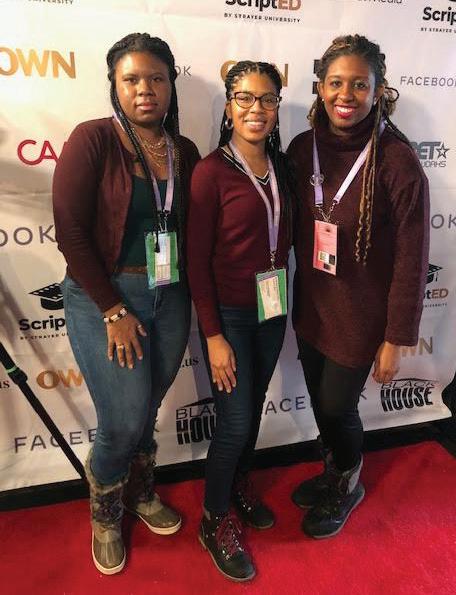
On criticism, inclusion—and exclusion—at one of the most diverse Sundance festivals in history.
By SHERI FLANDERS
Iwas fortunate enough to be one of the 51 critics selected for the Sundance Press Inclusion initiative, a program that provided free tickets to the ten-day Sundance Film Festival and cash for lodging and airfare to, as the festival notes, “critics, freelancers, and journalists from backgrounds underrepresented in the critical mainstream, with an emphasis on people of color, women, and people with disabilities.”
When a friend wondered how the program had come about, the comedian in me cynically responded: “I guess like most businesses they are moving towards increased diversity—or they got in trouble for something.” Jokes aside, no win in the diversity space is ever “clean.” It’s not a value judgment, it’s a fact. And I was completely jazzed that somehow this fact included me.
Sundance says it created the Press Inclusion Initiative in 2018 “to address an imbalance in the critical landscape.” According to Critic’s Choice 2, a study by USC Annenberg’s Inclusion Initiative, of the critics reviewing the top 300 films from 2015 to 2017, 65.6 percent were white males.
I have always loved film—as a teen in the heart of Indiana, I grew up reading Roger
Ebert’s reviews, falling in love with films that would never bother to screen in the heartland. Ebert’s descriptive powers took me a world away from the decidedly unexciting cornfields surrounding Indianapolis. Sure, the idea of going to Sundance was on my bucket list, in the same way that traveling to space or visiting the Obama White House were; it was a beautiful and unlikely dream for a middle-aged Black woman from humble beginnings and modest present. As a recovering fashion designer, I knew how expensive and elite Park City, Utah, was and immediately bought an impractical all-white coat in a fit of insecurity.
Fifty-one participants in an inclusion program is extraordinary. Usually there can be only one person from a marginalized background in any program, creating an intense fight to the death to be considered the “best” among a roster of excellent choices. This time it seemed that at least some of us were chosen to give experience specifically to newer artists, which helped relieve scrutiny and create a relaxed atmosphere. Sitting in a room watching Janicza Bravo, the Black director of Zola, be interviewed by Jacqueline Coley, a Black journalist from Rotten Tomatoes, felt revolutionary. A recent New York Times article noted
28 CHICAGO READER - FEBRUARY 6, 2020 ll FILM
EMIL FERRIS February 11 INDUSTRIAL FACILITY February 25 SUZANNE ANKER March 10 IAN CHENG March 24 TRENTON DOYLE HANCOCK April 6 TSAI MING-LIANG April 21 saic.edu/vap FREE ARTIST TALKS 6:00 p.m. The Art Institute of Chicago, Rubloff Auditorium, 230 S. Columbus Dr. | Persons with disabilities requesting accommodations should visit saic.edu/access. Sheri (center) walks the red carpet at the Black Entertainment Critics Luncheon. COURTESY SHERI FLANDERS
FILM
thursdays theatre
that this Sundance was one of the most diverse ever, with women directing 44 percent of the 118 films, minorities directing 34 percent, and those identifying as LGBTQ directing 15 percent. There was an overwhelming feeling in the air that perhaps finally, after years of pushing that boulder of diversity up the hill, changes were beginning to stick.
I was grateful that the application for the Sundance program was short. Usually for diversity programs, I spin my experience depending on what I think the auditors want to hear: a narrative of pain and poverty porn, or an inspirational triumph story against all odds. Both stories are true. I am a multihyphenate artist because I am a Renaissance woman who has done it all and can do it all out of sheer necessity. I try not to think about how much further along in my career I would be if I had never faced any barriers. I try not to think of the salary I might have now. I try not to think of the salary of the person 20 years younger than me with half of the experience. I try not to think of how I am being touted as an expert with two years of experience to show that our community has “progressed.” But marginalized years are like dog years in that the lessons are uncompromisingly brutal, forcing growth and adaptation at a staggering pace, so perhaps it is true that I am already an “expert” in some ways.
I came to the world of criticism on a whim. Two years ago, the Chicago theater community came to a rolling boil, fueled by a seemingly endless parade of tone-deaf reviews written by predominantly white and male critics. In response to a particularly egregious review, a group of artists came together to form the Chicago Theater Accountability Coalition and put out a call for diverse voices willing to give criticism a try. After answering that call and writing my first review, for Little Fish, I quickly began writing for several local publications, and eventually started being paid for it.
Like most competitive arts programs, Sundance Press Inclusion participants were instructed to not share the good news until it had been publicly announced. A few days before Sundance I went online and came across a few tweets from recipients of the initiative from the year before who were disappointed that they hadn’t been chosen again this year. As I hurriedly prepared for the trip, I didn’t have time to give it further thought, and I turned my focus to the Sundance Press Inclusion video chat and connected just in time
to hear the indomitable Chaz Ebert remind us to bring extra socks. Park City is in the middle of Utah’s gorgeous white-capped mountains, an elite ski destination and frankly a snowy heaven on earth. Within hours of landing, this midwesterner was struck by a mild queasiness from altitude sickness that could only be quelled by a constant diet of Gatorade.
The Sundance Press Inclusion Initiative was created out of the knowledge that one of the biggest barriers to attending Sundance is the price. All-access for the entire festival can cost up to $4,000. Mainstream journalists on assignment from major news outlets have their tickets, lodging, airfare, and daily per-diem covered. Freelancers for smaller outlets go on our own dime or don’t go at all. The Initiative provided a very generous and rare unrestricted cash grant to go towards food and lodging, in addition to access to films. But by the time the Inclusion Initiative grants were awarded a month out, the only lodging left in the area were ritzy lodges with hot tubs and fireplaces for $3,000 or more a night or hostels for $100 a night or less in nearby Salt Lake City. On the surface, this seems like a great deal. But the key to doing Sundance successfully is staying in Park City proper, as everything is within walking distance or just a short shuttle ride away. The drive from Salt Lake City is mountainous terrain, and snowfall can turn the 30-minute ride into hours of tra c. One last search found a modest Airbnb in Park City for $300 a night; a mother-in-law suite attached to a ranch house, with reviews that warned that the walls were so thin that you could hear any conversation on the other side. I conferred with my husband (a fellow journalist who would be damned if he stayed home while I went on such a cool adventure), and after adding our own cash to the grant money, booked it immediately. The festival has announced plans to avoid this lodging situation for grantees in the future after some applicants committed to cover Sundance, only to learn too late that they didn’t get the grant. Many resorted to crowdfunding and less-thanideal living arrangements.
I got to the press lodge, checked in, and immediately struck up a conversation with another journalist. When I mentioned that I was part of the Press Inclusion Initiative, he said that “some of the people who received it last year felt entitled to it this year.” It was clear that there was more to be said, but that I wasn’t going to hear it from him. Even without knowing any of the backstory, one thing I know for sure is that writing o marginalized folks
Take pride in the UNIQUE RISKY BOLD new work happening on Chicago stages year-round
Theatre Thursdays is NEW every month!

Thursday, February 13 at 6:30pm

HOW TO DEFEND YOURSELF
Victory



2433 N. Lincoln
Theatre Thursday attendees are invited to a pre-show wine and cheese in Victory Gardens Theater’s rehearsal room at 6:30pm. Guests will be joined by Literary Manager, Kat Zukaitis, to hear about the development of this world premiere. Following the performance will be a post-show discussion.
ABOUT THE PLAY: Seven college students gather for a DIY self-defense workshop after a sorority sister is raped. Challenged to determine what they want and how to ask for it, the students must ultimately face the insidious ways rape culture steals one’s body and sense of belonging.

Tickets are $30 with promo code THTH (2/13 event + show) Buy Now: VictoryGardens.org or 773.871.3000

FEBRUARY 6, 2020 - CHICAGO READER 29
at
Gardens Theater,
@ChicagoPlays #TheatreThursday MORE EVENTS: bit.ly/theatrethursday
BREAK THE ROUTINE with world premiere theatre
FILM
as bitter or angry is often a way to shut down tough conversations in the arts and beyond. “You should be grateful just to be here,” he told me. “Do you know how many people would kill for this opportunity?”
I wasn’t able to fully articulate my thoughts on this matter until the end of my first screening at Sundance for Crip Camp, a documentary that tells the story of a summer camp for disabled kids in the 60s. Out of this bunch of hippies and kids with disabilities who didn’t fit in anywhere else rose a group of activists that changed America and put their lives on the line to fight for the Americans with Disabilities Act. At the center of these hard-won battles was the eternally optimistic activist Judy Heumann, who in a sober moment reflected on the aftermath of the ADA’s passage and the expectation that people with disabilities would have some kind of neverending gratitude. She said something to the e ect of (I’m paraphrasing), “I’m not going to spend the rest of my life grateful for accessible bathrooms.”
That comment hit my soul the same way
crabs hit that summer camp of horny kids. (Seriously, you need to see this movie.) I would never in a million years compare attending a film festival to achieving one’s bare-minimum civil rights. However, I think her words crystallize the misunderstanding in our culture in hearing people who express frustration at the slow pace of equality. Diversity initiatives unwittingly create a hierarchy where there can be only one—or 51, or 1,000. The number of folks included isn’t the point. The point is that there will always be those shut out of Eden.
No, we shouldn’t need outside validation. But it is a lie to pretend that outside validation on a resume doesn’t secure better jobs to pay the rent.
Sundance is informally divided into two parts—the first half when most of the hot premieres happen, the stars visit, and the press descends, and the relaxed second half, which tends to draw more Park City locals and film bu s who want to skip the hustle and bustle. There is no seat saving for your friends.
Get there on time or not at all. In Park City, every business plays the greatest easy-listening hits of the 80s and 90s. Trigger warning: if you’re a huge animal rights activist, there is SO. MUCH. FUR. A walk on a two-block stretch of the central shopping district of Main Street took me past four fur shops alone. If you ever wanted one of those Russian fur hats, this is your chance. Everyone is really nice. When you get on a festival shuttle, you have the best conversations with townspeople and fellow Sundance attendees. When you get off the shuttle the drivers ominously say, “Be safe.” From what? After coming from Chicago, other than an avalanche or a ski accident, there do not seem to be any actual threats in this picturesque ski town dappled in flu y snowflakes, which makes me wonder if it has some sort of Stephen King-like curse haunting it. Sleep with one eye open, my friends.
The whole experience is an exercise in FOMO. The schedule stacks dozens of must-attend events one on top of each other, making it impossible to attend everything you want

to. Yet even the programs you miss at Sundance pique your imagination to new modes of thinking. And one event I missed made me think about what diversity initiatives are and are not.
Diversity initiatives are: an acknowledgment that there aren’t pathways into an industry; an opportunity to gain a view into an otherwise inaccessible sphere; a networking opportunity that might lead to something wonderful.
Diversity initiatives are not: a mechanism for changing the institutional forces that make an industry inaccessible.
For example, even the Sundance Diversity Initiative could not force the PR agents to grant a lowly newbie critic press access.
In short: diversity initiatives can lead a horse to water, but it can’t make it drink.
I flew back to Chicago and was greeted with an excellent op-ed in the Reader written by Chicago theater artist and activist Coya Paz lamenting the lack of diversity in awards shows and theater criticism in Chicago. The
30 CHICAGO READER - FEBRUARY 6, 2020 ll
FILM
next day, one of the most prominent theater critics in Chicago—who happens to be a white male—posted a screed on Facebook attacking Paz for expressing a rather basic sentiment backed up by data, attacked her for asking for more from our community, and the implication of his feelings was clear: she had been ungrateful.

And just like that, the movie magic of Sundance faded away, and it was back to stark reality. Back to the intractable, disgusting dynamic that no diversity initiative could ever change. The comments in the critic’s Facebook post were full of largely white and male theater artists—some of whom I respect—piling on and crudely denouncing Paz’s call for diversity and expressing their gratitude at him for being on top. Gratitude for keeping them on top. No diversity program could trump nepotism or any “isms.” No inclusion program can ever mend what is broken in Chicago.
I will definitely apply for the Sundance initiative next year, and secretly in my heart optimistically hope to receive it again. I am
so grateful to have been chosen. To be at the festival at the Press Inclusion Welcome Reception with the encouraging Sundance sta and the 51 other newcomers from marginalized backgrounds, preparing to walk through one of the most exclusive cities in the world during one of the most vibrant artistic happenings in the world, with the opportunity to amplify the voices of those who often are silenced—there’s nothing more powerful. In that moment, I got to look over to see someone else who normally might not belong, and feel for a second that yes, we do belong. And yes, one day in the future we might always belong.
On the last day of my visit to Park City I went skiing for the first time in my life. Surprisingly not terrified, I confidently zipped over the powdery snow and felt like I was sailing on a cloud. As I fell asleep that night, I felt the sensation of my body gliding on a sea of possibility. My all-white coat is now filthy and filled with happiness. v
 @SheriFlanders
@SheriFlanders
FEBRUARY 6, 2020 - CHICAGO READER 31
Hitting the slopes in Park City COURTESY SHERI FLANDERS
SMALL SCREEN
BoJack Horseman’s penultimate episode secured its legacy
By TARYN ALLEN
Series finales are often anticipated with dread. We want our favorite shows to last forever; when we come to terms with the fact that they can’t, we wait with bated breath for the finale, praying that the final moments rea rm our love rather than mar everything the show once was (see: Game of Thrones).
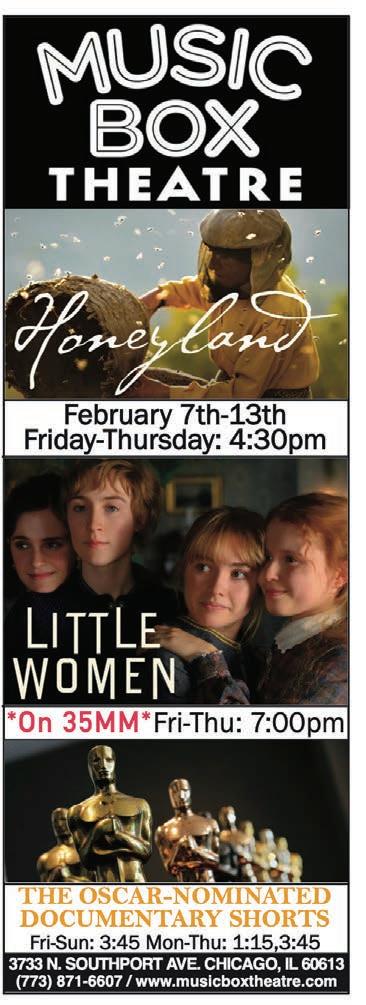
But I wasn’t worried about BoJack Horseman. As a longtime all-time favorite of mine, I had grown to trust the creators. Since the Netflix original premiered in 2014, almost every episode of BoJack has seemed to outdo its precursor. When the second half of season six dropped on January 31, I was ready for
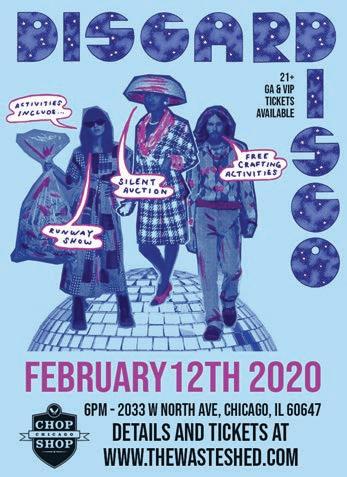
more mastery.
After the cli anger ending of “A Quick One, While He’s Away,” released back in October, I felt sure that the Penny Carson ordeal in New Mexico was going to be the final straw that broke the horse’s back. The real kicker, however, ends up being the death of Sarah Lynn. Don’t get me wrong: Penny’s still relevant. In fact, everything is relevant in these final episodes, everything bad BoJack’s ever done, everyone he’s ever hurt. We as viewers know the context for all that stuff. We’ve made allowances and tried to understand. But it’s clear that now, at the time of BoJack’s reckoning, no allowances will be made.
And so everything crumbles when BoJack is subject to two Biscuits Braxby interviews, the
first a formality and a recovery, the second a brutal #MeToo-era interrogation that dashes any hopes of the happy ending hinted at in previous scenes of post-rehab college professor BoJack. But maybe we weren’t hoping for a happy ending. Maybe we shouldn’t have been. Still, I found myself yelling at my TV when BoJack relapsed and went on his worst bender yet.
“The View from Halfway Down” is one of the best—potentially the best—episodes of the entire series. The “feature” episodes, which break from the traditional A-plot and B-plot formula of the show, have historically been the best of BoJack (I’m talking “Fish Out of Water,” “Free Churro,” etc.). From the moment the second-to-last episode began, I felt myself shift to the edge of my seat, palms sweaty and eyes afraid to blink. This episode was what I wanted and expected from the end of BoJack The details recalled from past seasons were exquisite, the pacing was exceptional, and refrains of numbers like “Don’t Stop Dancing” and the hauntingly catchy ditty from the “Time’s Arrow” episode reminded us of how truly tight-knit this story is.
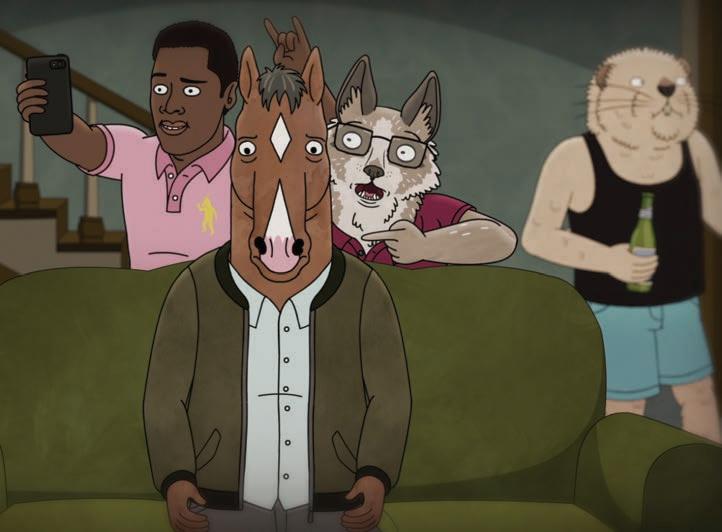
Still, BoJack Horseman outdid even the best of itself when it brought me to the verge of tears, the moment that Secretariat read out the lines, “But this is it, the deed is done / Silence drowns the sound / Before I leaped I should have seen the view from halfway down / No! I really should have thought / About the view from halfway down.” Suddenly, the epiphany hits: the opening credits that have played since the very first episode were showing BoJack halfway down, sinking in his pool the same way the show’s penultimate episode reveals his almost death, his reckoning, his delivery to justice.
BoJack’s death wouldn’t have felt like an easy out; sometimes that’s just how a story has to end, especially with such a complex and broken protagonist. But I’ve made peace with BoJack living on, guided by the growth of characters like Princess Carolyn and Diane, both happily married in the end (but, importantly, not in a “we married off the female leads” sort of way). He’s around to see the independence of Mr. Peanutbutter and the (relative) emotional maturity of Todd. He’s around to get sober again, and to hopefully stay that way. v
32 CHICAGO READER - FEBRUARY 6, 2020 ll FILM
Netflix satisfyingly sends off everyone’s favorite half-horse half-man.
Warning: This review contains spoilers for the final season of BoJack Horseman.
@itstarynallen
BoJack Horseman
FILM
NOW PLAYING







R Dying to Survive


Based on the real-life story of Lu Yong—a Chinese man who was unable to afford the medication for his leukemia and began smuggling a less-expensive version of it from India—Wen Muye’s social realist drama takes a familiar approach but is affecting nevertheless. Xu Zheng stars as the Lu Yong character; here he doesn’t have the disease himself but rather gets into prescription drug smuggling to make money and provide for his elderly father and young son. His motivations begin to change a er he assembles a group of accomplices (a mix of leukemia patients and people with sick relatives) and becomes close with them. The camaraderie within the group accounts for the film’s best scenes; they’re quite humorous at times, adding levity to the serious subject matter. Hugely successful in China (and a significant factor in recent drug cost reform), this isn’t an innovative piece of filmmaking, but it’s enjoyable and thought provoking. In English and subtitled Mandarin. —KATHLEEN SACHS 117 min. Sat 2/8, 7 PM. Chicago Filmmakers

R Foosballers

Most people think of foosball as a game that’s played casually in someone’s basement or the occasional dive bar, but for some it’s a way of life. Invented in Europe in the 1920s, foosball (or table soccer) was introduced to the U.S. in the 1950s, where it reached peak popularity in the 1970s before the rise of video games all

but decimated the industry. Joe Heslinga’s Foosballers explores that history and the fervent subculture that still surrounds the sport decades a er mainstream culture deemed it obsolete, while spotlighting a handful of elite players as they train for an upcoming tournament. Like any great subculture documentary, Foosballers is at its best while opening a window into the passion, dedication, and personal stories of its subjects. And though the film begins to get weighed down in all its details and minutiae, the intensity heightens as the players convene at the Tornado World Championships to compete for prize money and the chance to rank among the best foosball players on Earth. —JAMIE LUDWIG 96 min. Featuring a post-film Q&A with director Joe Heslinga and documentary subject and world champion foosball player Tony Spredeman. Tue 2/11, 7 PM. Music Box Theatre

R Honey Boy
The first five minutes of Honey Boy move so fast it’s almost dizzying. This seemingly autobiographical film written by and starring Shia LaBeouf follows the dysfunctional relationship between child star Otis (played by the wise-beyond-his-years Noah Jupe as a child and by indie-film-favorite Lucas Hedges as an adult) and his alcoholic father James (LaBeouf) over the course of a decade, told through flashbacks and dream sequences.

As a child, Otis is instantly lovable, but as a young adult, he’s a raging alcoholic whose sentence to a rehab center prompts many of the film’s most triggering flashbacks. Yet, in this movie there are no villains; despite James being the primary perpetrator of Otis’s suffering, he too

FEBRUARY 6, 2020 - CHICAGO READER 33
TRUEFALSE.ORG March 5–8, 2020 Columbia, MO a four-day celebration with nonfiction film, music, and immersive art TRUE/FALSE TRUE/FALSE film festfilm fest Dying to Survive R READER RECOMMENDED b ALL AGES N NEW F Never miss a show again. EARLY WARNINGS Find a concert, buy a ticket, and sign up to get advance notice of Chicago’s essential music shows at chicagoreader.com/early.
FILM
is a victim with a traumatic past that evokes more sympathy than disgust. Nevertheless, in Otis’s adult years we can see the scars from a childhood spent growing up too fast. LaBeouf is a tour de force, and his performance feels all the more poignant considering his own beginnings as a child star and later legal troubles. Chaotic in the best way possible, Honey Boy is as heartbreaking as it is gritty, unflinching in its portrayal of a complicated father-son relationship that leaves both parties—and the viewer—devastated. —NOËLLE D. LILLEY R, 95 min. Now playing at Gene Siskel Film Center
Sordo
Set in the waning days of World War II, Sordo tells the story of Anselmo Rojas (Asier Etxeandia), a fugitive Spanish revolutionary. He is forced to go on the run in northern Spain a er a failed sabotage attempt against the Francoist military dictatorship leaves him deaf. Taking clear inspiration from Sergio Leone westerns, writer-director Alfonso Cortés-Cavanillas attempts to dazzle us with some ni y gunslinging sequences and panoramic set locations in the film’s early stages, but by the second act the narrative collapses into absurdity. Anselmo is provided with ample opportunities to either escape or kill his pursuers, the majority of whom appear utterly inept in the basic use of strategy, but instead lingers around on the outskirts of town with no apparent mission. The novel plot development of Anselmo’s deafness adds a degree of tension to the proceedings, but ultimately the narrative is dragged down by its poor pacing and undeveloped characters—Darya Volkov
(Olimpia Melinte), a one-eyed Soviet mercenary sniper, plays a stock “bad gal” antagonist to Anselmo as she torments and, in one particularly disturbing scene, sexually assaults the local populace. In the end, Sordo leaves little to recommend besides over-glossy action sequences and picturesque Spanish countryside views.
—ADAM MULLINS-KHATIB 121 min. Streaming on Netflix


R 37 Seconds



Those tired of the incessant stream of sequels, reboots, and adaptations can look no further than 37 Seconds, a profound hidden gem from Japanese filmmaker Hikari. Yuma (Mei Kayama) is a 23-year-old manga artist with cerebral palsy searching for independence a er a lifetime of being hidden away from the world by her exploitative boss and her well-meaning but protective mother. A er an editor at an adult publication suggests she get more life experience, Yuma comes of age on her own terms without being sheltered and finds a sense of community along the way. 37 Seconds is quite unique, especially with its splices of animation and humor, but the most poignant moments examine the intersections of sex, agency, and disability with a refreshing sensitivity. It’s a rare film that understands disability as a complex part of its character’s understanding of themselves and the world around them, rather than a categorization to be swi ly demonized or fetishized. There are many moving parts in 37 Seconds, sometimes to its own detriment, but it is sure to be unlike anything you’ve ever seen—for the better. —CODY CORRALL 115 min. Streaming on Netflix v

34 CHICAGO READER - FEBRUARY 6, 2020 ll
Honey Boy
The Blue Groove Lounge crowd at Elbo Room in the late 1990s. The woman at center right is poet and singer Tina Howell, currently of the band Bumpus (and a former Reader employee).
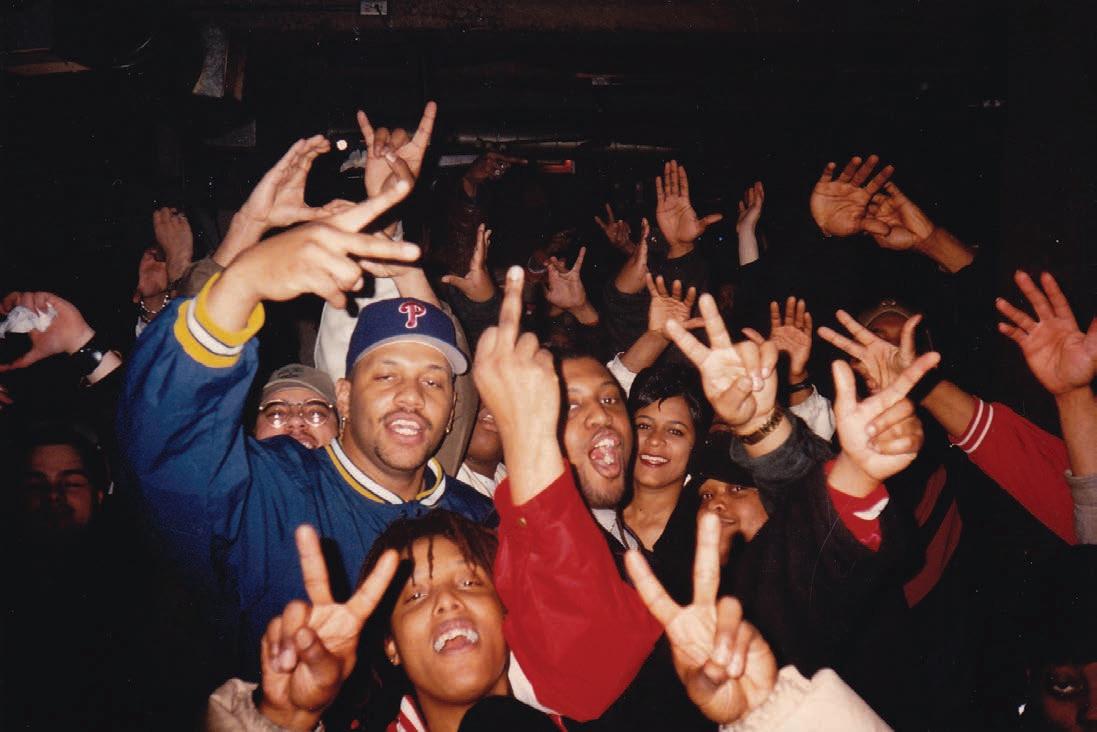
WINTER BLOCK PARTY 2020: WE THE PEOPLE
This daylong party features dance workshops and battles, DJ sets, face painting and live mural making, pop-up shops and galleries, and more. The bill for the evening concert, headliner first, is Mental Giants, Cash Era, Ang13, Brittney Carter, the Blue Groove Freestyle (with Alderman Andre Vasquez aka Prime, Anyi Ahlation, Semiratruth, Sam-I-Am, the Third, Meta Mo, Gq tha Teacha, and others), Pumpin’ Pete & DJ Nonstop, Add-2, Encyclopedia Brown, Jesse de la Peña, and hosts Dirty MF & Matt Muse. Sat 2/8, noon (concert at 6 PM), Metro, 3730 N. Clark, free, all-ages
BLUE GROOVE LOUNGE 25-YEAR REUNION
Featuring DJ Jesse de la Peña, DJ Pumpin’ Pete, and Tone B. Nimble, hosted by Dirty MF. Mon 2/10, 9 PM, Promontory, 5311 S. Lake Park Ave. West, $12, $10 in
Building on the pillars of Blue Groove Lounge
The history of DJ Jesse de la Peña’s foundational Chicago hip-hop series, in the words of the people who made it work.
By LEOR GALIL
Launched in 1994, Blue Groove Lounge wasn’t early enough to be Chicago’s first hip-hop series. Before DJ Jesse de la Peña started Blue Groove on Monday nights at Elbo Room, rapper- producer Kingdom Rock was hosting parties at Blue Gargoyle in Hyde Park; DJ and producer P-Lee Fresh ran a north-side hip-hop club called Steps; and MC and promoter Duro Wicks hosted two crucial series, first at Lizard Lounge in Wicker Park and then at Lower Links in Lakeview. De la Peña had even spun hip-hop during his stint as a Smart Bar resident. But no series catalyzed Chicago’s emerging 90s hip-hop scene quite like Blue Groove Lounge.
A scene veteran as well as a DJ for acid-jazz troupe Liquid Soul, de la Peña wanted Blue Groove to be a home base for hip-hop, because
precious few such spaces existed in the city.
Elbo Room’s multilevel space held only about 200 people, but eventually anyone who wanted to make or hear hip-hop in Chicago ended up there. So did big national players, including Missy Elliott, Wyclef Jean, and Cypress Hill.
Blue Groove got so popular that the line to get in would stretch down the block.
Unfortunately, dozens of Lakeview residents complained about after-hours noise outside Elbo Room, and in early 1998, the series got the boot. It moved briefly to Funky Buddha Lounge, then in August of that year to Double Door. Wicker Park was already a hub for the hip-hop scene and the like-minded poetry community—the neighborhood also played host to Afrocentric bookstore Lit-X, lifestyle boutique Triple X, and record store Beat
Parlor—and Blue Groove’s draw ballooned to fill the bigger space. Its time at Double Door ended in 2000, and in 2003—after the series moved from venue to venue for a couple years, concluding with a short run at the Blue Note— de la Peña put it to rest.
De la Peña has previously thrown one-off Blue Groove Lounge reunions to commemorate some of the series’s big anniversaries. This week he belatedly celebrates its 25th with two events. On Monday, February 10, former Blue Groove residents Pumpin’ Pete and Tone B. Nimble (cofounder of All Natural) will spin with de la Peña at Promontory; rapper Dirty MF (of Liquid Soul and hip-hop collective Elements of Nature, aka EONs) will host, as he did for most of Blue Groove’s run. And at Metro on Saturday, February 8, de la Peña turns the
annual Winter Block Party held by Vocalo and Young Chicago Authors into a multigenerational celebration of Blue Groove Lounge, showcasing series veterans alongside rising artists.
“The equivalent of Blue Groove Lounge today is really the work that YCA does with young people,” says Vocalo managing director Silvia Rivera. “Creating a space for them to test out material and really come together around the elements of hip-hop culture.” YCA artistic director Kevin Coval was a Blue Groove regular, and in August he pitched Rivera and de la Peña on the Blue Groove anniversary Block Party.
To understand what made de la Peña’s series so vital to the development of Chicago hip-hop, I reached out to rappers, DJs, produc-
FEBRUARY 6, 2020 - CHICAGO READER 35
“BIG LARRY” MONDRAGON
ers, and other scene figures who spent most if not all of their Monday nights at Blue Groove Lounge. Double Door closed in 2017; Elbo Room, which hasn’t been a significant center for hip-hop in decades, went up for sale last spring (according to a source at real estate broker Kamberos Associates, a deal is being negotiated). But while Blue Groove Lounge’s two longest-term homes aren’t what they once were, the community that it created in those spaces continues to reverberate throughout Chicago’s music scenes and beyond.
CAST OF CHARACTERS
ANG13 Rapper
KEVIN COVAL
JESSE DE LA PEÑA
DIRTY MF
JUICE Rapper and freestyler
DAVID “CAP D” KELLY All Natural rapper, chief legal officer (business and basketball) for the Golden State Warriors
IOMOS MARAD Rapper-drummer, All Natural Inc. affiliate
DJ NONSTOP Heavy Hitters collective member, DJ for DMX and 104.3 Jams
GRAVITY Rapper, EONs member, also goes by “Grav”
“COOLOUT CHRIS” HAWKINS Rapperproducer for the group Spalaney’s, EONs member, cofounder of the organizations Chicago Hip-Hop Initiative and Urbanized Music, spouse of Amina Norman-Hawkins
“BIG LARRY” MONDRAGON Blue Groove Lounge door man, promoter
AMINA NORMAN-HAWKINS Cofounder of the organizations Chicago HipHop Initiative and Urbanized Music, spouse of “Coolout Chris” Hawkins
PANIK Producer, Molemen cofounder
PUMPIN’ PETE
RHYMEFEST Rapper, actor, executive director for Art of Culture Inc.
MARIO SMITH Poet, educator, activist, Lumpen Radio personality
DURO WICKS
JESSE DE LA PEÑA Chicago was definitely a house-music city, and doing hip-hop wasn’t an easy task.
“BIG LARRY” MONDRAGON Jesse had a store called the Yard, and I used to run the store for him, ’cause he was DJing, doing other projects. I remember him kicking the idea: “I want to do this night, I want to do open mikes, have guys battle. We’ll have hip-hop DJs.” Clubs weren’t playing hip-hop.
JESSE DE LA PEÑA My buddy Tommy Kline, who’s one of the founding members of Liquid Soul, he had a friend that was managing Elbo Room. We went there and met with John Litz, the guy that was managing. They were closing the restaurant, and they were gonna do strictly music. We got in the door through doing the acid-jazz thing. Once that was a success, I was able to talk ’em into doing a Monday-night hip-hop party.
JUICE It took a lot of guts to convince these owners of these buildings that we belonged in there, doing this kind of music on a consistent basis.
PUMPIN’ PETE I get the call from Jesse: “I’m doing this night on a Monday, it’s something completely different for the city of Chicago. It’s all hip-hop—it’s right up your alley.” We forged our friendship in the basement of the Elbo Room.
JESSE DE LA PEÑA Nobody was doing a party, especially a hip-hop party, on a Monday night—that’s the only time we could get the venue, ’cause it was a super-slow night.
COOLOUT CHRIS You go up the steps, and they have this little lounge area—you’re like, “This is cool, it’s like a neighborhood bar.” But then shit changes when you go downstairs, and it’s like an underworld—everything is dark. You can barely see anything. There’s these poles and stuff that are down there, so if you’re not paying attention, you will run into one.
ANG13 Going down the steps is what made it exciting, because you didn’t know who was gonna be at the bottom of those steps. And watching people come down the steps, it was like watching stars walk in.
DURO WICKS The basement atmosphere really took it back to the whole Lower Links thing, ’cause Lower Links was also in a basement club.
ANG13 A lot of the hip-hop parties back in the day used to be basement parties in someone’s house, but this was a basement party in a club.
GRAVITY If you want to have a drink upstairs, take a break, holla at somebody ’cause you can’t hear shit downstairs, then you can go back to your getaway world down in the basement, where it was fuckin’ jumpin’.
JUICE It was quaint. It was demure. It was cozy. It had these blue lights all along the
walls of it. It was like a cave, and on the sides of the cave, you had to duck. You can watch it from the couches, but if you want to be in the action, you weren’t any more than 50 to 60 feet away from the stage at any time.
RHYMEFEST Geometrically, the way that thing is shaped for the music part lets you know that you have come to see a live show. It really empowered the person on the stage to be able to be in the crowd. And then the crowd feels like they’re part of the performance as well.
PUMPIN’ PETE Jesse had this scent aesthetic he had to set. Every Monday night, it wouldn’t be uncommon to see incense sticking out of walls, all over, in the basement. He’s trying to hit all the senses. He would have a projector that would be playing vintage graffiti or Beat Street, Krush Groove. Even on the bar, there’d be coasters that were hip-hop, lounge, jazz, or spoken-word related.
JESSE DE LA PEÑA It was mainly a gathering of artist friends, whether they’d be live performers, visual artists or spray-can artists, or dancers.
AMINA NORMAN-HAWKINS He had the vision for what hip-hop was intended for— building community, young people having their own space, the DJ being the anchor of this platform for artists. He did something at that time that I hadn’t seen anyone else doing.
GRAVITY I was coming from New York—from growing up in the middle of hip-hop, and watching it come to fruition, and then moving to Chicago when I did, you weren’t really sure what you were gonna run into. And then that place reassured me that the culture was strong.
JUICE It was a hotbed for artistic expression. It was like Chicago’s Harlem.
KEVIN COVAL I remember, when I first went to it, feeling like it was home.
AMINA NORMAN-HAWKINS Elbo Room was official. It was in a legit establishment. It wasn’t in a neighborhood that we typically hung out in.
JESSE DE LA PEÑA We were on the north side, but we were seeing people from the west side, from the south side, from the suburbs.
COOLOUT CHRIS I was the dude out of the group that always had the car, so I was respon-
sible for picking everybody up and dropping everybody off. For three months straight, I would always get lost on my way going home a er leaving Elbo. I would make some weird turn, these guys, they’d be drunk, asleep in the back of the car. I’m stopping off at a gas station—like, “How do you get back to 94?”
MARIO SMITH Jesse’s the one who invited me to come to Blue Groove—I’m from the south side; I didn’t know where the Elbo Room was. I had just figured out where Milwaukee, North, and Damen was, and I had just started getting comfortable being in that environment.
KEVIN COVAL In a hypersegregated city, you could interact with people who came from different parts of the city, and build an all-city allegiance.
JESSE DE LA PEÑA SPO from the group Rubberoom was my first host. It was kind of word of mouth—reaching out to friends, other graffiti artists, other DJs.
“BIG LARRY” MONDRAGON We would charge three bucks to get in.
MARIO SMITH I think Jesse let me in for free the first time, which never happened again, ha ha.
JESSE DE LA PEÑA The early hip-hop parties in Chicago were a bunch of dudes hanging out—somebody would be there with their girlfriend, but it was pretty much an all-guys party.
“BIG LARRY” MONDRAGON I was like, “Why don’t we just do ‘Ladies free all night?’” If the ladies come in for free, the guys are gonna come—and they’re gonna pay.
JESSE DE LA PEÑA Big Larry, Larry Mondragon, started working the door. He always had a good network of people he’d invite out. We started seeing a clientele that appreciated hip-hop, and we were starting to see ladies come out, and that was unheard of at hip-hop parties.
DIRTY MF All of the sudden there were girls. That’s how we knew, “Oh, something’s happening here.”
AMINA NORMAN-HAWKINS I came from a whole different artistic part of the city, and through some friends found out that there was this, it felt like, secret place that all the heads went to hang out.
36 CHICAGO READER - FEBRUARY 6, 2020 ll
COOLOUT CHRIS Blue Groove—it was, “What time you gonna get up there?” It wasn’t, “Were you coming or not?” I’d seen people come up there with crutches.
AMINA NORMAN-HAWKINS It was the thing we all did on Mondays. It was like church.
KEVIN COVAL If you were a hip-hop kid, you were hungry to find other people—particularly in the city of house—that had a similar penchant for breaks, and wanted to see some of the emerging culture around it. The Elbo Room was the bat signal for a lot of us.
GRAVITY You had the breakdancers there, you had the rappers there, you had the producers there, you had cats that got down on graf there. It was a place to really soak up that energy and deal with it as you saw fit.
DIRTY MF The main thing I remember is being in a room with a bunch of people that I didn’t know who loved the same thing.
COOLOUT CHRIS It opened up an oasis for a lot of people to really network.
“BIG LARRY” MONDRAGON A lot of people there would come—you have Rubberoom, you have Duro with his group, He Who Walks Three Ways.




PANIK When I heard that there was a hiphop function there, me, PNS, and some other Molemen, we’d go there to hang out.

COOLOUT CHRIS I actually met my wife there.
AMINA NORMAN-HAWKINS He was like, “I hear you do graphics, would you make me a J-card?” And I’m like, “Yeah, Chris, I got you, no problem.” I had no idea what a J-card was.
JESSE DE LA PEÑA SPO introduced me to Dirty, and he started cohosting—he was a really great freestyler.

JUICE I was cool with Dirty MF—he asked me to come there and told me it was an open mike. From the time I went, I was stuck on it.
PUMPIN’ PETE I met Crucial Conflict, I met members of Molemen. Ang13, Akbar, Mental Giants, D 2 tha S, East of the Rock. I could go on.

DURO WICKS I remember seeing Infamous Syndicate at the Elbo Room and thinking Shawnna was one of the most real MCs I’ve

ever seen.
MARIO SMITH Back then Ill State Assassins— super big crew—they were there all the time, so you got to meet those dudes. As menacing as they’d come off, they were some of the nicest men and women you’d ever meet.
CAP D You could be conscious, you could be gritty, you could be more on the commercial tip—whatever it was, it didn’t really matter, you could be at Blue Groove and hear something that you wanted to hear and fit in.
AMINA NORMAN-HAWKINS There were some familiar faces I knew from Wicker Park— that’s where kids came to make underground art.
MARIO SMITH People like Timbuck2 would fall through—Tim wasn’t old enough to be in that place.
KEVIN COVAL I was still too young to go to clubs. I got a fake ID to go to the Elbo Room— which is illegal, by the way.
COOLOUT CHRIS There was a little door on the side that people would sneak in.
GRAVITY I remember sneaking Kanye in for the first time.
CAP D When it was at the Elbo Room, it was so vital to what we were doing as All Natural— we had our release party there, either for our 12-inch or for our album.

JESSE DE LA PEÑA A year in, maybe not even that long, we started seeing some more regular clientele.
PANIK During the golden era of Chicago hiphop, that was the place to be. Imagine your favorite rappers from that time, your favorite artists, your favorite DJs, graffiti writers—they used to hang out there.
GRAVITY It was a surefire place to hang—it was like hip-hop Cheers on crack.
PUMPIN’ PETE I almost felt like it was me being accepted into that elite club of underground hip-hop enthusiasts, and it was being cosigned by all those people. To be able to play hip-hop for them and keep them in the room was an honor for me.
JUICE Our culture primarily was predicated on east-coast lyricism, coordinated performances, dancing, chants in the background— the




FEBRUARY 6, 2020 - CHICAGO READER 37
promontory | 5311 s. lake park w. drive chicago | promontorychicago.com
DEVIN THE DUDE
JDLP PRESENTS “BLUE GROOVE LOUNGE 25 YEAR REUNION” 2020 CELEBRITY ALL-STAR WEEKEND DAY PARTY feb 10 HANDSOME STRANGERS FEB 28 FEB 20 FEB 21 EMMALINE KAHIL EL’ZABAR’S ETHNIC HERITAGE ENSEMBLE PHAROAHE MONCH SILENT PARTY CHICAGO “JUKE JAM” FEB 12 URBAN FÊTES PRESENTS SILENT FAMILY FUN DAY WE LOVE WEDNESDAYS PRIMETIME: THE ULTIMATE ALLSTAR WEEKEND feb 08 feb 12 feb 15 FLI NATION PRESENTS HOMIE LOVER FRIENDS COME FLY WITH ME: ALL-STAR SUN•DAY PARTY HYDE PARK HANDMADE “THE GOAT ERA” FEAT. 9TH WONDER EVERYONE LOVES ALLSTAR: AFROBEATS EDITION MAMBO MAYHEM: SOUTH SIDE SALSA THINGS I NEVER SAID FEAT. K LOVE feb 07 feb 08 feb 16 feb 09 feb 14 feb 15 feb 16 feb 17 AFROTRAK PRESENTS LUKE JAMES FEB 14 JOEL ROSS FEB 19 BODY, EVERY SUNDAY 2~8 CHARLIE COFFEEN PRESENTS J DILLA DONUTS 2~14 COLORS WORLDWIDE PRESENTS R&B ONLY 3~1 THE MUSIC OF PHISH FOR KIDS 2~9 THE MUSIC OF THE BEATLES FOR KIDS 2~16 WOLF PARADE 3~1 DESTROYER 2~11 METRONOMY 2~22 TODD BARRY 3~2 JOSH THOMAS 2~12 CHICAGO HUMANITIES FESTIVAL PRESENTS HIGH FIDELITY 2~23 UPPERS & DOWNERS 3~3 FLY FISHING FILM TOUR 2020 2~13 HANNIBAL BURESS & LIL REL LIVE 2~26 YETI FILM TOUR 3~6 THEO KATZMAN THALIA HALL | 1807 S. ALLPORT ST. PILSEN, USA | THALIAHALLCHICAGO.COM 2~15 2~28 2~18 3~5 2~21 3~18 DRAG PROM RADICAL FACE axel óvent AMERICAN AUTHORS & MAGIC GIANT BLACK LIPS poppy jean crawford & les strychnine AMERICAN NIGHTMARE ceremony
LEO
DAN
all that. But I think having the Blue Groove allowed people to experience their own identity and individuality, and stop relying on New York’s history because we realized we were creating our own.
DJ NONSTOP To get to a place, and there was girls with Afros and people were just dancing by themselves—that was everything I wanted and didn’t think I would find. It just so happened that two of my closest DJ friends were the ones that set the vibe.
MARIO SMITH To see Jesse spin, Pumpin’ Pete—it was the weirdest yet most beautiful thing. It was more of an extension, for me, of Lit-X—of the Another Level open mike at Literary Explosion—than I anticipated.
DJ NONSTOP Being in that environment with Jesse and Pete, every week I was trying to get better, because they were so good and they were always getting better.
COOLOUT CHRIS Jesse had a reputation as a DJ who’s gonna play only the hot stuff.
MARIO SMITH He’s a really good DJ. He’s got a lot of dexterity, so he can cut really, really well. His blends were really good, and he knew all the music he was playing. He used to carry a lot of vinyl—a dumbass amount of vinyl.
JUICE I never knew that Jesse encompassed multiple genres until I went to his house and saw his record collection, and I was like, “Oh, you really do this.” It’s even more of a noble deed that, through all the genres that he knew, he was focused on promoting real live hip-hop at this venue.
RHYMEFEST Jesse de la Peña could blend things together and awaken you to whole new genres of music by showing you the similarities in all music.
DIRTY MF He was playing all this other music—at the end of the night, he would play a Björk remix, and people 25 years later still post that song on my page.
DJ NONSTOP In the beginning, it was like, “Don’t pay me, I’m just coming here to DJ.” We didn’t work for the money, we worked for the vibe—Monday was like a weekend for me. It was a place where I could flex, it was a place where I could polish my skills, where I could do the things I’d been doing on the road and people would appreciate it. It set a different tone, and it catapulted my career. Had I not had that, maybe I wouldn’t have kept DJing.
DIRTY MF Music came out differently back then. Jesse, Pumpin’ Pete, DJ Nonstop, 33 1/3, these DJs would break records back then. We
would hear all the new stuff at that spot on that night, because it wasn’t on the radio.
AMINA NORMAN-HAWKINS Most of the songs that I was hearing at Blue Groove, quite possibly it was the first time I was ever hearing them, because it was underground—the only hip-hop that I’d really been exposed to was commercial. That was probably the biggest revelation for me.
GRAVITY The performance aspect was a big deal. All of us performed there at some point in time, whether we were freestyling or had scheduled performances.
RHYMEFEST They had rap battles. Every week you’re onstage, and do the open mike, and be a part of the MC battle, and you were safe. I can’t express enough: it was a safe space, for artists and for performers.
ANG13 Me and Dirty got into it on the mike, and it didn’t end very well for me. Good thing I had already made a name for myself before that incident happened! Somebody wanted me to rap, as opposed to Dirty, and I said, “Hey man, the people have spoken.” I should’ve never said that, because he took that as a challenge. I have been in plenty of battles in my life—plenty. That was the most embarrassing, because that was the only one I really lost.
DIRTY MF She always says that! I cannot remember a night where Ang did not do well. That does not fly with me, so I cannot cosign that.
ANG13 Everybody was treated like a star. If you had skills, you were treated like you were already signed, you had millions of dollars— you were treated like royalty.
JESSE DE LA PEÑA We would get into the open mike early; if we didn’t have ten signups, we wouldn’t do it. Everybody signed up, if you paid to get in—I think the winner got a hundred dollars. We did ten MCs, and it was crowd-judged. We had our security guy Bruno the Enforcer, who worked the open mike with Dirty, and if you weren’t cuttin’ it, he’s gonna take the mike from you.
MARIO SMITH Dirty is a showman and a bit of a magician too. He would rap with a drink in his hand, and you could smoke back then— he would have a drink in his hand, and he wouldn’t spill the drink, and he wouldn’t ash whatever he was smoking. He would do a whole set by himself, freestyling.
DIRTY MF Even the open mike was a party, because they would play the right beats—people could still bop to it.
DJ NONSTOP Doing open-mike nights, where I was playing instrumentals for MCs, is single- handedly why I got the job to work with DMX. When I was asked in 2003 to DJ for DMX ’cause he didn’t have a DJ with him, I did exactly what I used to do—he gave me a job the next day, and I’ve been with him for 16 years. Everybody asked me, “What’d you do?” I said, “I just did what I used to do at Double Door, at Elbo Room—how we used to make the MC shine.”
CAP D That was at a time when I thought I could kick a freestyle as dope as anybody, and there were some dope freestyle acts in Chicago. You had Juice, Rhymefest, Steady Serv. It was a place where you could see how dope you really were, get up there with the best people in the city who went on to be the best freestyle artists, period.
COOLOUT CHRIS It’s not easy to get up there onstage and do your thing. You’re doing your show, and there’s ten dudes sitting right in the front with their arms folded—they’re looking at you like you better come with it.
MARIO SMITH If you got onstage at Blue Groove and you sucked, that would probably be your last time onstage in Chicago, because everybody was there. It wasn’t just fans and artists—there were promoters.
“BIG LARRY” MONDRAGON I would tell guys, “If you feel like you want to get up there and rhyme and think you can, then go ahead, more power to you. But don’t get upset if somebody throws a water bottle at you and they start booing.”
JUICE It established a pecking order in the city. Common would come there—everyone would come there and study what we did, what this freestyle thing was.
PUMPIN’ PETE It was intimidating as can be, getting on that stage to spit lyrics, because those were our hip-hop gatekeepers. I just think it really did a lot to push forward the quality of hip-hop that was coming out of Chicago.
RHYMEFEST It prepared me for competitions like Scribble Jam, where I had to battle Eminem. It prepared me for being onstage, and when things don’t go right, how are you gonna freestyle your way out of it?
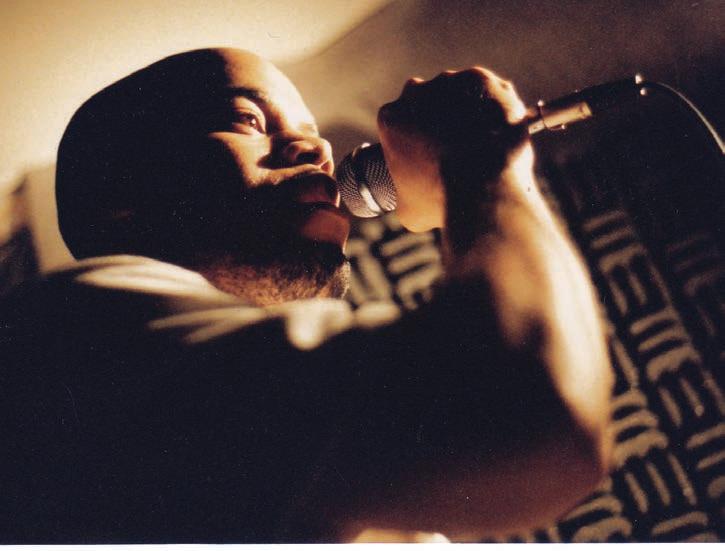
38 CHICAGO READER - FEBRUARY 6, 2020 ll
Akbar of Chicago hip-hop duo Mental Giants in the mid-90s. The Mental Giants frequently came to Blue Groove Lounge, and they headline this week’s Winter Block Party at Metro honoring the series’s 25th anniversary. ROBERT BENAVIDES
JUICE That gave me the confidence to go anywhere. It also made me go, “I want a little more than this,” because when I saw that the rap stuff could make money—I never saw us like N.W.A or Tribe—it started to make me think we could actually be artists, and maybe I should make records.
RHYMEFEST Juice and I did a song called “How We Chill Pt. 2” that was the beginning of me releasing music—me and Juice just went crazy on that song, and it came out of us freestyling and getting reactions rapping together at the Elbo Room.
JUICE Me and him, we forged a whole different relationship based on that—it was a friendly but bitter rivalry to be considered the best. It was extremely healthy, and it was volatile at times, but I don’t think at any time did he lose respect for me as a lyricist, and at no time did I lose respect for him as a lyricist or a person.
COOLOUT CHRIS I remember a show with Spalaney’s one time—we were doing a song called “Switchblade,” and Riff-Raff pulled out a sword onstage and started swinging it like he’s a samurai. We all look at him, like, “Dude, where did you get this from?”



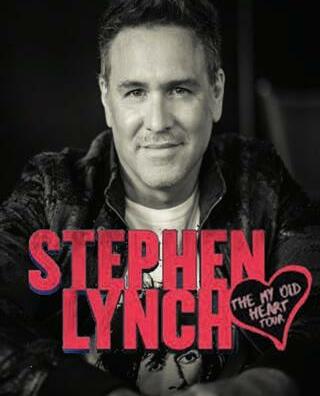
JUICE Blue Groove was what catapulted me, because for some reason they were able to pull in high-profile people to a small club.

JESSE DE LA PEÑA We had a relationship with some of the record promoters, like Ch’rewd Marketing and On the Street Promotions.
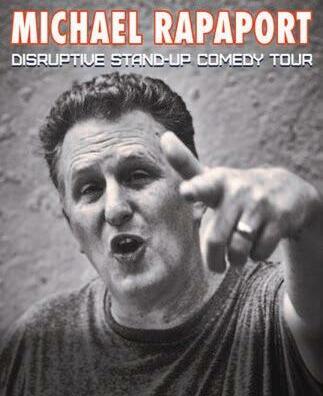

“BIG LARRY” MONDRAGON I started working for Ch’rewd Marketing—we were street teams for major record labels, like Bad Boy, Columbia, Priority. My job was retail and radio, so I would take artists to record-store signings—if I can get them to come on a Monday, I’d be like, “Hey, I do this hip-hop night, you guys should come by.”
ANG13 We prepared for the unexpected. We’re all inside the Elbo Room, all of the sudden, Fat Joe shows up.
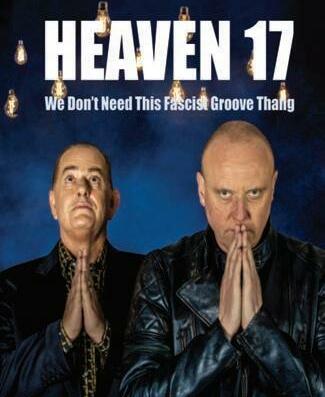


JESSE DE LA PEÑA We were fortunate to have a venue to do shows with Common and the Beatnuts, and have Missy Elliott stop by, Da Brat, and Fat Joe, guys like that.
COOLOUT CHRIS Fat Joe actually bumrushed the stage during Common’s release party for Caught in the Middle magazine,
FEBRUARY 6, 2020 - CHICAGO READER 39
® ® BUY TICKETS AT Friday May 8 Park West On Sale This Friday at 10am! SPECIAL GUESTS MARK HAYES Saturday, Feb. 29 • Vic Theatre Saturday, April 4 • Park West
where Common had had his first cover—Fat Joe bum-rushed the stage, started throwing out all this fake money that had his face on it. People were heated.
JESSE DE LA PEÑA I met Cypress Hill around that time—B-Real would always stop by when he was in town.
COOLOUT CHRIS Elbo Room allowed us to connect with people like Tha Alkaholiks.
“BIG LARRY” MONDRAGON We had performances from the guys from Minneapolis, Atmosphere—that was through a friend of ours named Jay Bird. Whenever they came through, they always had a packed house.
JESSE DE LA PEÑA When the Lost Boyz were just coming out, they did some promotional shows.
“BIG LARRY” MONDRAGON I would say maybe halfway through the first song—it might’ve been toward the end of the song— they got booed off the stage, because they didn’t have their show together. It was terrible. A year later, they blew up and they became who they were.
PUMPIN’ PETE Random people would just show up out of nowhere. John Cusack was a regular.
DIRTY MF One night Missy, Wyclef, and Da Brat just walked in at the same time, and Wyclef ended up hosting the party with me.
JUICE You would get Digable Planets—I would be able to rap onstage with these people, and I think it showed people that I belonged at that level. That’s when I started taking off.
JESSE DE LA PEÑA Even if we didn’t have a big artist, and even if we didn’t have a specific show planned, just the MCs hosting, Dirty and SPO, and Ang would get up, and Juice—that was a show in itself.
AMINA NORMAN-HAWKINS These were my people who I hung out with on a regular basis, but when we were here at Elbo they took the spotlight.
KEVIN COVAL For years, it was a really important part of my week, an important part of my cultural calendar, and the cultural fabric of the city.
ANG13 I had a regular job that I had to report
to every day. What Jesse did with those Monday nights is he extended your weekend, for years—it never ended on Sunday. We were all up, we didn’t have a care in the world. I know I made it to work every single Tuesday on time.
AMINA NORMAN-HAWKINS I could come here and kick it and then, you know, go home, sleep for two hours, and then try to make it to work the next day by eight or nine o’clock. I felt like an adult.
JUICE I had a job at the time and had to work at seven. I didn’t care. That shit was over at two o’clock. We stood out there another hour freestyling, cyphering. I didn’t have a car. I didn’t care. I made it home. I made it to work.
JESSE DE LA PEÑA All the condos went up; we knew our days were numbered. Ownership was new, and we didn’t have that relationship that we had with John Litz. We were on pins and needles—we were like, “We know this is only gonna last so long.”
DIRTY MF Elbo Room was kinda compact. It started spilling out, people were hanging out outside—back then, that’s when you knew you were doing well.
JESSE DE LA PEÑA When it’s after two in the morning and you’re smoking, urinating, blasting music right in front of somebody’s million-dollar condo, it’s obvious that it’s not gonna play out well.
Once we moved to Double Door, a er having to leave Elbo Room, that put us on another level. It was a bigger stage and we could hold more people.
“BIG LARRY” MONDRAGON Going to Wicker Park just gave it a bigger audience.
ANG13 People just kept following him, because they knew the type of crowd he brings in and knew the quality music he played.
DIRTY MF People were driving from Wisconsin, Iowa, Michigan, Indiana.
DJ NONSTOP We had Twilite Tone DJ. There was plenty of guest DJs that came through.
IOMOS MARAD Tone B. Nimble was a resident DJ for Blue Groove Lounge, and he saw me perform, and then I ultimately got connected with them. That’s how I became a part of All Natural.
DURO WICKS They were upstairs and they
had the basement, and the basement became a whole separate party from what was going on upstairs with the stage—I would come down every other Monday and spin dusties.
PUMPIN’ PETE It wouldn’t be uncommon to have PNS of the Molemen playing hip-hop downstairs too, for a more loungy Elbo Roomtype feel.
JESSE DE LA PEÑA I think we went from two or three bucks to five bucks, and then we went to seven, and that was kind of a big deal. But if you really wanted to come, you could come early and get in free.
MARIO SMITH The vibe didn’t change that much. The acts got even bigger; more famous people would show up.
IOMOS MARAD I remember opening up for a Rawkus artist—I think it was High & Mighty.
JESSE DE LA PEÑA We did a promotional show with 50 Cent. This is when he was on Columbia—before he signed with Dre. I forget what the tune was, but he did it twice: once with his shirt off and once with his shirt on.
“BIG LARRY” MONDRAGON We had Redman there, we had Shyne—that was one of my favorite performances.
JESSE DE LA PEÑA We did the Like Water for Chocolate record-release party with Common.
IOMOS MARAD Timbuck2 used to come there all the time. We used to open up the space, create this circle, and we’d all get to breakdancing.
MARIO SMITH Cap D was battling somebody—he literally killed this man onstage at Double Door.
CAP D [Laughs.] It may have happened, I don’t know.
MARIO SMITH Cap had on a polo and some khakis. He got up there and he looked like he never rapped a day in his life, and he eviscerated this person.
JESSE DE LA PEÑA Sometimes we came out on top, other times we ended up losing financially, and that was all throughout Blue Groove. Blue Groove was never a huge moneymaking opportunity.
PUMPIN’ PETE A lot of people were getting married, having kids. They didn’t have a
tremendous amount of time to come out and support Blue Groove Lounge.
AMINA NORMAN-HAWKINS We started a family and just didn’t have the liberty.
“BIG LARRY” MONDRAGON There was other nights popping up—it spreads your audience out. When you’re used to getting 200, 300 people, and now you’re down to 150 people or 50 people, is it worth doing it?
DURO WICKS Everything was collapsing. Lit-X was closing, Beat Parlor was closing. It seemed like everything closed on the same day, in my memory. Wicker Park—our Wicker Park—just died.
PUMPIN’ PETE Michael Jordan knew when it was time to retire, and I think Jesse knew when it was time to retire Blue Groove Lounge. He did it with the utmost professionalism.
JESSE DE LA PEÑA It made sense to put it to bed. We had a nice little run.
DIRTY MF It crushed me. I had my own stuff going on—that might’ve been one of the highest points of my career—but it sucked, because Blue Groove was my everything. It was how I started, it’s how I found myself as an MC. I became a man through this whole thing.
CAP D We talk about hip-hop culture and all that kind of stuff—to have a culture, you first gotta have a community. Blue Groove was Chicago as hell, and it helped create the culture.
JESSE DE LA PEÑA When people think about Chicago and hip-hop and some of the newer artists, I don’t really think any of that would be possible without some of the early parties and nights and people who contributed.
KEVIN COVAL It’s part of the reason why we do WordPlay every Tuesday at Young Chicago Authors.
AMINA NORMAN-HAWKINS It was just vital to those early eras and early times of Chicago hip-hop, where we’re all finding our voice, developing our brands, and promoting our groups, and needing a place that would support us.
JUICE I think it galvanized us. It made us know we are community, and we know our shit is dope. v
@imLeor
40 CHICAGO READER - FEBRUARY 6, 2020 ll



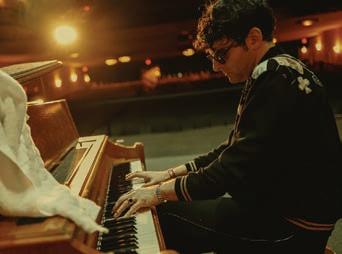


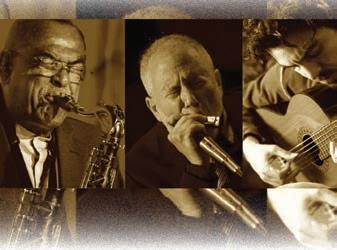
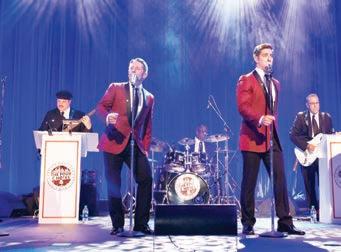
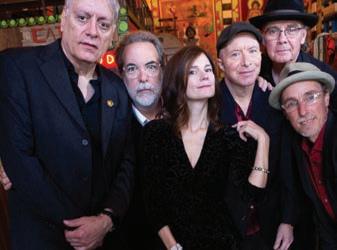
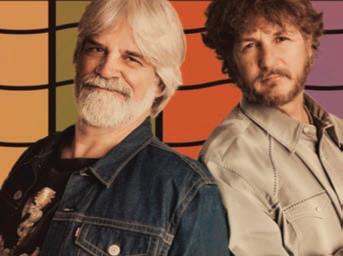

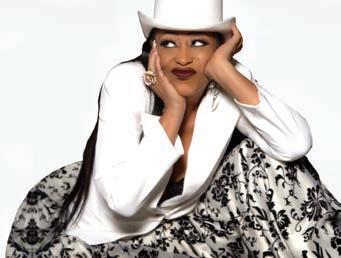


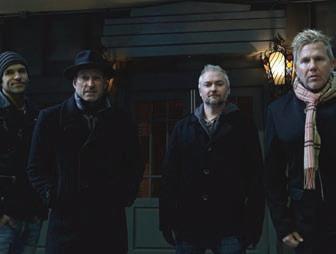





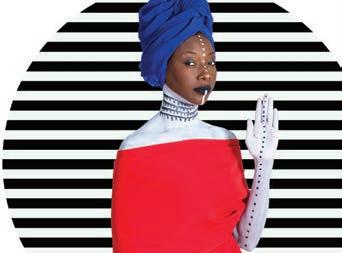





FEBRUARY 6, 2020 - CHICAGO READER 41 1200 W RANDOLPH ST, CHICAGO, IL 60607 | 312.733.WINELIVE MUSIC IN URBAN WINE COUNTRY feb feb Drew Emmitt & Vince Herman of Leftover Salmon Miki Howard MIKI SINGS BILLIE FEAT. ALLYSON WILLIAMS mar 291 11 CORKY SIEGEL’S CHAMBER BLUES FEAT. ERNIE WATTS & GORAN IVANOVIC febfeb feb feb feb feb feb feb FEB feb feb feb feb feb mar DONAVON FRANKENREITER WITH CHRISTINA HOLMES KEITH WASHINGTON ANDREA GIBSON RIGHT NOW, I LOVE YOU FOREVER FATOUMATA DIAWARA Raul Midón and Lionel Loueke Marquis Hill Merit School of Music Benefit The Manhattan Transfer ADAM WEINER OF LOW CUT CONNIE WITH CHASTITY BROWN CHICAGO PHILHARMONIC BRUNCH IN THE REALM OF SENSES feb feb Freddy Jones Band with Brett Wiscons Chi-Town Sings: British Invasion 12 23 + 24 1616 17 18 19 20 21 22 25 26 27 9 10 1315 2 Miki Howard feat. Donna Allen The Four C Notes FRANKIE VALLI & THE FOUR SEASONS TRIBUTE 10,000 Maniacs Ryan Montbleau PATRIZIO BUANNE THE MYSTICK KREWE OF LAFF MARDI GRAS BASH FEAT. BONERAMA & BIG SHOULDERS BRASS BAND
CHICAGO R&B ARTIST Hxry got his start as a producer—at least as far back as 2016, he was releasing stylistically scattershot instrumental tracks on Soundcloud—but he got his first real taste of success as a vocalist, with his 2018 song “Reasons.” Atop a fluttering synth melody and a suave, minimal rhythm section, Hxry gently sings sweet nothings in a watery, processed voice, occasionally blurring his words even as he crystallizes his romantic intentions. Hxry’s following ballooned after “Reasons” landed on popular YouTube channel Majestic Casual, which focuses on chill R&B and hip-hop. On his self-released debut EP, January’s Piece of Mind, Hxry uses artfully clanking percussion and glistening, elastic synths to prop up his singing, though he’s also clearly gaining confidence. On “Mr. Freeze,” the way his voice saunters over the neosoul instrumental makes him sound just as cool as the guy in the title.
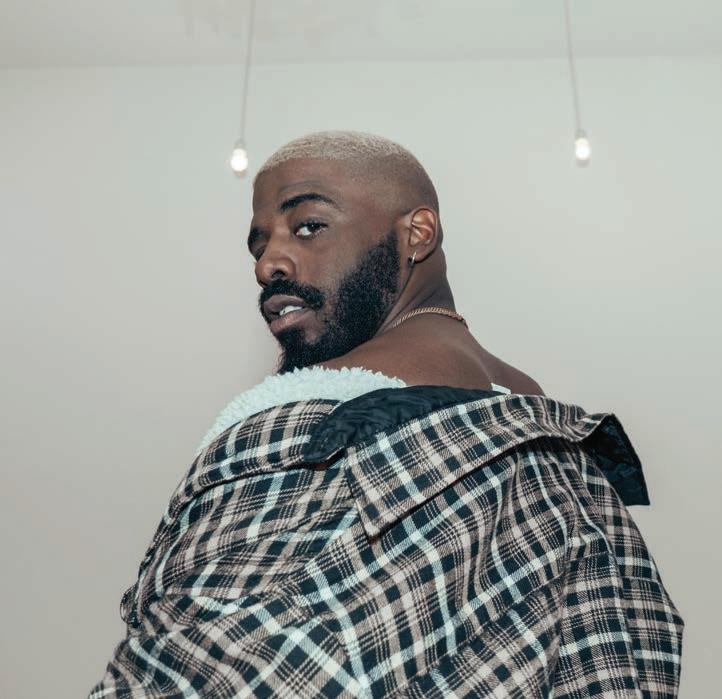 GALIL
GALIL

THURSDAY6
Sandy Ewen A quartet of Sandy Ewen, Josh Berman, Jason Stein, and Damon Smith headlines; Ewen opens with a solo set. 9 PM, Elastic, 3429 W. Diversey, second floor, $10. b
Ever since guitarist Sandy Ewen moved from Texas to New York City in 2017, she’s been a prolific performer, both at conventional venues (Bushwick Public House, Downtown Music Gallery) and at house shows. Sometimes she’ll gig more than once a day, improvising with the likes of Stephen Gauci, Daniel Carter, Maria Chavez, and Michael Vatcher. Ewen eschews traditional playing methods and technological enhancements, including effect pedals, in favor of a tactile, action-oriented approach to the electric guitar. She applies railroad spikes, screwdrivers, lengths of chalk, and other objects to the instrument’s strings and surface, drawing out a rich variety of disintegrating, elongated, and frictional sonorities. In her solo performances, Ewen patiently builds and resolves tension by exploring these materials at length, but she’s also eager and motivated to see what happens when she mixes it up with other musicians. Ewen is a great listener and imaginative respondent: on Idiomatic (ugEXPLODE), her 2018 CD release with drummer Weasel Walter, she adroitly matches the speed and dynamics of her collaborator’s lightning attack, just as she complements the corrosive rumble of Lisa Cameron’s lap steel guitar and percussion on the 2018 tape See Creatures (Astral Spirits). She tends to play close to home, so while she performs incessantly, she hasn’t done so in Chicago all that often. During this visit, Ewen will play two sets. The first will be solo, and the second will be in a quartet that will reunite her with a frequent associate, bassist Damon Smith, and confront her with two Chicagoans she’s never encountered before: cornetist Josh Berman and bass clarinetist Jason Stein. —BILL MEYER
HXRY See Pick of the Week at le . 7 PM, Subterranean, 2011 W. North, $15. 17+
FRIDAY7
Kahil El’Zabar’s Ethnic Heritage Ensemble 7 PM, SPACE, 1245 Chicago Ave., Evanston, $18-$26. b
Prolific musician Kahil El’Zabar has hardly gone unnoticed, but I wish every music fan knew about this living legend. The son of a drummer, El’Zabar was born Clifton Blackburn in Chicago in 1953, and raised on the city’s south side. He joined the Association of the Advancement of Creative Musicians

42 CHICAGO READER - FEBRUARY 6, 2020 ll
—LEOR
HXRY, LEGE KALE, CHROMONICCI, CHUCK SUTTON, ZÉFIRE, JAMVVIS Thu 2/6, 7 PM, Subterranean, 2011 W. North, $15, 17+ PICK OF THE WEEK With Piece of Mind, Hxry brings a laid-back vibe to Chicago’s R&B scene Recommended and notable shows and critics’ insights for the week of February 6MUSIC
Hxry JON NANO
b ALL AGES F JUST ADDED • ON SALE THIS FRIDAY! 4/30 Juana Molina 5/10 Noam Pikelny & Andrew Marlin (Mandolin Orange) 6/20 National Tap Day FOR TICKETS, VISIT OLDTOWNSCHOOL.ORG 2/15 Uncovered: Soul Sisters 2/21 Global Dance Party: Carpacho y su Super Combo 2/12 Beto Jamaica, Rey Vallenato with special guest Tierra Colombiana ACROSS THE STREET IN SZOLD HALL 4545 N LINCOLN AVENUE, CHICAGO IL WORLD MUSIC WEDNESDAY SERIES FREE WEEKLY CONCERTS, LINCOLN SQUARE OLDTOWNSCHOOL.ORG 4544 N LINCOLN AVENUE, CHICAGO IL OLDTOWNSCHOOL.ORG • 773.728.6000 FRIDAY, FEBRUARY 14 8PM John Doe, Kristin Hersh, and Grant-Lee Phillips present The Exile Follies FRIDAY, FEBRUARY 14 8PM Seamus Egan (of Solas) In Szold Hall SUNDAY, FEBRUARY 23 7PM Cheryl Wheeler In Szold Hall THURSDAY, FEBRUARY 27 8PM Sierra Hull with special guest Jodee Lewis SUNDAY, MARCH 1 8PM JigJam Irish Bluegrass • In Szold Hall FRIDAY, MARCH 6 8PM Hayes Carll with special guest Allison Moorer SUNDAY, MARCH 8 3 & 6PM Ladysmith Black Mambazo SUNDAY, MARCH 8 7PM Roberto Fonseca In Armitage Hall, 909 W. Armitage Ave SUNDAY, MARCH 15 7PM Molly Tuttle
MUSIC
 —STEVE KRAKOW
—STEVE KRAKOW
(AACM) at age 18, and attended Kennedy-King, Malcolm X, and Lake Forest colleges before traveling to Africa in 1973 to study African music at the University of Ghana. In 1975, soon a er returning to his hometown, he became the chairman of the AACM, despite his young age. A prodigy known for his playing on congas, bongos, and various other drums, El’Zabar continually learned new instruments, including balafon, marimba, sanza, kalimba, and berimbau. After leaving his position at the AACM in 1976, El’Zabar started the Ethnic Heritage Ensemble, and in 1981 they made their album debut with Three Gentlemen From Chikago, which fused traditional African rhythms with avant-garde jazz. (Over the years, the ensemble’s lineup has usually been El’Zabar and two horn players—on that first album, they were saxophonists Edward Wilkerson Jr. and “Light” Henry Huff.) El’Zabar is the long-running group’s only constant member, and the Ethnic Heritage Ensemble has gone on to release a staggering 15 additional albums. On the most recent, 2019’s Be Known: Ancient/Future/Music, El’Zabar is joined by trumpeter Corey Wilkes, baritone saxophonist Alex Harding, and cellist Ian Maksin to divinely explore the perimeter of Afrocentric spiritual jazz. On the Ethnic Heritage Ensemble’s Bandcamp page, the group say they want “to spark a time in which heightened sensibility and higher consciousness will be universally known.” In a live setting, they’ll surely deliver the soul-stirring goods.
Daniel Wyche 40th Birthday
Celebration The duo of Daniel Wyche and Mark Shippy headlines; Allen Moore (with guests not yet announced) and Bill MacKay open, and Rob Sevier DJs. 9 PM, Elastic, 3429 W. Diversey, second floor, $10. b
Composer and guitarist Daniel Wyche has long been a vital figure in Chicago’s experimental music scene, most notably at Elastic Arts, where he’s curated, produced, and organized concerts since 2013. His upcoming show at the Logan Square venue, where he’ll perform alongside frequent collaborator and fellow guitarist Mark Shippy, celebrates
his 40th birthday and his completion of a PhD at the University of Chicago. Wyche speaks admiringly about Shippy, an exploratory musician best known for his work with Chicago bands U.S. Maple and Invisible Things, saying that he considers their collaborations “as weird and as thrilling as making music can possibly be.” As a trio with drummer Ben Billington, they’ve put out a couple records: a 2017 self-titled album and last year’s The Eventual Warp Cat. Both releases are caustic, impassioned slabs of blues-inflected free jazz and noise marked by a palpable physicality. Everything Wyche performs with Shippy and Billington is improvised, with a clear and thoughtful interplay and sense of pacing that helps sustain its energy. “Norvin’s Fandled Submersible,” from their first record, has a cryptic atmosphere that patiently unravels into a cacophonous but meditative freak-out, while “Unexpected Shapes” (off The Eventual Warp Cat ) is a monumental wall of sound whose persistent vortex of noise carries a psychedelic edge. Billington won’t be present for this show, but Wyche and Shippy’s dueling guitars can transmit enough thrilling energy on their own. “Even if we try to make a plan for a general vibe, we usually don’t follow it,” Wyche says. In other words: expect a wild ride.
—JOSHUA MINSOO KIM
SATURDAY8

Cloud Cruiser, High Priest Cloud Cruiser headlines; High Priest, Blake, and Blunt open. 9 PM, Beat Kitchen, 2100 W. Belmont, $10. 21+
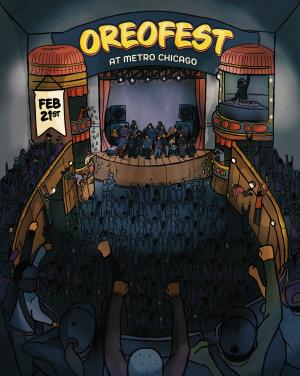

Several bands call themselves High Priest , but we’re here to talk about the homegrown Chicago four-piece, who debuted in 2016 with the five-song EP Consecration . Last spring, they put out a new four-track EP, Sanctum (Magnetic Eye), which draws from the heavy trends of the past three decades— though it feels timeless in its no-nonsense approach to heavy-riffing stoner rock, which they top with bursts of harmony vocals laden with a generous dose of grunge’s yearning heart. The songs are all solidly midtempo headbangers, except the clos-

FEBRUARY 6, 2020 - CHICAGO READER 43
Find more music listings at chicagoreader.com/soundboard
High Priest COURTESY THE ARTIST
SMARTBARCHICAGO.COM 3730 N CLARK ST | 21+ 3730 N. CLARK ST METROCHICAGO.COM METROCHICAGO@ TICKETS AVAILABLE VIA METRO + SMARTBAR WEBSITES + METRO BOX OFFICE. NO SERVICE FEES AT BOX OFFICE! STILL WOOZY FRI MAY 29 SOUL ASYLUM LOCAL H FRI FEB 14 OREOFEST WITH DJ OREO SPECIAL GUESTS TBA FRI FEB 21 FEB 13 SMARTBAR 10PM JEREMIAH MEECE ABSTRACT SCIENCE DJS
FEBRUARY 6SMILIN’ BOBBY AND THE CLEMTONES
FEBRUARY 7MODEST JOHNSON
FEBRUARY 8THE LOCKOUTS
FEBRUARY 9HEISENBERG UNCERTAINTY PLAYERS 7PM
FEBRUARY 10RC BIG BAND


FEBRUARY
FEBRUARY
FEBRUARY
FEBRUARY
FEBRUARY
FEBRUARY
FEBRUARY
FEBRUARY
FEBRUARY
8PM
FEBRUARY 6SMILIN’ BOBBY AND THE CLEMTONES
FEBRUARY
FEBRUARY 7MODEST JOHNSON
FEBRUARY

FEBRUARY 8THE LOCKOUTS

FEBRUARY 9HEISENBERG UNCERTAINTY PLAYERS 7PM
MUSIC
er, “Offering,” which stands out as slower, danker, and growlier than the rest. At this show High Priest share the bill with local sci-fi stoner quartet Cloud Cruiser, who are celebrating the release of their first full-length, I: Capacity (available digitally via Bandcamp and on vinyl from Shuga Records). Whereas High Priest are no-frills, Cloud Cruiser get heady; I: Capacity explores a high-concept framework about aliens, cryptozoology, and the desire to get the fuck off this planet and see something else. Their sound is deeply rooted in heavy desert rock, but their nocturnal music is full of uncanny lights, slashing synthetic screeches, and overwhelming boogie. —MONICA KENDRICK
Ingrid Laubrock & Tom Rainey 8:30 PM, Constellation, 3111 N. Western, $15, $12 in advance. 18+
Saxophonist Ingrid Laubrock and drummer Tom Rainey have been married to each other since 2010 and playing together since 2007, working as a duo as well as within larger ensembles, where they’ve collaborated with avant-garde jazz musicians such as Tim Berne and Mary Halvorson. Though the duo initially focused on improvisational music, a 2016 tour inspired them to incorporate more composition into their work. This is evident on their third album, 2018’s Utter (Relative Pitch), which is largely improvised but adds three composed pieces: Laubrock wrote “Chant II,” and the two of them collaborated on the opening and closing tracks, “Flutter” and “Shutter.” “Flutter” opens boldly, with muffled gurgling and breathing through a saxophone over rustling drums that could be mistaken for radio static or vinyl crackle. The two voices gradually build, until Laubrock’s measured honks seem to instigate cascades of pounding drums. “Shutter” shows off a different side of their compositional voice—instead of stringing together cues and figures, it features ostinato saxophone melodies and drum grooves that
tug at each other. At this show, Laubrock and Rainey will be improvising freely, but even to the trained ear, their musical conversations can be hard to classify definitively as either composition or improvisation—they ride the line, thanks to the rapport they’ve built playing together in countless contexts for more than a decade. —IZZY YELLEN
As a member of Calle 13—the politically conscious Puerto Rican hip-hop band formed by her brothers René Pérez Joglar and Eduardo Cabra Martínez— Ileana Mercedes Cabra Joglar began performing onstage when she was a teenager. By her late 20s, she was stepping out on her own under the name iLe. On her debut solo album, 2016’s iLevitable, the singer-songwriter delves into classic Latin American roots genres such as bolero, mambo, boogaloo, and rumba. The album’s gorgeous, lush, orchestral arrangements, coupled with iLe’s pliant, lovely voice, smart songwriting, and fresh (and often dark and quirky) take on these well-known musical formats earned widespread critical acclaim as well as a Grammy for Best Latin Rock, Urban or Alternative Album. Last year, iLe released her second album, Almadura, which was nominated for a Grammy in the same category. Created in the a ermath of Hurricane Maria, the record is full of ballads that explore sociopolitical topics, including violence against women, Puerto Rican independence, and social injustice. Musically, the album revisits some of the genres explored on iLevitable while adding new forays into hard salsa and percussion-driven Afro-Caribbean styles, among them Afro-Dominican palo music, with its driving chants and beats, and Puerto Rican bomba , which is closely tied the island’s long history of protest and resistance. iLe’s concerts are high-energy experiences that meld musics from across the Americas while foreground-


44 CHICAGO READER - FEBRUARY 6, 2020 ll
ILE 8 PM, Old Town School of Folk Music, Maurer Concert Hall, 4544 N. Lincoln, sold out. b
Find more music listings at chicagoreader.com/soundboard iLe CESAR BERRIOS 1800 W. DIVISION (773)486-9862 EVERYTUESDAY (EXCEPT2ND) AT 8PM OPENMICHOSTEDBYJIMIJONAMERICA Comeenjoyoneof Chicago’sfinestbeergardens! JANUARY11..................FLABBYHOFFMANSHOW8PM JANUARY12..................AMERICANDRAFT JANUARY13..................DJSKIDLICIOUS JANUARY14.................. TONYDO ROSARIOGROUP JANUARY17.................. JAMIE WAGNER&FRIENDS JANUARY18..................MIKEFELTON JANUARY19..................SITUATION DAVID MAXLIELLIAMANNA JANUARY20..................FIRST WARDPROBLEMS JANUARY21.................. TONYDO ROSARIOGROUP JANUARY22..................RCBIG BAND7PM JANUARY24..................PETERCASONOVA QUARTET JANUARY25..................THEWICK JANUARY26..................THEHEPKATS SKIPPIN’ ROCK JANUARY27..................THESTRAY BOLTS JANUARY28..................WHOLESOMERADIODJNIGHT Est.1954 Celebratingover toChicago! 61yearsofservice FEBRUARY23.....MIKEFELTEN FEBRUARY24..... DARK ROOMMEN WHITEWOLFSONICPRINCESS MOJO49 FEBRUARY25.....WHOLESOMERADIODJNIGHT FEBRUARY26.....RCBIG BAND7PM FEBRUARY28.....PETERCASANOVA QUARTET8PM MARCH1............SMILIN’ BOBBYANDTHECLEMTONES MARCH2............ICE BOXANDBIGHOUSE MARCH3............CHIDITARODAND TARRINGTON10PM MARCH7............ JAMIE WAGNER&FRIENDS SEPTEMBER20..... DAVIDQUINN SEPTEMBER21.....WAGNER&MORSE SEPTEMBER22.....THE DYNAMOS SEPTEMBER23....WHOLESOMERADIODJNIGHT MURPHYTHOMPSON9:30PM MIKEFELTEN THERONANDRACHELSHOW SEPTEMBER24.....RCBIGBAND7PM BIRDGANGS9:30PM TITTYCITTY DUDESAME SEPTEMBER26.....PETERCASANOVAQUARTET SEPTEMBER27.....DORIAN TAJ SEPTEMBER28..... TOURS BULLYPULPIT SEPTEMBER29.....SOMEBODY’SSINS FEATURINGJOELANASA SEPTEMBER30.....OFFTHEVINE4:30PM NUCLEARJAZZQUARKTET7:30PM Est.1954 Celebratingover 65yearsofservice toChicago! EVERYTUESDAY (EXCEPT2ND) AT 8PM OPENMICHOSTEDBYJIMIJONAMERICA DECEMBER 12FLABBY HOFFMAN SHOW 8PM DECEMBER 13STRAY BOLTS JEFF AND MARIO DECEMBER 14JOE LANASA & SOMEBODY’S SINS SKIPPIN’ ROCKS FOSTER & HIGGINS DECEMBER 15TONY DO ROSARIO GROUP DECEMBER 16PROSPECT FOUR 9PM DECEMBER 18MORSE & WAGNER 6PM THOMAS A MATECKI BAND DECEMBER 19DANNY DRAHER DECEMBER 20OBLIQUE STRATEGIES BAD FORUM NO HERO DECEMBER 21 Z28 DECEMBER 22WHOLESOMERADIO DJ NIGHT DECEMBER 23RC BIG BAND 7PM RICK SHANDLING DUO 9:30PM DECEMBER 28RICKYD BLUES POWER JANUARY 1SMILIN’ BOBBY AND THE CLEMTONES 3PM JANUARY 2AMERICAN TROUBADOUR NIGHT OPEN MIC ON TUESDAY EVENINGS (EXCEPT 2ND) JANUARY 23 THE RUT LADY STARDUST JANUARY 24DJ BLOTTSKI JANUARY 25SCOTTY “BAD BOY” BRADBURY AND JON MCDONALD JANUARY 26WHOLESOMERADIO DJ NIGHT VIVEK PAUL JANUARY 27RC BIG BAND 7PM JANUARY 29LEAGUE OF ERICS PHIL O’REILLY CHRIS QUIGLEY JANUARY 30DJ SKID LICIOUS JANUARY 31ALISON GROSS FEBRUARY 1AMERICAN TROUBADOUR NIGHT MIKE FELTEN’S BIRTHDAY SHOW FEBRUARY 2WELCOME TO THE BIG GAME PARTY! FEBRUARY 3PROSPECT FOUR 9PM FEBRUARY 5MORSE & WAGNER WITH FRIENDS
7PM PROSPECT FOUR 9:30PM
11FLABBY HOFFMAN SHOW 8PM
12ELIZABETH’S CRAZY LITTLE THING FEATURING HOMEBOYBEAUTIFUL 9PM
13FLABBY HOFFMAN SHOW 8PM
15RICH EXPERIENCE BIRTHDAY BASH
16TONY DO ROSARIO GROUP
17PROSPECT FOUR 9PM
19MORSE & WAGNER WITH FRIENDS 8PM
21THE LAY-DOWN RAMBLERS FEBRUARY 22FIRST WARD PROBLEMS
23WHOLESOMERADIO DJ NIGHT
24RC BIG BAND 7PM
28ANDREW D HUBER AND THE GECKO CLUB MIKE FELTEN CELEBRATING 66TH ANNIVERSARY FEBRUARY 4, 1954
MUSIC





ing the sounds of Puerto Rico past and present. Performing with a nine-piece band that includes piano, bass, two guitars, percussion, drums, and two trombones, iLe will undoubtedly fulfill our expectations, allowing us to experience how she’s shaping the future of Latin pop without losing sight of the past.
—CATALINA MARIA JOHNSON
SUNDAY9
Kembe X Opener to be announced. 7 PM, Schubas, 3159 N. Southport, $18, $15 in advance. b

In an October interview with Lyrical Lemonade, Chicago rapper Kembe X (born Dikembe Caston) described a rocky patch in 2017 that brought him to a breaking point in his career. He’d been talking to R&B singer Kehlani, opening up about his lack of confidence and disinterest in his creative direction, and she asked him if he wanted to continue with music at all. The conversation gave Kembe a sense of clarity. “When I left, I was thinking to myself that I wasn’t sure if I really wanted to keep making music,” he said. “I felt like, at that point, a part of me died. Not to be funny, but I think that part was the piece that gave a fuck about what people think.” Since then, Kembe has tapped into a new sense of urgency, and it animates his second album, October’s I Was Depressed Until I Made This (FocusGroup/Empire). Kembe proved he had advanced lyrical skills with his debut mixtape, 2011’s Self Rule, and he’s since developed a pop sensibility to match. Now based in Los Angeles, he’s figured out how to modulate his voice to make his material sparkle even when he’s working with grimy productions; on I Was Depressed he brings a suave exuberance to weary, blown-out beats (“Move Around”), cloudy, deconstructed trap (“859”), and a sample-based collage (“Killscope”). On the triumphant, gospelflecked “Voices,” Kembe reflects on the darker
moments of his personal journey, seeming to feed more fuel to his punched-up vocals with each reference to his parents’ contentious divorce, his family’s history of alcoholism, or his own past struggles with drug dependency—the hardships he’s overcome lend an air of invincibility to the song’s heavenly melody. —LEOR GALIL
MONDAY10






Roddy Ricch 7:30 PM, Patio Theater, 6008 W. Irving Park, sold out. b
Compton rapper Roddy Ricch dropped his debut mixtape, Feed tha Streets , in November 2017, and he’s since earned a spot in hip-hop’s top tier. In the year leading up to his first full-length album, December’s Please Excuse Me for Being Antisocial (Atlantic), Ricch lent his gritty, soulful vocals to DJ Mustard’s Caribbean-flecked smash “Ballin’” and Nipsey Hussle’s bittersweet, reflective “Racks in the Middle,” which just won a Grammy for Best Rap Performance. At 21, Ricch knows how to bend hard-edged raps into supple, sweetly sung melodic verses; he can flit from pain to aggression to hard-won triumph in just a few syllables, and he enlivens Please Excuse Me with his pivots between gruff growls and clean coos. The album peaked at number one on the Billboard 200, though I’m sure plenty of people just keep listening to its irrepressibly buoyant second track, “The Box,” which recently topped the Billboard Hot 100. In his lyrics, Ricch reflects on his experiences with the criminal justice system (he was most recently arrested in August, on a domestic violence charge). The song owes some of its success to a looped sample of Ricch squirting out brief screeches that evoke the rappers who’ve emerged since Lil Wayne’s alien vocals rewired hip-hop, but that’s hardly the only reason his defiant screed against the police state has resonated with the pop


FEBRUARY 6, 2020 - CHICAGO READER 45
Roddy Ricch COURTESY THE ARTIST
Less scrolling. More strumming. Anyone can play! Find your new class at oldtownschool.org Give your digital life a break. Connect over music, dance & more.
MUSIC
Find more music listings at chicagoreader.com/soundboard
TUESDAY11

Post Malone, Swae Lee Post Malone headlines; Swae Lee and Tyla Yaweh open. 8 PM, Allstate Arena, 6920 N. Mannheim, Rosemont, $214.50-$325. b
The future of hip-hop is here, and it’s poppy as hell. Two of the biggest names in the game these days are rappers who frequently lean into the sweet and sensitive side of the genre: Post Malone and Swae Lee. Post Malone is the tattooed face of hypermelodic sad-boy pop rap, who’s gotten nearly as much attention for his goofy, trashy sense of style as he did for his buttery 2017 breakthrough smash, “Rockstar.” Swae Lee is half of hip-hop hit machine Rae Sremmurd, and he’s provided trippy hooks and choruses for the duo’s nonstop string of bangers (including the modern classic “No Type,” the omnipresent “Black Beatles,” and the psychedelic “Powerglide”). Swae and Post teamed up for the first time on 2018’s “Sunflower,” a single from the soundtrack for Spider-Man: Into the Spider-Verse. The song is two and a half minutes of pure bliss, eschewing almost every hip-hop trope in favor of sunny electronic pop, and its bouncy choruses, velvety vocal interplay, and warm ’n’ fuzzy lyrics made it one of the best tracks of the year. Since then, Swae has continued to step out with a bunch of singles under his own name, and Post’s most recent full-length, last year’s Hollywood’s Bleeding , featured seven smash hits (among them “Sunflower”) and collaborations with the likes of SZA and Ozzy Osbourne. And while there’s no word on whether they’ll hit the studio together again, the Post-Swae machine should still be firing on all
Metronomy Charlotte Adigery opens. 8:30 PM, Thalia Hall, 1807 S. Allport, $25-$35. 17+

On “Upset My Girlfriend,” from Metronomy’s 2019 album, Metronomy Forever (Because), Joseph Mount moans, “I used to play drums in a rock ’n’ roll band / But they kicked me out / ’Cause I used to feel it / And so I would speed up.” The song’s sparse, strummy indie pop and ambient keyboard flourishes aren’t rock ’n’ roll at all, but Mount’s lyrics about being so excited about the music (and about a type of stardom he’s not yet attained) make for a good summation of the British singer- songwriter and multi-instrumentalist’s 20-year career. In that time he’s developed a melodic fluency reminiscent of Paul McCartney, as well as production talents impressive enough that Robyn recruited him to cocreate her latest album, Honey . It seems like he should be a household name—he should be a household name—but his music is a little too coy and a little too hard to pin down. His records are basically just him, assembling pop lyrics that tend to turn too inward to launch him to superstardom. On Metronomy Forever he’s as accessibly inaccessible as ever. “Salted Caramel Ice Cream” is a catchy retro New Order exercise that’s cloying enough to come across as deliberate self-parody. “Insecure,” in contrast, is a oneminute keyboard drone that forsakes pop altogether—and it slides into “Miracle Roo op,” a bass-heavy, repetitive pulse that, contrary to its title, roots and burps some six feet under the dance floor. The last song on the album, “Ur Mixtape,” is an emo slow jam about creating music for a girlfriend who didn’t care and in the process accidentally wowing her brother. It’s a perfect metaphor for an artist who seems to go out of his way to make the right music for the wrong fans, or vice versa.
—NOAH BERLATSKY v
46 CHICAGO READER - FEBRUARY 6, 2020 ll
audience—TikTok users in particular have flocked to “The Box,” which could help make it the year’s first megahit. —LEOR GALIL
cylinders throughout this gigantic package tour. —LUCA CIMARUSTI
Metronomy
COURTESY
OF ORIENTEER
1035 N WESTERN AVE CHICAGO IL WWW.EMPTYBOTTLE.COM773.276.3600 HARD COUNTRY HONKY TONK WITH THE HOYLE BROTHERS5PM-FREE $5 W/ RSVP NEW ON SALE: 3/27: MIDNIGHT, 4/2: ANNA CALVI, 4/11: PUCE MARY, 5/20: MOLCHAT DOMA DANCE PARTY FEAT. MID-CITY ACES MINIMAL BEAT PRESENTS ‘KECHI KAHIEM RIVERA • MANNY 10X • KID YUNG • DJ CA$H ERA ( )RECORD RELEASE THU 2/6 FRI 2/7 TUE 2/11 WED 2/12 THU 2/13 SUN 2/9 MON 2/10 FRI 2/14 FREE 2/16: CHICAGO HONKY TONK PRESENTS THE LAWRENCE PETERS OUTFIT (12PM - FREE) , 2/16: 2ND ANNUAL DAVEFEST, 2/17: NORTH BY NORTH (RECORD RELEASE - FREE), 2/18: SCORCHED TUNDRA PRESENTS TRUCKFIGHTERS, 2/19: RADIOACTIVITY, 2/20: BABY ROSE, 2/22 @ OUTSIDE THE EMPTY BOTTLE: MUSIC FROZEN DANCING 2020 FEAT. HOT SNAKES • PISSED JEANS & MORE! (1PM-FREE), 2/22: SOUL SUMMIT DANCE PARTY, 2/23: HOT SNAKES, 2/24: STAR PARKS (FREE), 2/25: MENTALEASE, 2/26: WONDER & SKEPTICISM (5PM - FREE), 2/26: LITTLE LIZARD, 2/27: HARAMBE’S HEROES, 2/28 - 2/29: THE SEA & CAKE, 3/1: HEART BONES, 3/2: LINER NOTES : A MUSICAL STORYTELLING SERIES (6:30PM - FREE), 3/2: DOOMSQUAD (FREE), 3/4: THE MAUSKOVIC DANCE BAND EBP EMPTY BOTTLE PRESENTS SAT 2/8 MORITAT SLOW WITCH GLITTER PICKS FUNDRAISER FOR PLANNED PARENTHOOD NATALIE GRACE ALFORD BAD BAD MEOW • BUBBLES BROWN + MORE! POOL HOLOGRAPH FRAN • RUINS • DJ DIXIE CUP AIR CREDITS LASERS AND FAST AND SH!T • RICH ROBBINS ( )EP RELEASE HANDMADE MARKET12PM- FREE 10TH ANNUAL CHILI-SYNTH COOKOFF WHITNEY JOHNSON • COOPER CRAIN ALEX INGLIZIAN • TOM OWENS LOW DOWN BRASS BAND MATING • WILD JESUS & THE DEVIL’S LETTUCE COCOA GREENE • DARK MATTER COFFEE DJs PLACK BLAGUE NGHTCRWLR • NUDE ATTITUDE DONNY BENÉT PARTY NAILS
EARLY WARNINGS
5/20, 9:15 PM, Empty Bottle
Ryan Montbleau 2/20, 8 PM, City Winery b
NRBQ 5/2, 8 PM, SPACE, Evanston b
Pitchfork Music Festival 15th Anniversary Party featuring Cool Kids, DJ Spinn, Kaina 2/19, 8 PM, Chicago Athletic Association Hotel, ticket required, 18+ F
GOSSIP WOLF WOULD never accuse Spektral Quartet of, uh, stringing fans along—the ambitious classical combo are well-known for debuting new projects at a dizzying rate! On Sunday, February 9, in conjunction with the Chicago Film Society, they bring a mind-blowing program to the Music Box that’s anchored by the suburban fantasia Behind the Wallpaper. The 35-minute piece, by Arizona-based composer Alex Temple, combines a string quartet, live electronics, and the ethereal voice of Los Angeles singer-songwriter Julia Holter ; its aesthetic is a beguiling and uncanny mix of Schubert’s Winterreise and A Nightmare on Elm Street. Also on the bill are the Lyra Hill short film Uzi’s Party and the premiere of a piece by synth whiz Gene Knifi c (of local band Iverson) based on Su an Stevens’s “Arnika.”
Ever since Air Credits debuted with the album Broadcasted in 2016, the duo of Hood Internet producer Steve Reidell and rapper ShowYouSuck have been cranking out pressurized sci-fi boom-bap that straddles the line between Cannibal Ox-style audio corrosion and winningly depressive anti-party jams. On Friday, February 7, they drop Gold/605, the fourth of six EPs in their Wasteland Radio New Archives series. That Saturday they celebrate at the Empty Bottle with Lasers and Fast and Shit and Rich Robbins.
It’s hard to believe that the ChiliSynthesizer Cookoff has lasted ten years— this bizarre annual competition requires contestants to cook a pot of chili and then play an original synth-based set that serves as a “sonic interpretation” of their recipe. At the Empty Bottle on Sunday, February 9, the 2019 champion, Whitney Johnson (aka Matchess), defends her title against Cooper Crain (Bitchin Bajas), Alex Inglizian (Experimental Sound Studio), and Tom Owens (Potions). Cook-off cofounders Beau Wanzer and Brett Naucke say this will be the competition’s swan song, so this wolf’s chili will be seasoned with tears.
—J.R. NELSON AND LEOR GALIL
Got a tip? Tweet @Gossip_Wolf or e-mail gossipwolf@chicagoreader.com.

NEW
Action Bronson, Meyhem Lauren 5/3, 8:30 PM, Concord Music Hall, on sale Fri 2/7, 10 AM, 17+ Automelodi, Fee Lion, Club Music 3/8, 9 PM, Sleeping Village
Bauhaus 7/25, 8 PM, Aragon Ballroom, 17+ Lane Beckstrom, Sima Cunningham 2/15, 9 PM, Hungry Brain Blitzkid, Rosedales 5/7, 8 PM, Subterranean Bülow 4/5, 7 PM, Schubas, on sale Fri 2/7, 10 AM b
Cactus featuring Carmine Appice 3/14, 7 PM, Reggies’ Music Joint
Anna Calvi 4/2, 9:15 PM, Empty Bottle
Cenotaph, Malas, Luciferum, Deathcult 9/19, 7 PM, Reggies’ Rock Club, 17+ Cold Waves IX featuring Front 242, Stabbing Westward, My Life With the Thrill Kill Kult, Young Gods, She Past Away, KVB, Broken Note, Actors, Ash Code, Fee Lion, Paul Barker, Chris Connelly, Cyanotic, All Your Sisters, Bellwether Syndicate, and more 9/18-9/20, 7 PM, Metro, 18+ Control Top, Weeping Icon 3/15, 9 PM, Sleeping Village Cybertronic Spree 5/15, 9 PM, Lincoln Hall, on sale Fri 2/7, 10 AM, 18+
Daphne 2020 featuring Trqpiteca, Noncompliant, La Spacer, Cqqchifruit 3/7, 10 PM, Smart Bar
Daphne 2020: Manifest featuring Misfortune, Patrixia, Abigail 3/5, 10 PM, Smart Bar F
Daphne 2020: What It Is fea-
turing Ellen Allien, Shaun J. Wright 3/6, 10 PM, Smart Bar Dirty Projectors 3/27, 8:30 PM, Thalia Hall, 17+ Distant Brothers, Deep Cricket Night, Forty Foot Flames 3/5, 8 PM, FitzGerald’s, Berwyn Dorian Electra 2/21, 7 PM, Subterranean b James Elkington 4/16, 9:30 PM, Hideout, on sale Fri 2/7, 10 AM
Everyone You Know 5/5, 8 PM, Schubas, on sale Fri 2/7, 10 AM, 18+
Expo ’76 & Robert Cornelius 2/14, 9 PM, FitzGerald’s, Berwyn Feminist Happy Hour Galentines BFF Pop-Up Party featuring Jordanna, DJ Sara Tea, and more 2/15, 8:30 PM, Empty Bottle 5 Seconds of Summer, Band Camino 8/26, 7 PM, Huntington Bank Pavilion, on sale Fri 2/7, 9 AM b Format 3/27-3/28, 8 PM, Lincoln Hall, on sale Fri 2/7, noon, 18+ Four C Notes 2/19, 8 PM, City Winery b Fu Manchu, Speedealer 5/13, 9 PM, Bottom Lounge, 17+ Margaret Glaspy, Kate Davis 4/25, 8 PM, Thalia Hall b Goo Goo Dolls, Lifehouse, Forest Blakk 8/7, 7 PM, Huntington Bank Pavilion, on sale Fri 2/7, 10 AM b Guns N’ Roses 7/26, Wrigley Field, on sale Fri 2/7, noon b Habibi 2/13, 9:30 PM, Hideout Martin Hayes Quartet, Martin Hayes & Dennis Cahill duo 3/27, 8 PM, Maurer Hall, Old Town School of Folk Music b Heaven 17 5/8, 7:30 PM, Park West, on sale Fri 2/7, 10 AM, 18+
House of Love 5/11, 8 PM, Subterranean, 17+
Ike Reilly Assassination 3/20, 8:30 PM, FitzGerald’s, Berwyn, on sale Fri 2/7, 11 AM Incubus, 311, Badflower 8/28, 6:45 PM, Hollywood Casino Amphitheatre, Tinley Park, on sale Fri 2/7 b Inkantation 2/20, 9 PM, Honky Tonk BBQ
International Women’s Day Festival featuring Sandra Antongiorgi, Naomi Ashley, Cathie Van Wert, and more 3/7, 8:30 PM, FitzGerald’s, Berwyn International Women’s Day Festival featuring Cathy Richardson’s Goddesses of Rock, Katie Todd 3/7, 8:30 PM, FitzGerald’s, Berwyn Goran Ivanovic Trio 2/13, 9 PM, Hungry Brain Jamestown Revival 4/15-4/16, 8 PM, City Winery b Durand Jones & the Indications 3/12, 8:30 PM, Thalia Hall, 17+ Jumex 2/14, 8 PM, Subterranean b Kaytranada 5/16, 9 PM, Aragon Ballroom, 18+ Kuma’s Fest featuring Anthrax, Converge, Russian Circles, Atlas Moth, Indian 6/27, 1 PM, Brands Park, on sale Fri 2/7, noon b
Lucki 3/15, 7 PM, Bottom Lounge b
Lunar Ticks, Bubbles Brown 5/16, 8:30 PM, Schubas, 18+ Stephen Lynch 4/4, 7:30 PM, Park West, on sale Fri 2/7, 10 AM, 18+
Casey McDonough Valentines Show 2/14, 7:30 PM, Honky Tonk BBQ Midnight 3/27, 10 PM, Empty Bottle
Rhett Miller 5/15, 8 PM, SPACE, Evanston b Molchat Doma, Chrysta Bell
Pitchfork Music Festival 15th Anniversary Party featuring Ohmme, Dehd, Spencer Tweedy 2/20, 8 PM, Chicago Athletic Association Hotel, ticket required, 18+ F
Pop Smoke 3/21, 8 PM, Bottom Lounge, 17+
Puce Mary, Bloodyminded, Champagne Mirrors, Impulsive Decay 4/11, 9:15 PM, Empty Bottle
Random Rab 4/5, 9 PM, Sleeping Village
Riot Fest featuring My Chemical Romance and more 9/11-9/13, 11 AM, Douglas Park, presale; full line-up will be announced in the spring b Rüfüs Du Sol, Lastings 5/30, 8 PM, Huntington Bank Pavilion, on sale Fri 2/7, 10 AM b Satsang 5/5, 8 PM, SPACE, Evanston b
Claudia Schmidt & Sally Rogers, Kat Eggleston 5/3, 1 PM, SPACE, Evanston b Seres De Luz 2/27, 9 PM, Honky Tonk BBQ
Todd Snider 4/10, 7:30 PM, Park West, 18+
Marco Antonio Solís 8/15, 8 PM, Allstate Arena, Rosemont, on sale Fri 2/7, 10 AM b Soup & Bread featuring DJ Mary Nisi 3/4, 5:30 PM, Hideout Spacebones, Woes, Cold Beaches, Engine Summer 3/5, 8 PM, Chop Shop, 18+ Speak Low, Kayak Jones, Super American 3/5, 7 PM, Beat Kitchen, 17+
Chris Stapleton, Highwomen, Jason Isbell & the 400 Unit, Dirty Knobs with Mike Campbell 8/29, Wrigley Field, on sale Fri 2/7, 10 AM b
Still Woozy 5/29, 8 PM, Metro, on sale Fri 2/7, 10 AM b Treble, Emurse, Ava Lake, Brian Carpio 2/13, 8:30 PM, Chop Shop, 18+
Truth, Meso, Sicaria Sound 3/14, 8:30 PM, Bottom Lounge, 17+
Unlikely Candidates, Zero 9:36, Federal Empire 4/1, 8 PM, Beat Kitchen, 17+ Watkins Family Hour 4/24-4/25, 8 PM, Maurer Hall, Old Town School of Folk Music b Weedeater, Goddamn Gallows, Atomix Bitchwax, Worshipper 3/13, 7 PM, Reggies’ Rock Club, 17+
Adam Weiner, Chastity Brown 2/16, 8 PM, City Winery b Wintercamp Music Festival
featuring DJ noDJ, Lwky, Chris Mathien Band, Johnny Derp and guests, Matt Grundstad, Sean Herzig, and more 2/29, 7 PM, Logan Square Auditorium
Y La Bamba 4/23, 8 PM, Subterranean, 17+
Young Nudy 4/10, 8 PM, Bottom Lounge b Yung Pinch 5/15, 8 PM, Concord Music Hall, on sale Fri 2/7, 10 AM b
UPCOMING
All-American Rejects 2/20, 8 PM, Concord Music Hall, 17+ Bag Raiders 2/21, 9 PM, Lincoln Hall, 18+
Marcia Ball, Sonny Landreth 2/16, 7 PM, FitzGerald’s, Berwyn Lindsay Beaver 2/18, 8 PM, FitzGerald’s, Berwyn Bernie & the Wolf, Fauvely, Modern Nun 2/18, 9:30 PM, Sleeping Village
Bodysnatcher, Great American Ghost, Born A New 2/19, 7 PM, Cobra Lounge, 17+ Chicago Farmer & the Fieldnotes, Joseph Huber 2/15, 8:30 PM, FitzGerald’s, Berwyn Church of Misery 2/19, 7 PM, Reggies’ Rock Club, 17+ The Exile Follies featuring John Doe, Kristin Hersh, and Grant-Lee Phillips 2/14, 8 PM, Maurer Hall, Old Town School of Folk Music b Frankie & the Witch Fingers, Modern Vices, Flesh Panthers 2/15, 9 PM, Sleeping Village
Jungle Giants 2/13, 9 PM, Lincoln Hall, 18+ Kaze 2/14, 9 PM, Elastic b Kojey Radical, Kamauu 2/19, 8 PM, Schubas, 18+ Lil Tjay 2/21, 7 PM, Concord Music Hall b Machine Head 2/15, 7 PM, Metro b
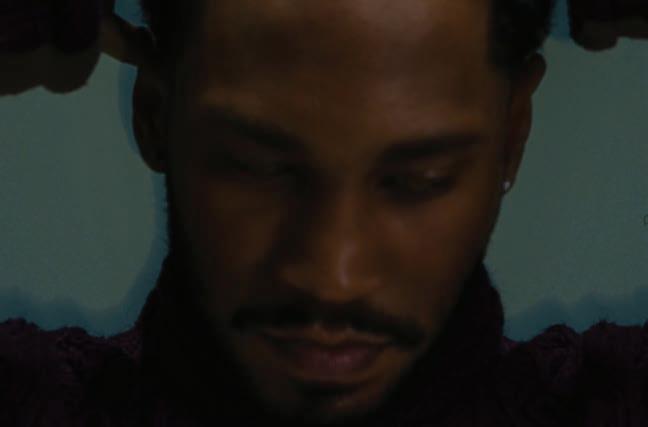
Maliibu Miitch, Kidd Kenn 2/14, 10 PM, Schubas, 18+ Elizabeth Moen 2/15, 9 PM, Lincoln Hall, 18+ Dan Navarro 2/14, 7 PM, Schubas
Radioactivity, Vacation 2/19, 8:30 PM, Empty Bottle Tall Heights, Saint Sister 2/14, 8 PM, Beat Kitchen, 17+ UFO 2/14, 8 PM, Genesee Theatre, Waukegan b Wolf Parade, Jo Passed 2/16, 8:30 PM, Thalia Hall, 17+
JANUARY 30, 2020 - CHICAGO READER 47
Never miss a show again. Sign up for the newsletter at chicagoreader. com/early
CHICAGO SHOWS YOU SHOULD KNOW ABOUT IN THE WEEKS TO COME b ALL AGES F A
furry ear to the ground of the local music scene
GOSSIP WOLF
WOLF BY KEITH HERZIK
Spektral Quartet JOCELYN CHUANG
A series of political engagement events as curated by
Win Wisconsin: Canvass & Carpool to Southeast Wisconsin with Indivisible Evanston
February 8
8:30am - 2:30pm Democratic Party of Evanston
747 Custer Ave. Evanston, IL
Exhibition Opening: Notorious RBG
February 9
2pm - 3:30pm Illinois Holocaust Museum & Education Center 9603 Woods Dr. Skokie, IL
Public Workshop
February 9
4pm - 6pm Chicago Therapy Collective 5247 N. Clark St.
2020 Endorsement Session
February 9
4pm - 7pm Unitarian Church of Evanston
1330 Ridge Avenue Evanston, IL
Business Attire Drive Benefiting Care for Real
February 10 9am - 5pm Andersonville Chamber of Commerce 5217 N. Clark St.

Activism Evening –Postcards, Texting, Phonebanking
February 10 6:30pm - 8:30pm Unity Lutheran Church of Berwyn 6720 31st St. Berwyn, IL Ella’s Activism Diner
February 11 5:30pm - 8pm Democratic Party of Oak Park 6941-A W. North Ave. Oak Park, IL New Hampshire Primary Watch Party February 11 6pm - 8pm GMan Tavern 3740 N. Clark
After Parkland Screening
February 12
6:30pm - 8pm
Regal Webster Place 11 1471 W. Webster Ave.
Lesbians and Feminism in Chicago in the 1970s and 80s
February 12
6:30pm - 8:30pm Gerber Hart Library and Archives 6500 N. Clark St.
Galentine’s Day Market! A Benefit for Chicago Period Project
February 13
6pm - 11pm Emporium Logan Square 2363 N. Milwaukee Ave.
LWVIL 100th Anniversary Celebration
February 14
10am - 11:15am
The Congress Plaza Hotel & Convention Center 520 S. Michigan Ave.
Sunrise 2.0 Training
February 15
9am - 5pm Weinberg/Newton Gallery 688 N. Milwaukee Ave.
For more information of listed events please visit persistlist.org



MOBILIZE sponsored byMOBILIZE

OPINION
SAVAGE LOVE
My daughter just came out as a cam girl Plus, an open-relationship-loving wife reveals she’s a dictator.
By DAN SAVAGE
Q: I started reading your column when I was a 20-year-old kid. Now I’m an old married lady with 20 years of (more or less) blissful married monogamy behind me. My oldest daughter, who is 23, just came out to me as a sex worker. She’s been making a slim living as a cam girl. She recently graduated with a marketable degree, but she hasn’t been searching for a job in her field because, as she puts it, “It’s hard to want to apply for a minimum wage job when I make the same working from home.”
I’m finding this very hard to process on a number of levels. First, and I hope you will believe most importantly, it’s very hard for me to see her giving up what used to be her dreams. But that’s not the part I think you can help me with. I used to be a sex worker. For three years in the early ’90s, I was a dancer at the Lusty Lady on First Avenue in Seattle. That was before
the Internet really existed, but I think the job is actually fairly analogous to cam work: nudity and masturbation for the pleasure of others, with no actual physical contact. I found sex work to be corrosive to my personal goals. As a heterosexual woman, I hoped to fall in love with a man and have a family, and for me, the longer I did that type of work, the more impossible those goals seemed. I saw men at their worst 40 hours a week. As time went by, I felt myself withdrawing more and more from the possibility of any kind of affectionate relationship with a man. Quitting for me was an act of self-preservation.

I did my best to react non-judgmentally when my daughter confided in me, but truthfully I’m really unhappy about it. I worry about the effect sex work will have on her future and while there are people working to reduce the stigma attached to sex work, that
stigma still exists. I worry that she will become mired in poverty, barely getting by, and I worry that she will not be able to find loving relationships with men who value her worth. What do I do? Do I stand back and love her? Do I try to give her the benefit of my experience, even if that seems shame-y? Is this even any of my business, given that she’s older now than I was when I gave birth to her? —THE CAM GIRL’S MOM
a: Your daughter made this your business when she shared it with you, TCGM. So my advice would be to lean in (not stand back), love your daughter, and share your own experiences with her. But the goal shouldn’t be to get your daughter to stop doing sex work—that’s not the “benefit” you’re a er— but rather to open the lines of communication and keep them open.
Zooming out for a second . . .
48 CHICAGO READER - FEBRUARY 6, 2020 ll
The kind of sex work you did decades ago at the Lusty Lady was different in important ways. (I visited the Lusty Lady a few times in the early ’90s, TCGM, which makes you one of the few letter writers that I might’ve seen naked who didn’t enclose photos.)




The women who danced at the Lusty Lady were behind Plexiglas walls, men pumped quarters into slots to lift partitions that allowed them to see the women, and there were private booths for solo shows. But while you saw men “at their worst” (men can and have done worse), your daughter doesn’t have to look at the men she’s performing for. Her clients—her fans, if she has a following— aren’t on camera themselves. They may send her messages, and she may interact with them via DM, but she doesn’t have to watch them jack off. And unlike a performer in a peep show, your daughter can block guys who give her the creeps or who are in any way pushy or disrespectful. But while she doesn’t have to see men leering at her or watch come drip down Plexiglass walls, she does have to worry that someone out there might be recording her sessions and posting them online. And unlike the Lusty Lady (R.I.P.), the Internet is forever.
But the stigma around sex work is decreasing—Elizabeth Warren recently said she’s “open to decriminalizing” sex work (a tiny step in the right direction)—and with people of all ages furiously sexting each other, we’re quickly reaching the stage where everyone has nudes out there somewhere. Pretty soon it won’t be in anyone’s interest to punish or harass people whose pics or videos go big or viral because you could be next.
Something else to bear in mind: you worry that doing
this kind of sex work—roughly the same kind you did— may make it impossible for your daughter to fall in love, create a family, pursue her professional goals, or even make a decent living. But you fell in love, created a family, and presumably make a good living yourself. And while it’s possible that doing this kind of work delayed achieving those goals, you weren’t derailed or destroyed by it and your daughter doesn’t have to be either. (And is less likely to be with her mom in her corner.) Also, your daughter may not want the same things you did. Not everyone wants one committed, long-term partner, and not everyone wants kids.
And while you’re understandably distressed that she isn’t doing anything with her degree at the moment, it’s possible your daughter’s ideas about what she wants to do with her life have changed since she picked a major. Working as a cam girl may give her the time and space she needs to figure out a new dream for herself. And as crazy as it sounds to some . . . there are women and men out there whose dream job is sex work.

Your daughter opened a door when she shared this with you, and there must be a reason she shared it with you. Hell, it’s possible she may want to be talked out of doing it. So don’t hesitate to share your experiences and perspective with her. It’s not shaming to tell her you did this kind of work and found it dehumanizing and corrosive. That’s the truth of your experience. But after you share your perspective, listen to hers with an open mind. And as all parents of adult children know or soon learn, TCGM, your kid gets to make their own choices and quite possibly their own mistakes. And sometimes what looks like a mistake to a concerned parent turns out to be the right choice for the
adult child.
Q: I am a heterosexual male. My wife has been dating other men for the past year. When she started dating her first boyfriend, she told me she wasn’t ready for me to date other people but would process through it and then we could open up the relationship for me, too.
A er about six months, her first relationship ended and we both started looking for other partners. She found another guy pretty much right away and it took a few months before I started dating. I had a couple dates with this woman and then kissed her at the end of our second date. When I told my wife what happened, she got jealous and angry. A day later, my wife stole my phone and sent a message to the woman I’d been dating ending our relationship, and then she blocked the woman from my social media accounts and deleted her number from my phone. She broke up with her boyfriend and is insisting that our relationship is closed now. I love my wife, but I feel violated in so many different ways and I’m unsure what to do.
—MARRIED A DICTATOR
A: Your wife should’ve married a cuckold—a man who wants to remain faithful to a woman who fucks around on him and dates other men—and you should’ve married a woman who isn’t a controlling, manipulative, unhinged hypocrite. Luckily for you both, MAD, a divorce that would allow each of you to find a new partner—a cuck for her, a sane person for you—is still an option. v
Send letters to mail@ savagelove.net. Download the Savage Lovecast Tuesday at savagelovecast. com.
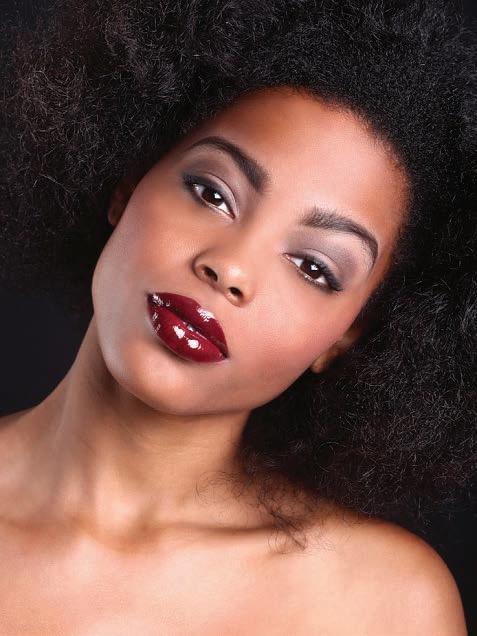


@fakedansavage


FEBRUARY 6, 2020 - CHICAGO READER 49
VICTORIA HEATH / UNSPLASH OPINION MoreLocalNumbers:800-777-8000 www.guyspyvoice.com Ahora enEspañol/18+ 60MINUTESFREETRIAL THEHOTTESTGAYCHATLINE 1-312-924-2082 Meetsexyfriends whoreallygetyourvibe... MoreLocalNumbers:1-800-811-1633 MoreLocalNumbers:1-800-811-1633 Try FREE:312-924-2066 vibeline.com18+
CLASSIFIEDS
JOBS GENERAL
Financial Solutions Architect by Akzo Nobel Chemicals LLC in Chicago, IL. Reqs: Bach deg or for equiv in CS Sci, InfoSys Engg, or IT rel fld + 6 yrs exp of SAP solut’ns dsgn, maintenance, & implementat’n of fin’l solut’ns w/imanufacturing ind OR Mast deg + 3 yrs as described above. All stated exp must incl: architecture of technology platforms, IT change mgmt, bus process modeling, issue resolut’n methods, & applic architecture dsgn, incl framewrks, tools, technologies, & methodologies. 10% int’l travel. Send resume & cover letter to recruiting.us@nouryon.com and ref Job# NC- Financial Solutions Architect
TransUnion, LLC seeks Senior Consultants for Chicago, IL location to design & develop sw applications. Master’s in Info. Tech./Comp. Sci./related field + 3yrs exp. or Bachelor’s in Info. Tech./Comp. Sci./related field + 5yrs exp. req’d. Req’d skills: business intelligence sw development exp.w/Ab Initio, Agile, SQL, Oracle, Unix/Linux shell scripting, Autosys. Send resume to: R. Harvey, REF: RV, 555 W Adams, Chicago, IL 60661

Montessori Foundations of Chicago;Montessori Lead Teacher;Chicago,IL;Develop lesson/unit plans&manages the learning experiences for 3-6yrs old students to ensure the needs of the group&individual students are met. Must hold valid MACTE certification for toddlers.2yrs exp as Montessori Teacher in 3-6yrs old classroom in Montessori school. Mail resume to Montessori Foundations of Chicago,attn:Beata Skorusa,3575 S Archer Ave, Chicago,IL60609.


The Nielsen Company (US), LLC sks Technical Lead (Chicago, IL): Resp for anlyzng, dvlpng, tstng & spprtng hghly cmplx app sftwr. Min reqs: Bach degr in comp sci, engg, or rltd fld w/ IT fcs + 7 yrs exp in sftwr dvlpmnt w/data strctrs & algrthms (would also accept a Mstr degr + 3 yrs of pst-bacc, prgrssvly rspnsbl exp). Mst incl: 5 yrs exp in: PL/SQL & Oracle; dsgng for prfrmnc, sclblty & avlblty; & dsgng & bldng mltithrded dstrbtd sys. 3 yrs exp in: dvlpmnt of UI comps using techs sch as, JavaScript, JSON, AJAX, &/or XML techs; srch engns such as Oracle Text index, &/or Microsoft SQL srvr full txt &/or ElasticSearch; ldng tms in agile sftwr dvlpmnt prctcs & DevOps; ldng a team of dvlprs thrgh the difft phases of prjct from dsgn to deliv; & applyng Master Data Mgmt prncpls & CPG indstry cncpts; 2 yrs exp in: full stack dvlpmnt in JEE dvlpng scalbl entrprse pltfrms; & dvlpmnt of cstm ExtJS cmpnnts & ftres. Apply onln at www.nielsen.com w/ Job ID #55042





Littelfuse, Inc. seeks a Lean Manufacturing Manager in Chicago, IL to crte ln strtgy fr MX &NA ops. Reqs BS in Engnrng or rltd + 7 yrs exp. 7 yrs exp in Ln mnfctrng advncd tchnqs & cntns imprvmnt; 5 yrs exp: Prblm slvng; AME reqs; OS & Mnfctrng Excllnce; & Actn orntd & cstmr fcs. Trvl to untcptd clnt stes as ndd. Snd cvr lttr & CV: mlopez1@littelfuse.com, ref lzmjkpp7jm
Software Development Engineer – Big Data 4C Insights, Inc., Chicago, IL Develop large-scale, concurrent applications, modern languages/frameworks, modern Web technologies, relational databases, and RESTful web services to coordinate













with engineering, product, and design personnel in the development of front-end and back-end software solutions for simple and effective user interfaces which will be used for the analysis of online and social media data for marketing purposes. Develop and modify computer application software with a focus on the creation and maintenance of large data sets. Must have a Masters Degree in Computer Science, Computer Engineering, Electrical Engineering, or a closely related field. Degree studies must have included coursework in Big Data. Multiple openings. The position offers the option of limited telecommuting up to 20% of the time. All telecommuting must be done within 50 miles of the main worksite. Qualified applicants should submit their resume to careers@4cinsights.com with reference code SDEBD0120.
TECHNOLOGY ServiceNow Inc is accepting resumes for the position of Senior Machine Learning Engineer in Chicago, IL (Job Ref. #5143). Work on various ServiceNow client data sets and focus on solving applied problems in Natural Language Understanding, Text Mining, Anomaly Detection, Forecasting, etc., by leveraging statistical/ mathematical concepts and core machine learning/AI tools and techniques. Mail resume to ServiceNow Inc, Attn: Global Mobility, 4810 Eastgate Mall, San Diego, CA 92121. Resume must include job title, job ref. #5143, full name, email & mailing address. No phone calls. Must be legally authorized to work in U.S. without sponsorship. EOE.

Relativity (Chicago, IL) seeks Sr. Software Engineer to architect/design/implement & test cloud native software consistently applying best practice software engineering. Must pass HackerRank Code Challenge pre-interview screening test. To apply, please email your resume to Recruiting@relativity.com. Please reference “JOB ID: 199021 in the subject line to be considered.
LEGAL NOTICES
Notice is hereby given, pursuant to “An Act in relation to the use of an Assumed Business Name in the conduct or transaction of Business in the State,” as amended, that a certification was registered by the undersigned with the County Clerk of Cook County. Registration Number: Y19001590 on June 18, 2019 Under the Assumed Business Name of MACK FINANCIAL SPECIALISTAL COMPANY with the business located at 7116 S. CORNELL AVE APT 2B, CHICAGO, IL 60649 The true and real full name(s) and residence address of the owner(s)/partner(s) is: WILLIAM E. MCNEAL 7116 S. CORNELL AVE APT 2B CHICAGO, IL 60649, USA
Notice is hereby given, pursuant to “An Act in relation to the use of an Assumed Business Name in the conduct or transaction of Business in the State,” as amended, that a certification was registered by the undersigned with the County Clerk of Cook County. Registration Number: Y20003012 on January 17, 2020 Under the Assumed Business Name of MJM OCCASIONS with the business located at 3022 SARAH ST, FRANKLIN PARK, IL 60131 The true and real full name(s) and residence address of the owner(s)/partner(s) is: JASON MARTINEZ, 3022 SARAH ST FRANKLIN PARK, IL 60131,
USA; MONICA J MARTINEZ, 3022 SARAH ST FRANKLIN PARK, IL 60131, USA

This letter is to notify that on February 25, 2020 at 9:30 a.m. an auction will be held at 83rd & Halsted Self Storage, Inc., located at 8316 S. Birkhoff Ave, Chicago, IL 60620, to sell the following articles held within said storage units to enforce a lien existing under the laws of the state of Illinois.


475 Natalie Bennett 107 James Harris
341 Keith Mays, Jr.
117 Barbara Dukes
156 Jazzerae Carr
335 Stephen Grandberry
This letter is to notify that on February 25, 2020 at 9:30 a.m. an auction will be held at Hyde Park Self Storage, Inc., located at 5155 S. Cottage Grove Ave, Chicago, IL 60615, to sell the following articles held within said storage units to enforce a lien existing under the laws of the state of Illinois.
413A James Hendricks 46 Alvin Daniels
423 Dorothy Heard 384 Culver Medical Supply 10194 Raymond White
535 Candice Martin
10120 Thomas Murton
371 Darryl G. Fairley 10153 James A Lott
6 Raymond White

544 Chanel Long
100 Mescha Lammy
267 Erika Richardson
463 James Hendricks V333 Darryl Simmons
374 Brianne Kelly
61 Dante Edwards 71 Lazinnial Brandon 10147 Brianne Kelly 10158 Waymon Curry 202C Stephen Weinstein
This letter is to notify that on February 25, 2020 at 9:30 a.m. an auction will be held at South Shore Self Storage, Inc., located at 7843 S. Exchange Ave, Chicago, IL 60649, to sell the following articles held within said storage units to enforce a lien existing under the laws of the state of Illinois.
265 Wesley Jones 237 Da Great Yekuti Azor El 231 Rashaunda Sanders 444 Ned Leeper
601 Alicia Washington 322 Cozette Armstrong 505 Cozette Armstrong 255 Alethea Rayford 253 Erica Cooley 208 Briana Tyner 442 Korianda Johnson 328 Jess Gill
This letter is to notify that on February 25, 2020 at 9:30 a.m. an auction will be held at Aaron Bros. Self-Storage, Inc., located at 4034 S. Michigan Ave, Chicago, IL 60653, to sell the following articles held within said storage units to enforce a lien existing under the laws of the state of Illinois.
122 Jeremy Clark
600A Narlin Brothers 306 Elnora Clay 558 Kamla Ronan
541 Royal Traders 548 Anna Long 117 Brian McCoy 201 Horace Howard 544 Brian McCoy 329 Tanya Lyda
Notice is hereby given, pursuant to “An Act in relation to the use of an Assumed Business Name in the conduct or transaction of Business in the State,” as amended, that a certification was registered by the undersigned with the County Clerk of Cook County. Registration Number: Y20003018 on January 21, 2020 Under the Assumed Business Name of ABOVE GRADE APPLIANCE SERVICE with the business located at 6545 W DICKENS AVE. APT. 2W, CHICAGO, IL 60707 The true and real full name(s)
50 CHICAGO READER - FEBRUARY 6, 2020 ll
JOBS ADMINISTRATIVE SALES & MARKETING FOOD & DRINK SPAS & SALONS BIKE JOBS GENERAL REAL ESTATE RENTALS FOR SALE NON-RESIDENTIAL ROOMATES MARKETPLACE GOODS SERVICES HEALTH & WELLNESS INSTRUCTION MUSIC & ARTS NOTICES MESSAGES LEGAL NOTICES ADULT SERVICES
WANT TO ADD A LISTING TO OUR CLASSIFIEDS? E-mail tallen@chicagoreader.com with details or call (312) 392-2970 MOBILIZE A series of political engagement events by the Chicago Reader New Hampshire Primary Watch Party Tuesday, Feb. 11, 6-8 p.m., Free GMan Tavern, 3740 N. Clark Super Tuesday Watch Party Tuesday, March 3, 6-8 p.m., Free Promontory in Hyde Park, 5311 S Lake Park Ave W. Come join the Chicago Reader for ELECTION NIGHT WATCH PARTIES With hosts Ben Joravsky and Maya Dukmasova* Live Stream on the Reader’s facebook page *Dukmasova will just co-host the March 3 event. Look for special co-host Feb. 11.
and residence address of the owner(s)/partner(s) is: RAFAL MAJOREK 6545 W DICKENS AVE. APT. 2W, CHICAGO, IL 60707, USA
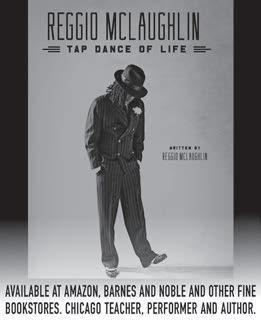

Notice is hereby given, pursuant to “An Act in relation to the use of an Assumed Business Name in the conduct or transaction of Business in the State,” as amended, that a certification was registered by the undersigned with the County Clerk of Cook County. Registration Number: Y20002981 on January 15, 2020 Under the Assumed Business Name of P AND M HOME SERVICES with the business located at 328 OAKMONT DR, BARTLETT, IL 60103 The true and real full
name(s) and residence address of the owner(s)/partner(s) is: PAUL SOCKI 328 OAKMONT DR, BARTLETT, IL 60103, USA



STATE OF ILLINOIS, PUBLICATION NOTICE OF COURT DATE FOR REQUEST FOR NAME CHANGE. Location Cook County - County Division - Case Type: Name Change from Jason Bradley Medalis to Emma Jaye Medalis Court Date February 19, 2020, 1:30 PM in Courtroom #203 Case # 20195009339
Notice is hereby given, pursuant to “An Act in relation to the use of an Assumed Business Name in the conduct or transaction of Business in the State,” as amended, that
a certification was registered by the undersigned with the County Clerk of Cook County. Registration Number: Y20003003 on January 16, 2020 Under the Assumed Business Name of SUDDEN UNIVERSE with the business located at 11001 DEBLIN LN APT 101, OAK LAWN, IL 60453 The true and real full name(s) and residence address of the owner(s)/partner(s) is: MARK RICHARD BERNAL 11001 DEBLIN LN APT 101, OAK LAWN, IL 60453, USA

Notice is hereby given, pursuant to “An Act in relation to the use of an Assumed Business Name in the conduct or transaction of Business in the State,” as amended, that



a certification was registered by the undersigned with the County Clerk of Cook County. Registration Number: Y20003074 on January 27, 2020


Under the Assumed Business Name of FISH AMONG BICYCLES with the business located at 1301 W FLETCHER ST #602, CHICAGO, IL 60657
The true and real full name(s) and residence address of the owner(s)/partner(s) is: SARA MICHELE BIEKER, 1301 W FLETCHER ST #602, CHICAGO, IL 60657, USA


STATE OF ILLINOIS, PUBLICATION NOTICE OF COURT DATE FOR REQUEST FOR NAME CHANGE. Location Cook County - County DivisionCase Type: Name Change from



Ki Won Lee to Kiwon Julian Lee. Court Date March 25, 2020, 9:30 AM in Courtroom #1706 Case # 2020CONC000047
Notice is hereby given, pursuant to “An Act in relation to the use of an Assumed Business Name in the conduct or transaction of Business in the State,” as amended, that a certification was registered by the undersigned with the County Clerk of Cook County. Registration Number: Y20003049 on January 22, 2020 Under the Assumed Business Name of TWISTED KITTY KOCKTAILS with the business located at 4700 S. LAKE PARK 308, CHICAGO, IL 60615 The true and real full name(s) and residence address
of the owner(s)/partner(s) is: KATHERINE THOMAS, 4700 S. LAKE PARK 308, CHICAGO, IL 60615


Notice is hereby given, pursuant to “An Act in relation to the use of an Assumed Business Name in the conduct or transaction of Business in the State,” as amended, that a certification was registered by the undersigned with the County Clerk of Cook County. Registration Number: Y20003048 on January 22, 2020 Under the Assumed Business Name of GARRETT’S IRISH DANCE GOODS with the business located at 3640 N. KEDZIE AVE, CHICAGO, IL 60618 The true and real full name(s) and residence address
of the owner(s)/partner(s) is: MARY LANGE 3640 N. KEDZIE AVE, CHICAGO IL 60618, USA



RENTALS
Heated
Two

MARKETPLACE
Credit/Debit
FEBRUARY 6, 2020 - CHICAGO READER 51
Indoor parking spot with storage space, Clark and Wrightwood, $195 month call Joan 224-627-4542
older adults (seniors) looking to rent affordable one bedroom apartment 773-677-7106
ADULT SERVICES Danielle’s Lip Service, Erotic Phone Chat. 24/7. Must be 21+.
Cards Accepted. All Fetishes and Fantasies Are Welcomed. Personal, Private and Discrete. 773-935-4995 Nude male model for personal or group shows. Striptease/full nude/roleplay. Public or private – 847.868.0447 FINANCING AVAILABLE Licensed, Bonded & Insured—IL Roofing Lic. #104.013526 For 40 years, 30,000+ satisfied customers have trusted Second City. • ROOFING • BRICKWORK • GARAGES SHINGLE ROOFS NEW GARAGESFLAT ROOFS BIG “O” MOVERS Fall & Winter Sale Call For FREE Estimate (773) 487-9900 Now Hiring!Drivers & Experienced Movers (773) 487-9900 ROOFING, GUTTERS & MORE the platform The Chicago Reader Guide to Business and Professional Services www.herreralandscapeschicago.com DISCOVER YOUR BLISS www.intimate-bliss.com *WARNING: Must be 18 years or older to visit website and/or place order. To advertise, call 312-392-2934 or email ads@chicagoreader.com SAVE BIG ON A NEW HVAC SYSTEM FINANCING AVAILABLE CREDIT CARS ACCEPTED Up to $2,500 savings for a limited time! Call today for a free estimate! 773-895-2797 www.MironHVAC.com -Energy Efficient -Innovative comfort features -Great maintenance contracts -24-Hr Emergency Service Travel Your Way 708-391-9009 Psychic ReadingsPalm and Tarot If you are worried, troubled, sick or unhappy through love, business, marriage, luck or whatever your problem may be, I have reunited the separated, healed the sick and help many people with money problems. Whereothershavefailed.Ihave succeeded. I will not ask what you came in for. I will tell you. (773)-540-5037 1222 E 47th St She guarantees to help you. No problem is too big for her COLLABO TIVE PREMARITAL FAMILY DIVORCE MEDIATION Brigi e Schmidt Bell, P.C. Lawyers@bsbpc.com | 312-360-1124 BrigitteBell.com Convenient Chicago & Evanston O ces travel moving home improvementpsychic real estate advertising books romance legal funeral services




















Opening February 7 | theallureofmatter.org Everyday Material, Radically Reinvented. On view at the Smart Museum of Art on Chicago's South Side and Wrightwood 659 on the North Side. Left to Right: Xu Bing, 1st Class, 2011 (detail), Photo © Museum Associates/LACMA. Sui Jianguo, Kill, 1996 (detail), Photo © Museum Associates/LACMA. THE ALLURE OF MATTER Material Art from China of 300,000 iron nails of half a million cigarettes


















 By MIKE SULA
By MIKE SULA

















 By BEN JORAVSKY
By BEN JORAVSKY

















 By KERRY CARDOZA
By KERRY CARDOZA






 By KAYLEN RALPH
By KAYLEN RALPH














































































 @SheriFlanders
@SheriFlanders






































































 GALIL
GALIL


 —STEVE KRAKOW
—STEVE KRAKOW

























































































